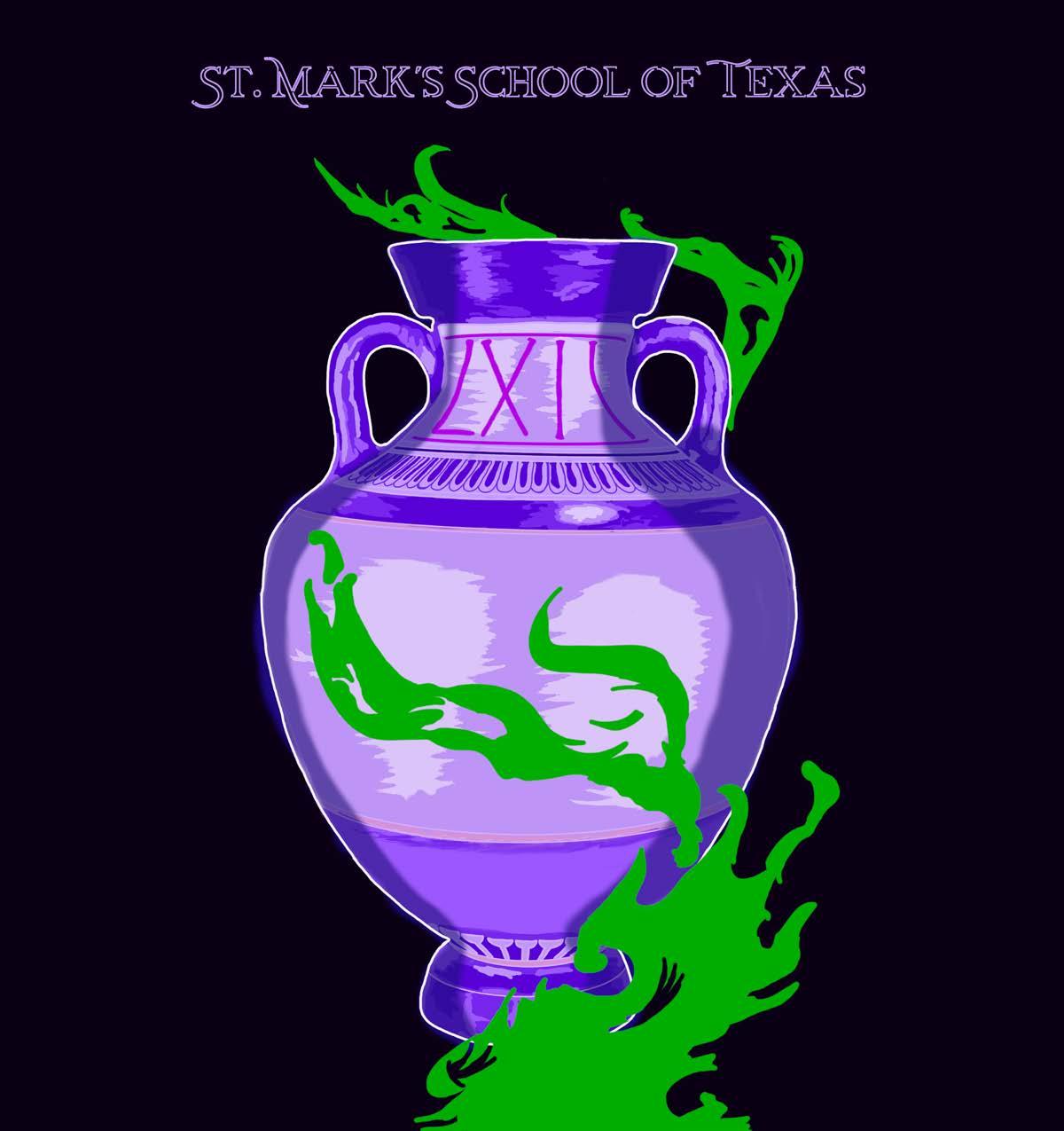


Where does it begin?
Where will it lead?
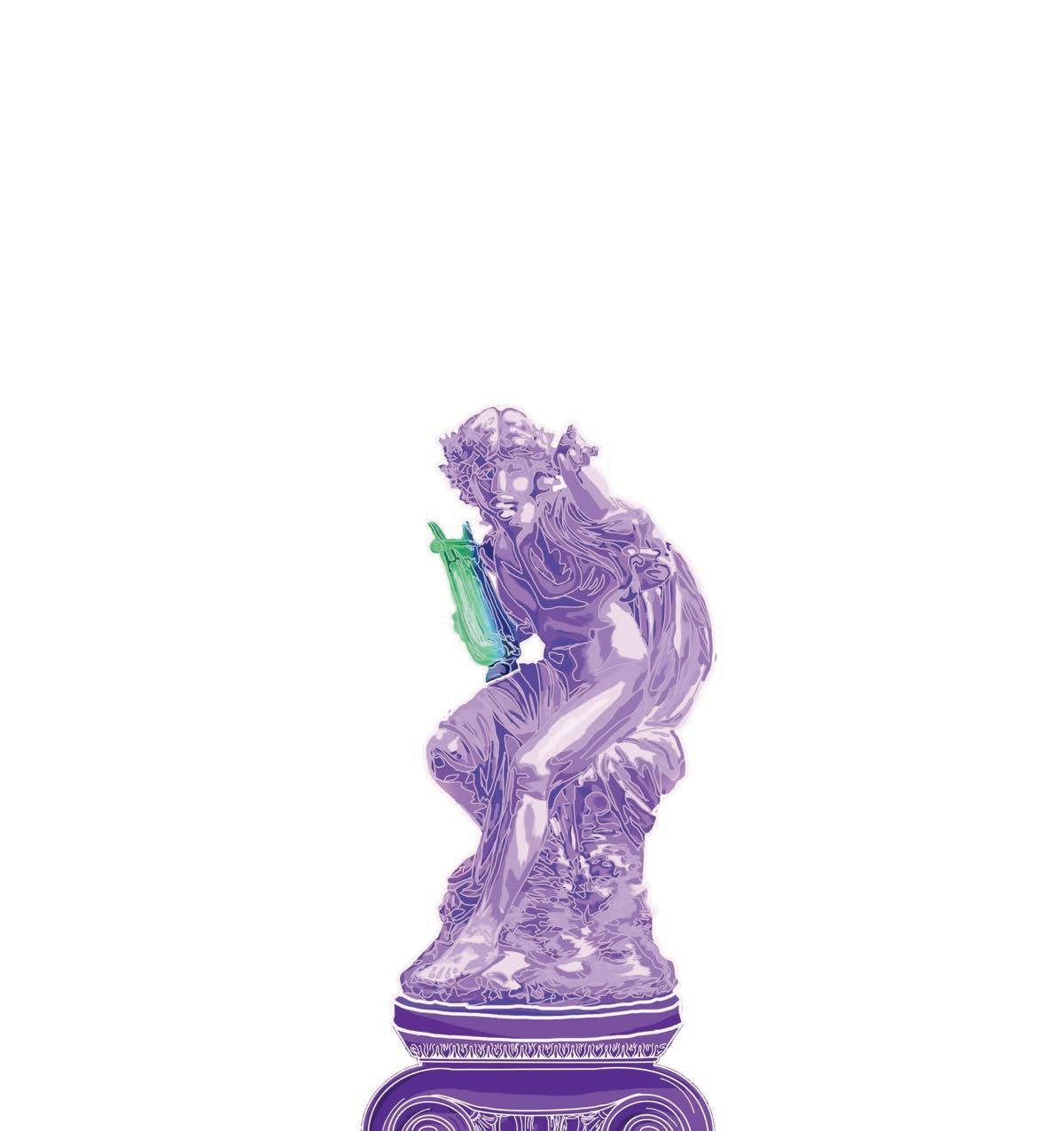





Where does it begin?
Where will it lead?


Lifeyields endless opportunities to know, to change, to create. Trailblazing advanced humanity to its golden age, building new tools from preexisting rocks and branches, turning ideas into reality. But the inevitable always looms over us: the things we “can’t do,” the things we’ll “never accomplish.” For Orpheus, this absolute is the death of his lover, Eurydice. e rule of the Greek gods is unmovable: whoever perishes must stay in the underworld, apart from their living family. But instead of accepting this tragic statute, Orpheus creates another option. To bring back Eurydice, he challenges the inevitable, the divine itself. Orpheus descends to the underworld in a mythic journey known as a “katabasis,” using the power and poignance of his music to persuade both his enemies and the gods. ough going to a place where mortals have never been before—pioneering the unknown—is riddled with challenges, his ironclad devotion gives him strength to persevere. Finally, when he reaches the depths of the underworld and confronts Hades, the god lording over it all, Orpheus manages to persuade him to change the rules. Orpheus plays an emotional piece on his lyre, bringing the god to tears. After he sees Orpheus’s conviction, Hades agrees to let Eurydice go back to the mortal realm with the condition that she walk behind Orpheus as they leave Hades. If Orpheus turns back to look at her, Hades stipulates, she will forever belong to the underworld. Orpheus eagerly agrees, sure that he can ful ll this condition. He and Eurydice stride ecstatically up toward the surface, but they encounter one last enemy blocking their happiness: doubt. Orpheus can’t bear the possibility that Eurydice might not be following him. is seed of doubt causes a lethal mistake—he turns around to make sure Eurydice
is there, and at that moment, she’s thrust back into the underworld. His insecurity and doubt cause him to fail in his quest, and his lover is now permanently lost to him. Orpheus goes on to live a life of sorrow, playing his lyre so powerfully that he can move landforms. In the end, a band of worshippers dismember him, ending his grief- lled life. e myth of Orpheus emphasizes the importance of decisiveness. Dedication leaves no room for doubt. Orpheus’s inhibitions ruin him; mortals’ indecisiveness and insecurities can severely restrict their lives. We should go all-out in our pursuits, stamping out our worries about whether there’s a precedent for what we’re trying to do, if it’ll turn out well, or how others will react. If we have a new idea, we have the freedom to realize it. Above all else, the myth highlights the possibility of changing the present. With enough dedication, anything can be improved, from ourselves to the universe around us. ey say that you can never complete a painting; one day, you just stop adding layers. Likewise, the world is an enormous canvas; there is no nal version.
In the sixty-second volume of this magazine, we have united endless possibilities—writings, illustrations, photographs, and more—to create one new outcome: the 2024 Marque. Each intersecting node of a skillset, each point on the plane of imagination, converges into a new one, and those into more, doubled and then doubled again, producing myriad forms from just two. Each pixel, each character, brought from the imagination into existence, re ects our contributors’ constant e ort to spearhead new combinations, new ideas—ideas that, like Orpheus’s, will shape the world.
Welcome to Orphic, the 2024 Marque.
Wood & Metal Exhibition
P
Photography Patrick Flanagan ’24
Fiction Nate Wilson ’24
Poetry
TCarson Bosita ’25
’25
Aditya Shivaswamy ’24 by Mason Bosco ’24 by Arnav Lahoti ’24 by Akul Mittal ’25 POEM by Grayson Redmond ’24 by Hudson Brown ’24 POEM by Ethan Bosita ’24 by Aidan Moran ’25 by Leo Hughes ’27 SHORT
by Charlie Hill ’24 by Akul Mittal ’24 by Drew Wallace ’26 ESSAY by Amogh Naganand ’24 by Drew Wallace ’26 by Reed Sussman ’24 by Nathan Meyer ’24 POEM by Grayson Redmond ’24 by Akul Mittal ’25
SHORT STORY by Justin Tong ’24 by Nathan Meyer ’24 by Nathan Meyer ’24
by Hudson Brown ’24
SHORT STORY by Miller Wendorf ’24 by Drew Wallace ’26 by Nathan Meyer ’24 by Hale Peterson ’25 by Preston Ghafar ’24 and Matthew Freeman ’25
POEM by Nathan Aldis ’26 by Akul Mittal ’25 by Akul Mittal ’25
POEM by Mitchell Galardi ’24 by Aidan Moran ’25
POEM by Tyler Tang ’24
POEM by Michael Chang ’27 by Hudson Brown ’24 by Reed Sussman ’24
SHORT STORY by Sanjay Bohil ’26 by Nathan Meyer ’24 by Hudson Brown ’24
POEM by Ethan Gao’24
POEM by Hayden Meyers ’24 by Nathan Meyer ’24 by Jacob Lobdell ’25
SHORT STORY by Ashrit Manduva ’24
SHORT STORY by Zack Goforth ’24 by Zachary Bashour ’24 by Arnav Lahoti ’24
POEM by Aryan Mishra ’26
by Akul Mittal ’25
POEM by Carson Bosita ’25
SHORT STORY by Nate Wilson ’24 by Patrick Flanagan ’24 by Tiger Yang ’25 by Tiger Yang ’25
POEM by Aditya Shivaswamy ’24 by Burns Houston ’27
POEM by Baker Lipscomb ’24 by Hudson Brown ’24 by Nathan Meyer ’24
POEM by Ethan Gao ’24
SHORT STORY by Lukas Palys ’25 by Zachary Bashour ’24
SHORT STORY by Arnov Lahoti ’24 by Asher Ridzinski ’27 by Arnav Lahoti ’24 by Peter Clark ’27 by Jacob Lobdell ’25 by Nathan Meyer ’24 by Jacob Lobdell ’25
POEM by Mason Briscoe ’24 by Drew Wallace ’26
POEM by Raja Mehendale ’24 by Tiger Yang ’25
Mr. Brown’s contributions to the school community through the Litfest, Creative Writing, and his leadership as the Victor F. White Master Teaching Chair in English are all massively impressive. But, perhaps his most valuable e ect is on the students he teaches and develops every day.
Mr. David Brown. Our impartial, impassioned English teacher. Striking down errors with the power and precision of Zeus’s lightning bolts, he ingrains upright grammar with a godly aura. But aside from his authority over the ten Rules for Avoiding Common Mistakes, Mr. Brown always o ers an open ear to our ideas. Regardless of whether he agrees with them, he listens to and o ers valuable help for our writings. In addition to being an amazing English teacher, Mr. Brown is also a baseball bu and Broadway connoisseur.
With his unique, creative assignments ranging from villainous sonnets to pensive re ections, Mr. Brown creates myriad opportunities for us to learn new techniques. In his creative writing class, he even assigns us to write and perform songs of our own! And on top of organizing these activities, he even plans St. Mark’s Lit Fest each year. Like Atlas holding up the Earth, Mr. Brown is an integral character to many of our stories.
But Mr. Brown is hardly an unreliable narrator. Holding the Bedford like a glinting Bible, a light in the dark of folly, he’s fully mastered the art of English. And for the avoidance of doubt, he’s compiled a list of ten of the most useful, yet neglected rules: his iconic RACM. With this almost magical sheet in our hands, we raise our writing to the next level. Explaining subjects ranging from e Great Gatsby to “Howl” with infectious enthusiasm, Mr. Brown is always a glowing light of exuberance in our lives.
When we play our lyres, pour ourselves into our writing, Mr. Brown is always there to listen and help us grow. Like Hades, who was originally against the resurrection of mortals, but eventually gives Orpheus a chance and accepts his music, Mr. Brown treats every idea as equal. He’s the pillar of justice, the balanced scales, in the otherwise subjective English language.
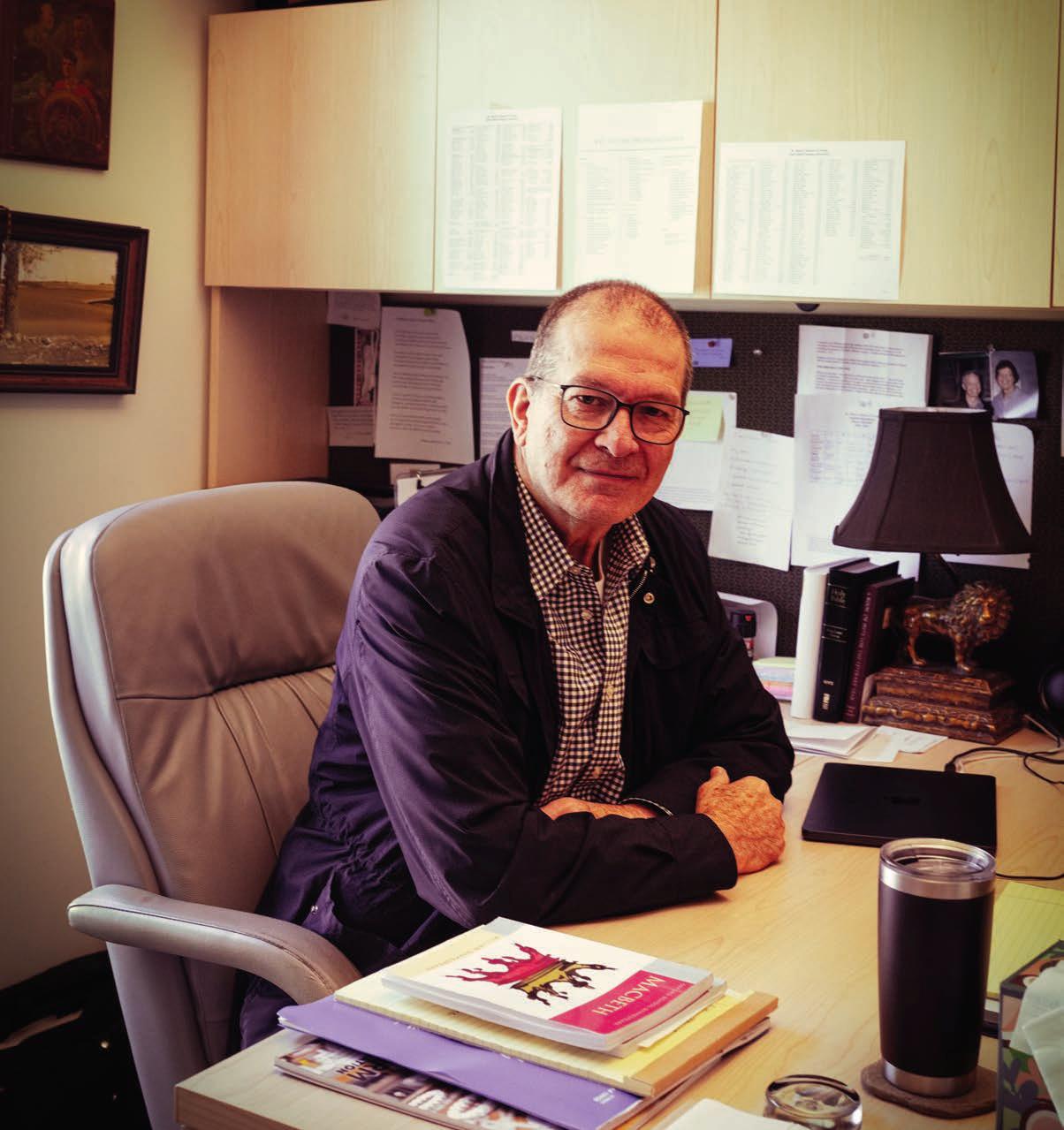
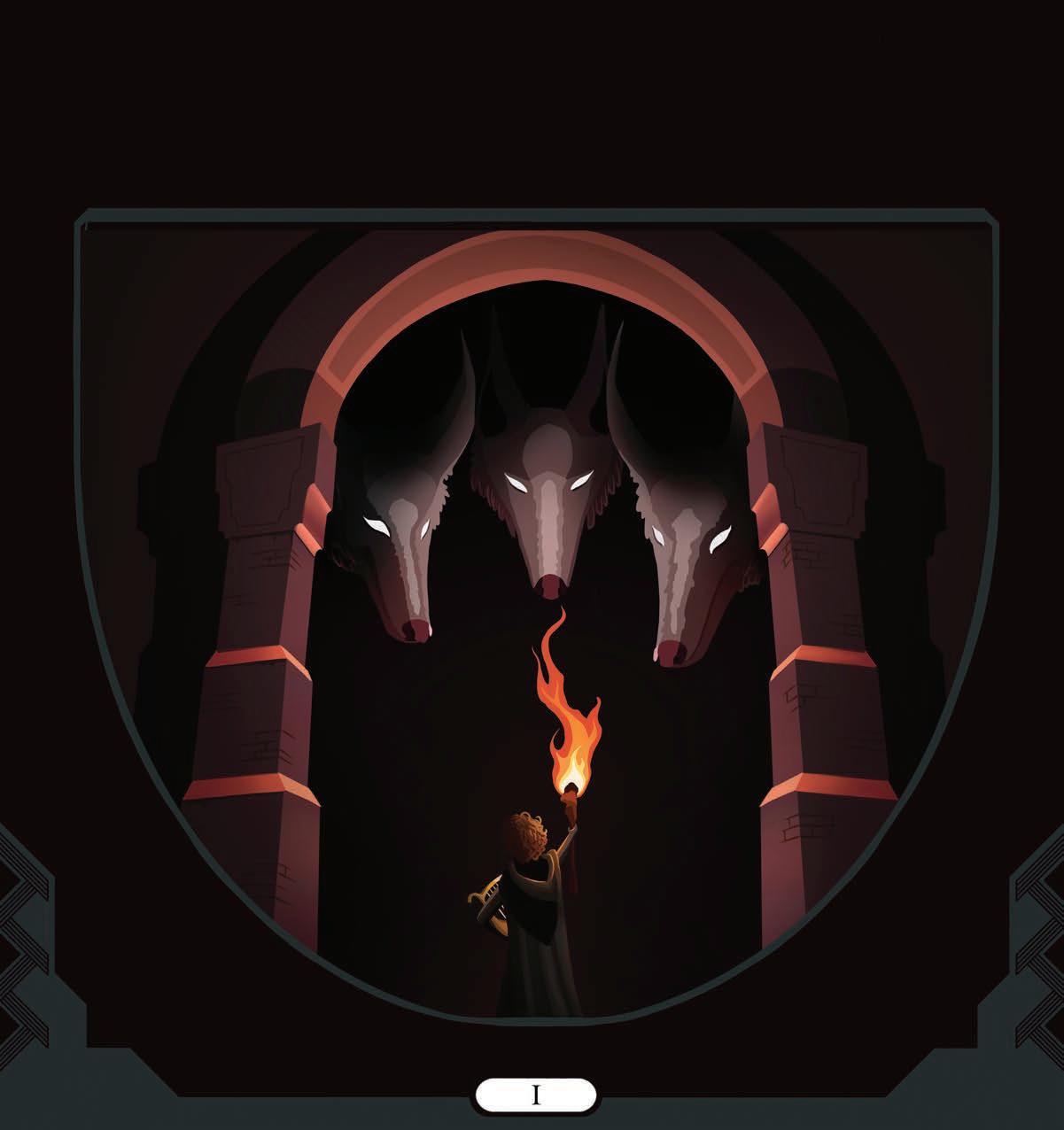

Orpheus was unexpectedly thrown into a quest of recovery when his wife, Eurydice, was bitten by a viper and killed by its poison. He began his journey in sadness, desperation, and longing.
Like Orpheus, there are times in our lives when we are unprepared for what lies ahead, despite being called into action anyway.
But it’s up to us to react in a mature, appropriate, and responsible way. When we’re given a righteous path, we need to take it with full conviction.
And despite our feelings of despair or fear of failure, we must push on, following our destiny.
As Orpheus approached the gates of the underworld, he was a man determined.
By Dawson Yao ’24
Towardsthe end of my junior year, I caught wind of a story from one of the sophomores working under me in the journalism program. e story was about the sudden death of one of our school’s most beloved sta members: former cafeteria worker Steve “Hollywood” Walker, a man I had never met. ere was no way for me to walk through his lunch line, excitedly high- ving him on the way to my meal. ere was no way for me to see rst-hand his unparalleled dedication to the school that was his home. ere was no way for me to be in his presence. Yet, through people who knew him, I was determined to try to do so anyway.
To say that what followed was an emotional rollercoaster would be an understatement. ough I acted merely as a reporter in a scene of remembrance, I nevertheless felt as though I myself was mourning. My rst interviewee for the story was Mr. Ron Turner, Sr., a hard-nosed former football coach whose rough exterior has withstood the test of time. Rarely smiling, his facial structure rested in what I perceived to be a “mean-mug” expression. As the interview date drew near, I grew increasingly nervous at the task ahead. I was afraid that he would question my right to write about his dear friend, a man I had never even known in the rst place. What if he pushes back? What if he refuses? What if he doesn’t speak to me?
As I posed my rst question, the same thoughts from a week of anticipation ashed through my mind
in a whirlwind. When the last word left my mouth, I sat nervously in my seat. A long pause, and I began to crumble. But as his words owed in response to my questions, I caught a glimpse of the true Ron Turner. With every word he spoke, fresh cracks lined his rough, armored exterior. Inside a battle-tested shell of grit was a man: a man who was simply broken by the death of Hollywood: a coworker, a mentor, and ultimately, a friend.
As the interview progressed, my con dence grew. My questions probed deeper and deeper as I dug at the aspects of their relationship that made it special. e interview turned into a conversation. His posture also relaxed, and before I knew it, he was opening up about stories that he might not have told to anyone anywhere else. All the jokes they’d told, all the challenges they’d faced, and all the memories they’d shared came pouring out in what was a massive exhale for Turner. I learned of the great man Hollywood was from his day-to-day interactions with teachers and students to his unwavering dedication to the job he did best. A gentle six-foot-two man who barely knew how to sign his name, Hollywood took it upon himself to work, walking half a mile to school each day with a bad leg, taking care of his family, and even learning as an adult to read and write – essentially from scratch. Even when the pandemic struck, his chopwood-carry-water attitude never wavered but grew ever stronger.
en, precisely an hour into the interview, I asked,
“What was it like, on the day he died?”
Once again, a pause set in. My nervousness came back, and I was left hoping and praying that he would answer my question. But before the panic crept in, his shell broke completely. His voice cracked, and he broke down. Finally, tears streamed down his cheeks. It seemed that years of pent-up emotion nally broke down the oodgates. rough watery eyes and carefully chosen words, I learned of the day it happened, exactly as the events played out. But as I listened, one thought ran through my mind: What am I supposed to do when someone so resilient cries in front of me?
I’ve faced situations like this before. In the past, it’s always been the same: “What do I say?” or “Why does it always have to be so awkward?” Every time, from watching
friends mourn loved ones to watching family members break down at gravestones, I’ve sat idly by, unsure of what words to say or how to show empathy. But this time was di erent. is time, as I watched the man cry, I realized that repeating questions or o ering my condolences wasn’t going to help. So, instead of inputting my thoughts, I let the man speak. I spoke no words, yet the conversation owed freely. All I did was sit quietly and try to listen to the many memories of Hollywood he held so dearly in his heart.
When conversations become tear- lled, witnesses often have di culty nding the right response. But, sometimes, the best response is silence. Sometimes, all mourners want is for someone to take in the moment with them and just listen to what they have to share.
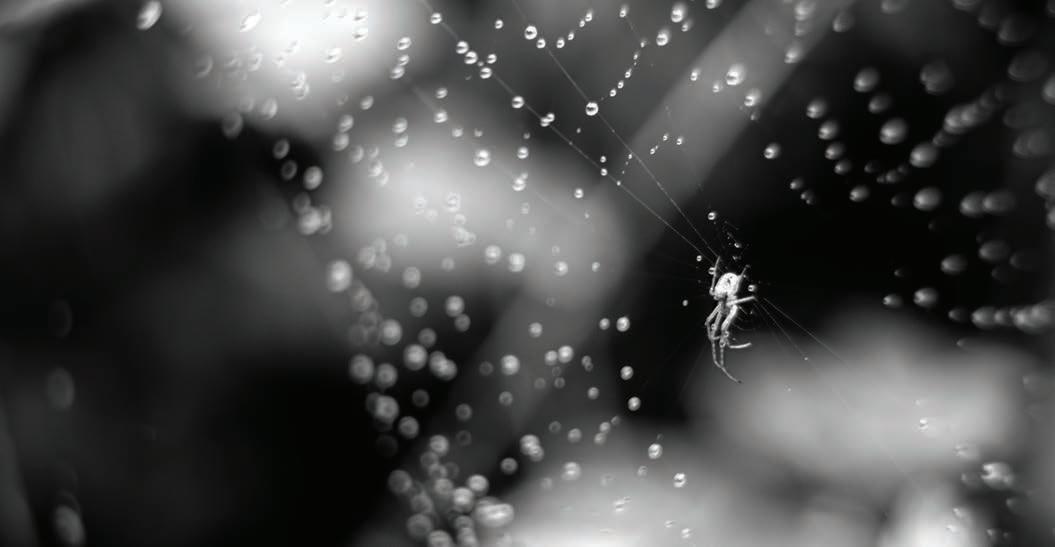
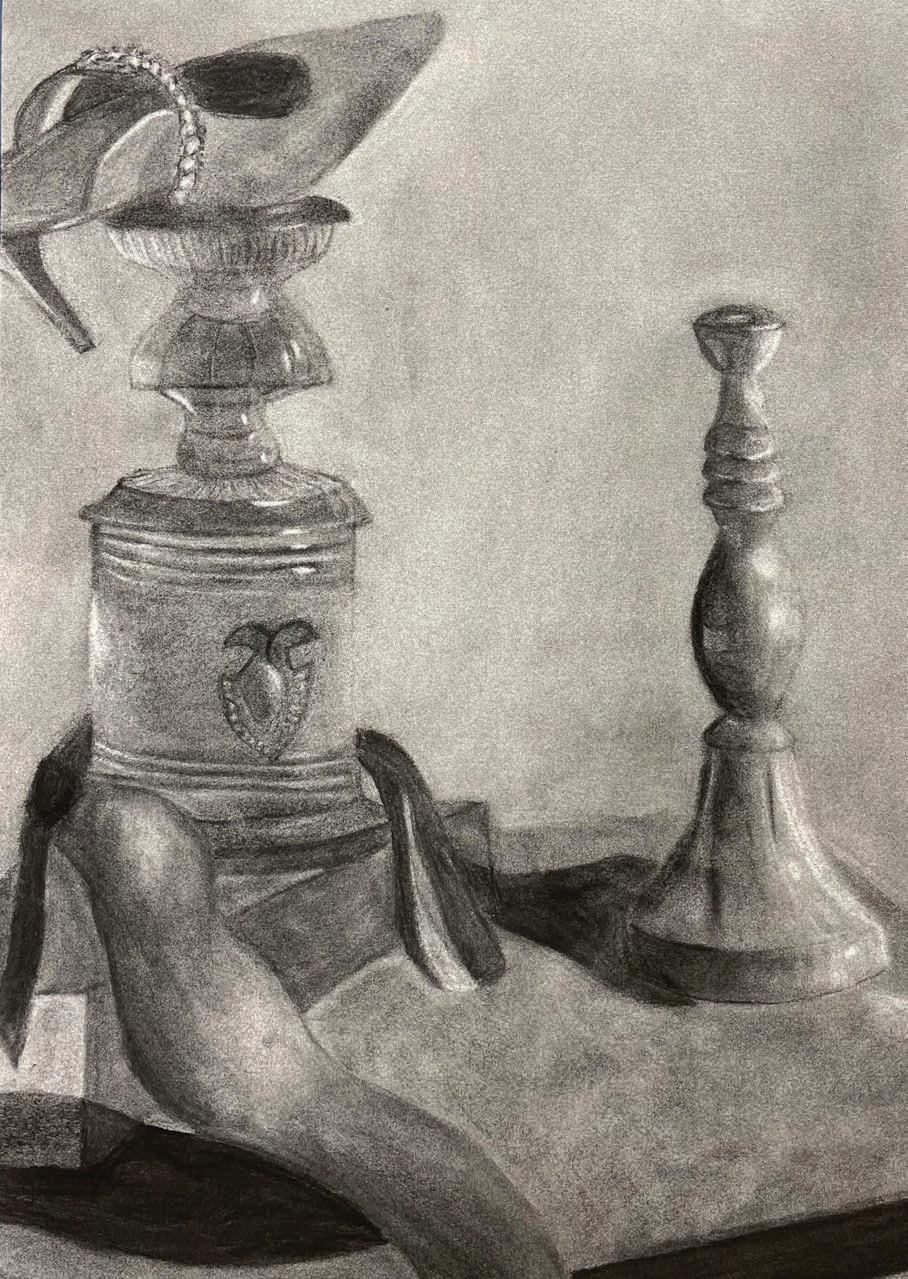
“The
By Aditya Shivaswamy ’24
Clive had not actually seen the remains of the village, but he found it unimportant to truly report the “facts” of the occasion to the Lieutenant-Governor. e administrator whom he had sent to actually check on the fatalities had fallen deathly ill upon the visit to Saugor, sending only a brief letter to Clive detailing his “utter disgust and unwillingness given the proposition of sifting through the piles of bony rib cages and legs fed upon by the vultures.” Clive knew that the young administrator had never been cut out to do his job, as that administrator, soon to be shipped back to the mother country, had the blood of the lazy Irish owing through his veins, courtesy of the man’s miscegenating mother. us, Clive gave a solid estimate of three hundred or so dead ragheads in his report to Sir Wellesley, as well as a recommendation of dismissal for Administrator O’Brien. Clive knew that Lieutenant-Governor Wellesley did not necessarily care either, as both were well-educated Oxford men, learned in the ideals of Malthus and his “Essay on the Principle of Population” -- it was only nature that the famine was to hit the overpopulated and primitive villages of the North-Western Provinces. As Sir Wellesley, a far more Christian man than Clive, liked to say: “If God wills it, who shall disturb it?” Clive signed the letter, tucked it into the ivory white envelope, and, grasping the wax stamp, sealed it. Looking up from his wooden desk, he rang for a servant. An old, plump brown man, a turban on his head, rushed in and bowed. He meekly took the envelope and
was preparing to make his way out when Clive stopped him. Clive, barking, ordered: “Ask the cook to prepare the barasingha I brought in yesterday.” With no indication of demurring, the servant scurried out of the door and into the servant’s quarters. Clive sighed and reclined in his chair.
Clive signed the le er, tucked it into the ivory white envelope, and, grasping the wax stamp, sealed the envelope.
As the wooden chair creaked under the strain of the administrator’s weight, the tightly woven jute padding that served as its backrest snapped, dumping Clive backward onto the dusty ground. He lifted himself o the ground, peeling o a little of his hand’s epidermis on a rusty nail lazily hammered into the wooden oorboards. Grasping the mangled chair in both his hands, his blood dripping down and soaking into the jute, grunting in pure rage, Clive threw it across the room. As the shoddily made furniture crashed into the corner, Clive bellowed, to no one in particular, for both a bandage and a person to clean up the mess. Moments later, a few servants jostled into the doorframe to gain favor from their sahib. After throwing the thronging group out of the room, Clive bandaged the nick on his hand, then sighed and rested on the couch near the desk, stomach grumbling. He quickly fell asleep.
When the bloodhounds had exhausted themselves, the shikari beckoned Clive and his hunting retinue, the most physically t of the servants, to follow him. e evening under the canopies of the forest was restless. e dry ground was cracked, delirious beetles and ants crawling out of the parched earth, seeking wildly for
some moisture. e normally inviting sounds of rhesus macaque hoots and bird calls were absent -- in their place, an odd, syncopated rhythm of col legno buzzing insects compounded with dry, rustling leaves from the hot wind and the incessant, primordial hum of the forest. Clive tilted his head and drank from the ask of water, sloshing it about in his mouth and then spitting it out onto the ground. e heavy, parched air seemed to suck every bit of moisture out of his mouth. e dirt greedily reclaimed it -- a worm, seemingly waking out of some dehydrationinduced stupor, broached the surface, hoping for an indication of precipitation or moisture, then retreated into its subterranean home. Clive cleared his throat and moved on, stepping on a massive beetle on the forest oor. e men behind him sidestepped the insect, dark, maroonblack blood oozing out of the crevasses of its cracked exoskeleton, its knobby legs isolated from the rest of its body, buried in the granular soil. As soon as the blood reached the dirt, matting it into a wet, muddy muck, smaller beetles, antennae moving about, broadcasting pheromones into the aether, hobbled towards the body, a chalice of bubbling wine, clambering over each other to get a taste. Using a fallen tree, Clive angrily scraped o the eviscerated guts that had splattered over the bottom of his black hunting boots, muttering some obscenities directed toward the dratted animals that infested both the forest and, increasingly, the dak bungalow in which he had been living ever since his transition from a commander of the Bengal Army to bureaucrat. He wasn’t unfamiliar with this land of, as he saw it, wild animals and animalistic men. He had been stationed here, in the Upper Doab, during the Mutiny,
essentially administrating the land while the soft desk-job men had ed back to England. He thought the work suited him.
He wasn’t unfamiliar with this land of, as he saw it, wild animals and animalistic men.
Soon the party, led by their dogs, reached a clearing that showed a small, rain-blackened, ancient temple on top of a weed-strewn, grass-covered knoll. e stone structure featured statues of various syncretic gods -- a large relief sculpture of some tribal god with a deer’s head stepping on and crushing a homunculus-like dwarf was anked by multiple indentations of a carved bodhisattva. Clive felt uneasy. Something felt familiar about this place. As he scanned the surrounding landscape -- the temple’s crumbling carvings, the drying grass, the inexplicably full temple tank of brown, muddy water covered in bright pink lotuses and their deep green lily pads, the skeletal trees in the thicket -- from a cavernous niche of his memory, Clive tried to retrieve an image that resembled what he was seeing with his own eyes, spelunking deeper and deeper until everything he thought of was dark and barely outlined at all. ere was something missing.
Just as Clive was musing on his remembrances of things past, a bloodhound went berserk, freeing itself from the leash of the shikari by ripping o the collar on its neck along with a sizable amount of esh from its own nape. It bounded towards the temple tank, its movements erratic and frenzied. Clive, unfazed, followed, gun leveled to shoot the apparently rabid mongrel. (Truthfully, Clive was a bit disappointed, as this dog was a pure-breed English bloodhound, and he hated to get rid of the thing). But the zigzagging of the dog didn’t make for good shooting on Clive’s part. Cursing, he followed.
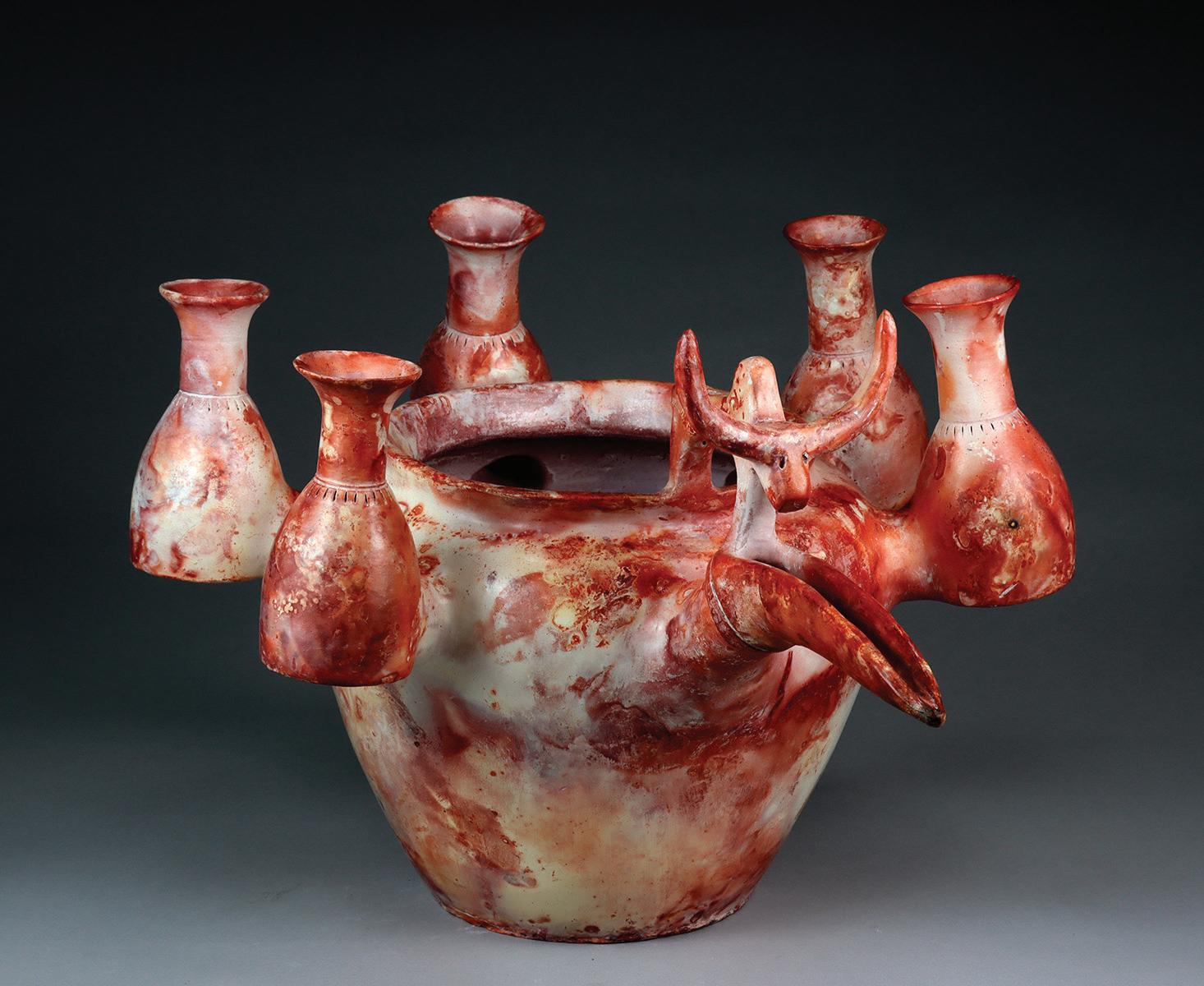
Clive watched in disbelief as the dog struggled against the water, its desperate cries echoing through the clearing.
e crazed dog leaped into the temple’s stagnant pool, disturbing the serene surface of owers and murky water as it thrashed about. e water churned violently, owers and lily pads scattered in all directions, leaving a trail of chaos in their wake. Clive watched in disbelief as the dog struggled against the water, its desperate cries echoing through the clearing, not because of the yelps of the dying dog but because of what lay right beside it. A massive golden barasingha drank from the tank, lapping up the water, which was muddy, an earthy, almost brownish-red, as though the iron content of the soil had seeped into the water. As he leveled his gun to shoot, he noticed the ripples from the deer drinking from the tank bouncing o something in the center of the body of water. en he noticed the tendrils and roots of the aqueous owers, which stretched out radially from a central nexus. He followed those until he saw the organism.
Floating amidst the disturbed waters was the limp form of what seemed to be a young boy, his lifeless body adorned with owers, a sole crimson lotus protruding from his mouth. Its roots owed through his bloated, almost milkily transparent body like nerves, erupting from his head into the stalk of the crimson lotus. Clive pulled the trigger in re ex shock.
e majestic barasingha bellowed in panic and pain, its antlers catching the sunlight as it attempted to ee, blood freely owing from its rear. e wounded deer limped and dragged its body under a nearby copse of trees, where it expired in what seemed to be a eld of white minerals like apatite. Clive recognized the tree. He recognized the nooses hung from the branches like sinister ornaments, the branches from which strange fruit had been plucked. He had been here only four years
before. Clive smiled grimly as he looked more closely at the minerals beneath the tree. Dried bones lay underneath the ropes. He chuckled. He red one more shot into the moaning deer, then traipsed over to the trees to retrieve tomorrow’s lunch, whistling to his retinue, which hung back behind him. ey didn’t move. eir faces were set in unmovable catatonia. ey didn’t want to go near the killing elds where the bodies of their cousins and sisters and uncles lay, their bodies torn apart and deposited such that they would su er eternally, never receiving funeral rites to put them at rest. ey remembered Clive, a commander in the Bengal Army, torturing and killing those who had mutinied, killing their sons, killing their families, leaving the women for his men. Clive whistled again, shooting his ri e into the sky. e shikari slapped a few of Clive’s men in the face, ordering them to follow him and bag the result of the day’s hunt.
e party left, but Clive stood in the temple clearing, confused. He did not remember there having been a temple here. He remembered marching those who had found refuge in the forest (o cially still rebelling against the Company) to this clearing. But the temple hadn’t been there, had it? Clive shrugged, making his way back to the group that wound its way back to the bungalow.
Clive woke up. He didn’t understand why he was reliving yesterday’s odd happenings in his dreams. He wasn’t particularly scared; they were just replaying in his mind, again and again. e servants called out to him, reminding him of the meal awaiting him. He went into the dining room, where he was served a wonderful venison and a ne wine from Bordeaux. He feasted.
Once done with his meal, Clive told his servants to tell the driver that he was going to depart for Saugor. e
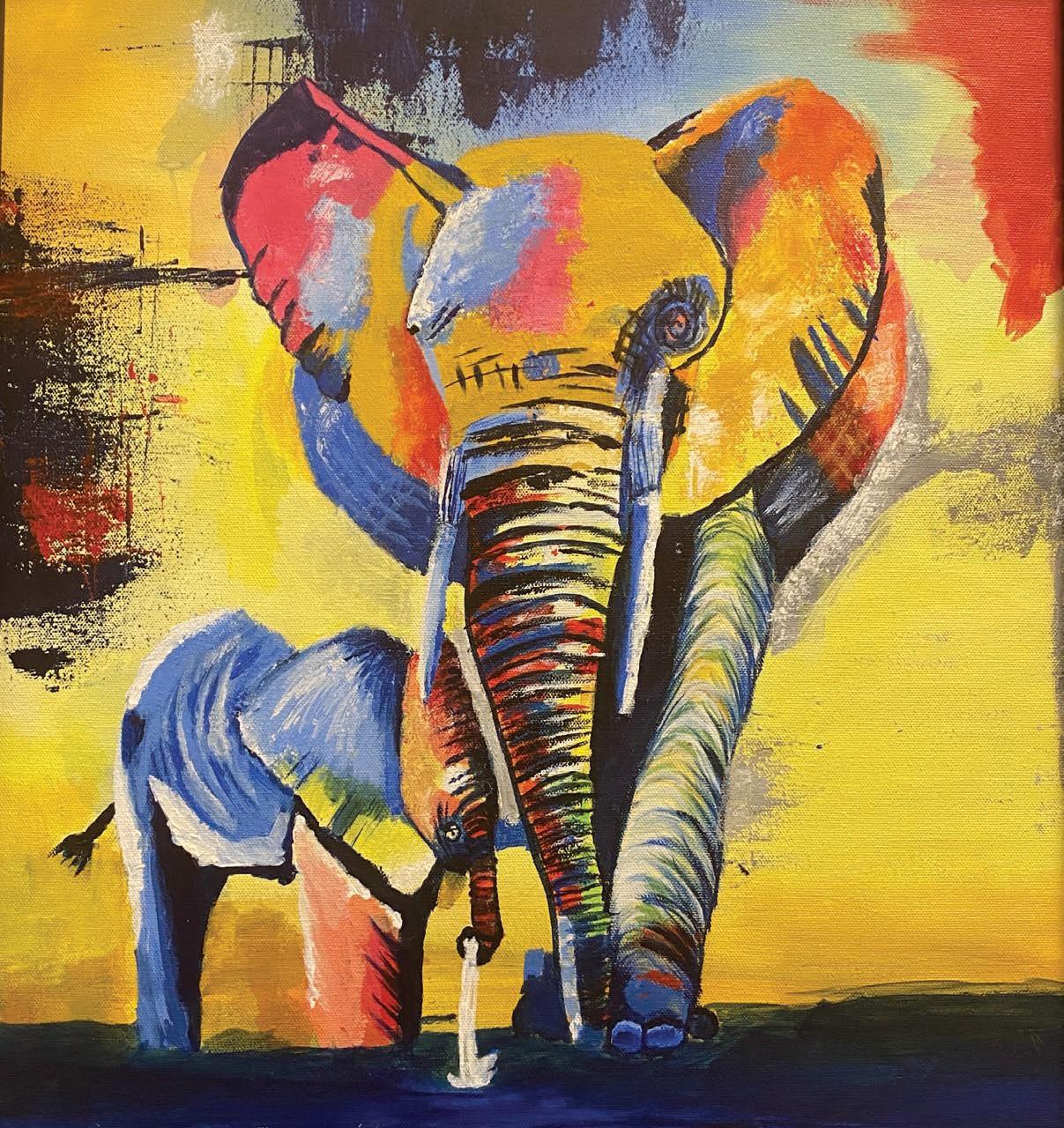

The walls were adorned with gruesome depictions of torture and su ering, each image more horrifying than the last.
damned fool administrator had not nished his job, so he needed to at least check up on the place himself.
Upon reaching Saugor, Clive was greeted by the rancid smell of rotting esh. e famine had clutched Saugor by the neck and throttled it. Vultures circled overhead, their sharp cries piercing the air as they feasted on the remains of the dead. One carrion-eater stood over the small body of a child that seemed to be naught but a ribcage, two sticks for legs, and a face on which the vulture was busy feasting, plucking out his eyeballs to get at the aqueous humor. e birds of prey are thirsty too, Clive thought. He walked amongst the devastation until his heart nearly stopped in shock.
Standing in the town square was the temple. ere was no mistaking it; it was the same rain-blackened, stone temple that he had seen in the clearing near the killing eld. Not the same architecture, not similar designs. e same one. e deer-headed god crushed the homunculus. Clive clambered up the temple steps in his boots and kicked open the sanctum sanctorum.
Entering the shrine, Clive was met with horror. e walls were adorned with gruesome depictions of torture and su ering, each image more horrifying than the last. Red men with cannons and muskets and knives, and it was him on these walls -- he knew it -- he needed to get out, he needed to leave -- it had nally come to him. In the place of the idol was a deer-headed god, its eyes blazing, neck strung with faces that kept changing. Brown men and women and children that he recognized somehow were projected in some slideshow of torture. eir faces were like Greek masks of tragedy, bent in awful
proportions in pain and su ering. Clive rushed from the sanctum sanctorum, this nightmare realm that seemed to have ensnared him. But as he turned to run, Clive found himself in a dark, dank compound seemingly underneath the ground, unable to break free from the su ocating grip of his own fear. He struggled against unseen forces, his pleas for release falling on deaf ears.
He rushed into a small, enclosed room. He looked around, but saw nothing but dark walls around him; he looked up at the ceiling, and he could swear that he could see through it. It was through the hard wood oor of his bungalow. He had somehow come back home. He rejoiced, trying to climb out of the pit he was in. But then he saw himself. He saw Clive pacing back and forth above him in the bungalow. Clive screamed, begging himself above him to set him free, to release him from this nightmarish prison. Clive paid no notice. Clive ung a chair against the wall. Clive heard the splinters from above. Clive wailed. Clive bled. Clive saw his blood dripping down into the oorboards onto him. Clive felt his own blood dripping onto his face.
Clive was thirsty, his throat parched, su ocating in the pit. He welcomed the cool blood into his mouth.
But the tendrils plunged into his body, rooting him to the ground. Clive felt every bit of it.
He felt the roots envelop his spinal cord, making him unable to move. He felt the stalk of the ower climb up the esophagus. He felt the lotus bloom. He saw the deer around him eating the vegetation around him. He saw himself getting called from above to feast on his barasingha. He felt it all, until he could no longer feel.
By Christian Neisler ’24
In the shimmering dust, a band Of infrared light was the only clue from afar of the fuse Between the yellow and orange dwarf stars. e stellar tree Connecting the Alpha Centauri star system sort Of collapsed as Rigil Kentaurus and Toliman became one. Reverberating through the interstellar medium, the shockwave made a run
Past solemn echoes of a star’s death, a run Into the icy Oort cloud lled with planetesimals which banded Together under the in uence of gravity, passing not one Neighboring star without dumping ionized gases that would fuse And release coronal mass ejections, the sort Of bursts of magnetic eld that disrupt entire trees
Of life. Sol’s geomagnetic storm assaulted Earth’s biosphere, no tree Left untouched by the deluge of radiation which decided to run Rampant among carbon-based life. An attempt to sort rough the surviving satellite data revealed a band Of intensely a ected trees in the Amazon which could fuse Together into a constantly growing superorganism, one
Massive, thirsty, tangled knot of roots that one Might confuse for an underground ball of hardened spaghetti. Tree After tree joined together, igniting the fuse Of a hyper accelerated evolutionary process run By a mutated allele. eir faulty DNA lacked the bicolored band at keeps plants from uniting roots with trees of other sorts.
e conglomeration of organic matter consumed every sort Of particle from the air, scrubbing the air clean one Pollutant at a time. Slowly, the atmospheric band Of smog began to clear as the mutant tree Species replaced impurities with diatomic oxygen; continuing to run, is highly e cient puri cation process fused
Undesirable compounds and buried them underground, lighting the fuse
For a climate solution. e problem scientists had tried to sort Out for years had been trivialized by a stellar explosion run Rampant. By some adventitious circumstance, one Distant supernova had created an alien on Earth: a tree Symbiotic with all plant species. Forming a band
Of foliage that could fuse together, the anomaly eliminated the band Of contaminants caused by industry run awry. e one World capable of sustaining any sort of life was saved: saved by a tree.

“Dale”
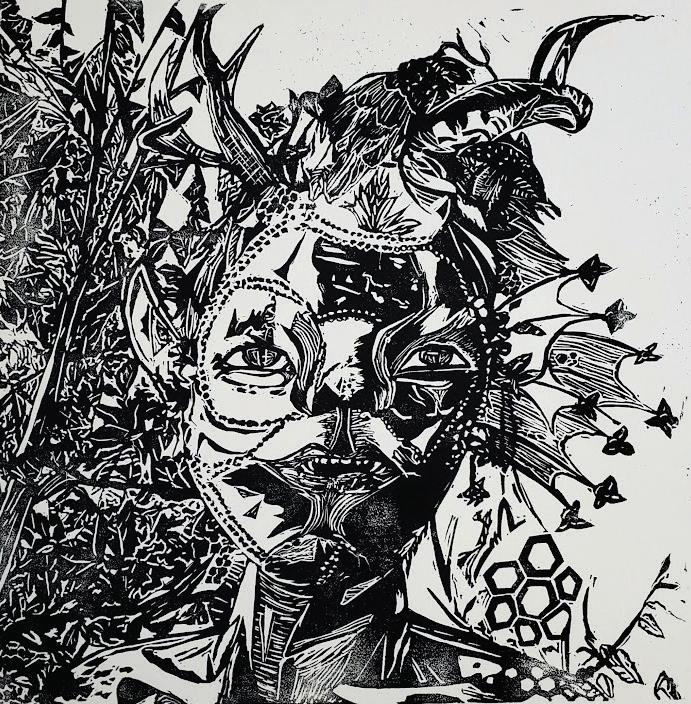
By Ethan Bosita ’24
Randall’s crumpled form lay sobbing on the ground, his muscles and ironclad Physical fortitude blindsided by the Xenoform’s mental assaults. Like a sneak In ltrating a citadel through an unguarded sewer, its brainwaves subverted Randall’s logic, Tearing apart his patterns of thought and destroying his perception of reality. Besieged By an incomprehensibly ancient force, the man retreated from reality, ying Away into his own headspace, supposedly protected from the meddling of cosmic
Beings. e Xenoform looked upon the prone man, the prey it had subdued. Life-giving cosmic Evolution seemed to have failed this creature. It had in its possession no ironclad Carapace to protect itself with, no ability to cast projectiles and down ying Prey, and no innate abilities to ambush, exhaust, pursue, or sneak. And yet this horror survived the gauntlet of life. Its ancestors assailed and besieged By all manner of natural predators, somehow the bloodline survived. Logic
Dictates that these defenseless creatures should have passed into extinction. Poetically, abusing logic Proved their saving grace. In all the universe’s myriad corners, beings operate upon cosmic Constants, aspects of reality that are constant, sacrosanct, and inviolable. And yet minds are besieged In perpetuity by logical inconsistencies, surviving solely through ignorance and ironclad Fortresses of obstinacy. rough evolution’s ukes, Xenoforms gained abilities to remotely sneak Into brains and lower their defenses, essentially short-circuiting sanity. “Natural” adaptations like ying seem weak and useless compared to this natural superweapon; “Good luck ying away when your very brain bows to my command,” the Xenoform seems to taunt. Human logic has no home in the aliens’ realm of madness. Insanity must counter insanity. Xenoforms sneak into humans through logical gaps; without logic, they lose access to the mind. Exposed to cosmic rays at a young age, Tim had never been a stable person. Sealed into an ironclad straitjacket and dumped into a deep space mental asylum, the man had developed a besieged
mentality, believing literally everything was after him. Most avoided the besieged man, fearful of his instability and proclivity to go ying into a psychotic episode at the slightest provocation. And yet, as the ironclad asylum found itself under attack by a creature that preyed upon logic, the survivors found that the only man with a chance to destroy this cosmic horror was Tim. Approaching Tim’s cell, these desperate few sneak
past the resting Xenoform; entrusting one among themselves to free Tim, the chosen sneak in ltrates the cell and frees the insane man from his shackles. Quickly besieged by Xenoforms alerted by Tim’s shouts and screams, Tim felt their cosmic waves washing over his mind, but he had no reaction. Roaring and ying at them with his bare hands, Tim tore into the swarm of aliens. eir overemphasis on logic and subverting minds left them vulnerable to a threat with no logic, no mind to subvert. An ironclad
defense against their evolutionary path, one of a few things that sneak Underneath their otherwise invincible cosmic assaults.
e Xenoforms all perished to Tim’s assault, their physical forms falling as dictated by logic.
“Mr. LaBrodeur” | Leo Hughes ’27

By Charlie Hill ’24
RustyKraken was not in a good mood. It was Monday again. After a weekend of neglecting his responsibilities, he had to go back to work. After a year of working the same job, Rusty was tired of it. He was still young, having just turned twenty-three, and he wanted a fresh start somewhere new. Unfortunately, his dreams would have to wait until tomorrow as his boss was expecting him. After throwing on a worn-down gray hoodie, Rusty grabbed his backpack from the oor and exited his small apartment in upper Manhattan. He trudged down the steps of his decrepit building and walked to the subway station a block away. As he waited for the train to arrive, he looked around at his fellow commuters. Men and women with zombie-like expressions attempted to prepare themselves for another week of work.
Finally, the train arrived, and Rusty was able to grab a seat for his ride to work. As much as he wanted to put his headphones in and take a quick nap, he didn’t trust the other passengers to ensure the safety of his belongings. When the conductor announced that Rusty’s stop in the Upper East Side was approaching, he got up from his seat and edged closer to the door. He was running late. e doors nally opened, and Rusty hustled up the stairs and out onto the street. He ran the last block to the o ce and burst through his door right as the clock struck nine o’clock. He was supposed to be there at eight. Rusty was
struck by an unpleasant scent: e strong odor of cigar smoke permeated the o ce. His boss, Mr. Michaels, was seated in a large leather chair, reading that day’s newspaper. He looked up from his oversized desk.
“You’re late again.”
“I know I’m sorry, I overslept my alarm. It won’t happen again, “ Rusty said.
“I don’t care about your excuses, Rusty. I’m tired of the tardiness. Here is your shopping list for the day. Get it done.” Mr. Michaels glared at Rusty and pointed at the door before reopening the newspaper he had been reading.
Rusty, ustered, picked up the list on the desk and walked out. He glanced down at it, and his eyes widened. He would need to go to Lower Manhattan to get everything from the list. He exited the building and walked back towards the subway. Rusty hoped he could get through at least half of the list by noon so he could get a nice lunch. By the time Rusty arrived in Lower Manhattan, it was a quarter until ten. He got started right away. Before he even got o the train, he began to scan the crowd. After a moment of searching, he noticed a man, no older than thirty, in a custom suit. He had a leather briefcase with gold latches and a Rolex poking out from the cu of his shirt. Fortunately for Rusty, the man appeared to be preoccupied with the music playing from his headphones.
The look of rage and the surprising strength in the man’s grip convinced Rusty to cut his losses.
Rusty attempted to approach the man from behind until he was only a step behind him. As the man exited the station, Rusty brushed up against him, mumbled an apology, and kept walking, though much faster than before. A moment later, Rusty felt a hand on his shoulder. He immediately broke into a sprint, but the hand was able to grab hold of his backpack and yank him back.
“Where the hell is my watch?” said the man. e look of rage and the surprising strength in the man’s grip convinced Rusty to cut his losses. He reached into his pocket and tossed a Rolex watch at the man’s face before sprinting o into the crowd of people on the street.
Rusty did not have much more success with unsuspecting commuters that morning. He had spent the entire time patrolling the streets of the nancial district, and his only successful theft had been the wallet of an old man who was too slow to chase him down. It contained a credit card, a ten-dollar bill, and a bus ticket to Florida. Not a great haul. Rusty pocketed the ticket and the cash, but the credit card would have to go to Mr. Michaels. All the other rich businessmen around were too protective of their belongings or Rusty just lacked the skill to steal from them.
Soon it was time for lunch, and the ten-dollar bill from the old man’s wallet wouldn’t cover anything more than a sandwich and coke. Mr. Michaels’ shopping list included three Rolex watches and ten credit cards by ve o’clock that day. Rusty had a lot of work to do in the afternoon.
Despite his best e orts, Rusty didn’t fare much better. He got one credit card from a woman who was screaming on a phone, but other than that, he struck out
completely. Rusty got back on the metro and headed back to Mr. Michaels’ o ce. When he arrived at the o ce, Mr. Michaels’ was still sitting behind the same desk with the same look of annoyance on his face.
“What’s the haul?” he said.
“Well, I didn’t quite get everything that you asked for, but I still got some good stu ,” said Rusty. He gingerly placed the two wallets he had stolen on the desk.
“Are you joking?” Mr. Michaels grumbled. “I gave you a very simple list. If this is all you are going to bring back, we are going to have some problems.” Rusty attempted to mumble an apology, but Mr. Michaels cut him o . “I have a job for you. Tonight. is is your last chance. You better not fail me again. All the information is right here. I will meet you at eight tomorrow morning.” He slammed a folder on the desk and gestured at Rusty to pick it up. Rusty grabbed it and left without waiting for a dismissal.
Rusty opened the folder once he arrived at his apartment. e target didn’t seem too di cult at rst as he was supposed to break into a nearby convenience store. Upon closer inspection, Rusty realized the target was not the cash register but rather a safe. e safe was in the back room; he was supposed to break into the store and crack it. e only problem was that Rusty didn’t know how to pick a lock. Rusty also didn’t know how to crack a safe. He wasn’t very good at his job. After trying to think of a solution, Rusty went to the hardware store and bought a blowtorch and a crowbar. Hopefully, that would do the trick.
At midnight, Rusty gathered his things and headed towards the convenience store. When he arrived, most of the lights were o inside, and the “closed” sign had
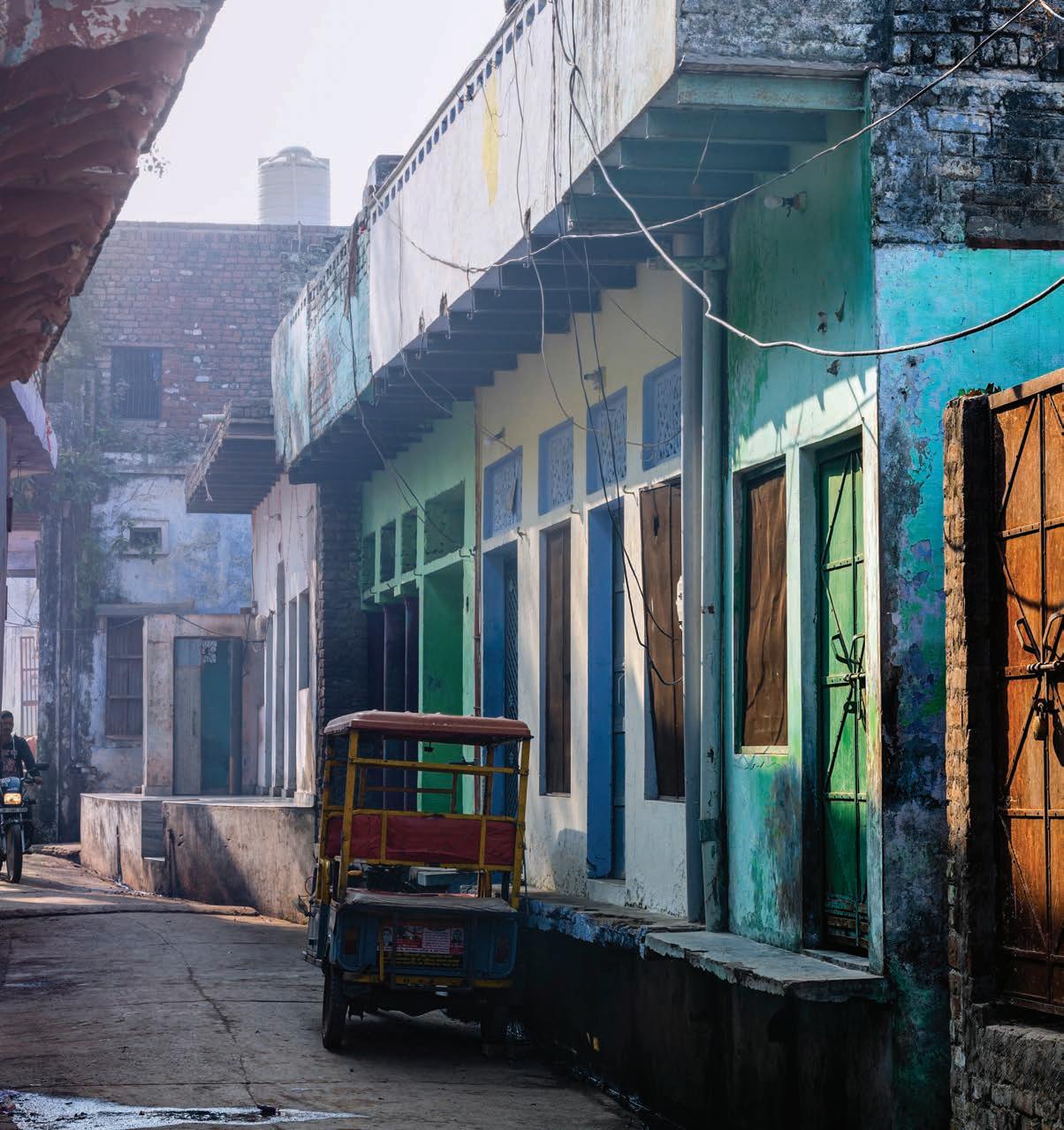

been put up. Not only that, but the bars on the doors and windows would make his crowbar useless for breaking inside. Frustrated, Rusty sat down on the front step and leaned back against the door. His head banged against the oor. e door was unlocked, and it had swung right open. Rusty, confused, stood up and walked inside.
After surveying the store, it appeared that he may not have been the only visitor that night. A display of sunglasses had been knocked over, and the doors to the coolers were wide open. Flustered, Rusty decided to continue with the break-in. He walked towards a door in the back that looked like it might be the back o ce. He looked inside and found a small desk, a lamp, and some metal cabinets. On top of those cabinets sat a rusty safe. Upon closer inspection, Rusty realized that the door to the safe had been cracked open. Rusty couldn’t believe his luck. He lifted the safe o the cabinet and placed it on the desk. Inside, he found several thick rolls of cash. It looked like several thousand dollars. Rusty quickly stu ed the money inside his backpack. He put the safe back on the counter and walked out of the store. Worried about the wads of cash in his backpack, Rusty hustled back to his apartment and locked the door behind him. He decided he should get some sleep before meeting Mr. Michaels in the morning.
“You’re late,” Mr. Michaels said. “All of it had better be there.” Rusty placed the backpack on the table and opened it. He pulled the cash out and handed it to Mr. Michaels.
“Is this all of it?” Mr. Michaels asked.
“Yup, way more than I expected. Really easy job, too,” Rusty said.
“Do you think this is funny? Where is the rest of it? Where is my damned money?”
“ at was everything that was in the safe, I swear.” Rusty exclaimed. “I think someone might have taken some of it before I got there, but-”
Mr. Michaels didn’t wait for him to nish. He pressed a button on the phone resting on his desk. “Roger, bring me my briefcase, please,” Mr. Michaels growled. Rusty knew that wasn’t a good sign. He had to do something.
Rusty dug around in his pockets, but he had forgo en his wallet in the rush to leave that morning.
When Roger opened the door, Rusty made a run for it. He slid around Roger and ew out the front door. He kept sprinting once he made it to the street. He heard a loud pop behind him. And then another. Rusty didn’t dare look back, but kept running for what felt like hours until he approached a bus stop. He jumped onboard just as the doors were closing.
“Ticket, please,” the driver said.
At the sound of a car honking outside, Rusty woke up and rolled over to look at his alarm clock. It was fteen minutes until eight. Rusty threw on the same clothes from yesterday and sprinted to the subway station, hoping that by some miracle he could make it by eight.
When Rusty arrived, he burst through the door of the o ce and exclaimed, “I have your money!”
Rusty dug around in his pockets, but he had forgotten his wallet in the rush to leave that morning. He felt a piece of paper and pulled out a white slip. It was the bus ticket to Florida he had stolen from the old man yesterday. As the doors closed behind him, Rusty breathed a sigh of relief. He handed the ticket to the driver, who took a short look before handing it back to him. Rusty took a seat in the back of the bus and settled in for a long ride.
By Amogh Naganand ’24
Pulled in by the lures of our generation, he wastes his days in bed addicted to scrolling from post to post. His textbooks are open, yet not a single page is marked. He nds himself struggling to even move his legs out of his perfectly formed Tempur-pedic mattress. e more he waits, the louder the screams of his mother become. “Get up, you lazy bones,” she cries. Finally, he conforms to her wishes. But after no more than thirty minutes of working, he nds himself sinking right back into that Tempurpedic mattress. is is my reality, and the same holds true for many across our nation. We can tell ourselves that we aren’t lazy, just stressed, and that wasting our time is a coping mechanism. But the truth is that we’re weak, weak mentally. e comforts of our modernized world have a ected the way we think, instilling poor values in our future generations. To continue to develop positively as a society, we need to understand that our individual happiness means nothing, as it does not contribute to society, only ourselves. Just as our ancestors have had to work and work and work, not for their enjoyment, but to support those around them, we, in a privileged nation, must learn the same discipline they had, and I believe that an NPC mindset is the way to do so.
Having an NPC mindset where we focus solely on our duties allows us to be the best versions of ourselves.
Our society is weak. As time has progressed, and the majority of people have gained rights, we have learned to take for granted the privileges that our country provides. Constantly chasing pleasure, we have come to believe that the purpose of life is to be happy. I beg to di er. What does happiness do for people other than yourself? Nothing. If our goals are only for the sake of happiness, any setbacks in our life become painful, but if our goal is to be useful, not only are setbacks easier to overcome, but happiness also becomes a reward to ourselves and those we help. And to maximize this usefulness, we must approach life as an NPC. Unless you are Patrick Star and have been living under a rock, you likely know something or other about video games. An NPC, or nonplayable character, is a preprogrammed character in a video game that accomplishes task after task repeatedly.
While calling someone an NPC is generally viewed as an insult, I propose that having an NPC mindset where we focus solely on our duties, allows us to be the best version of ourselves, as we become primarily focused on our usefulness rather than our happiness. Only when we stop prioritizing ourselves, and start prioritizing the world we live in, will we gain the strength we need to move forward
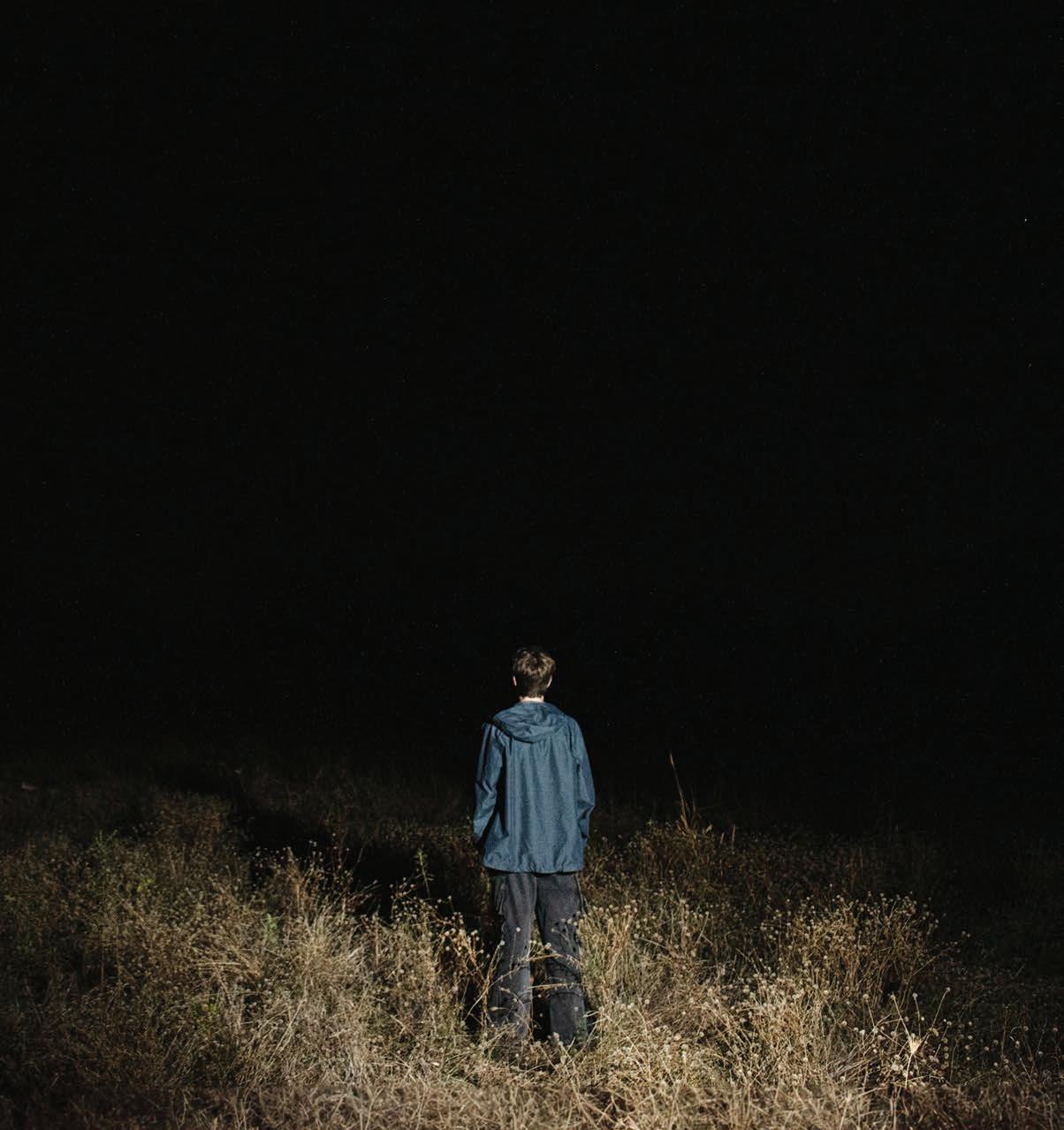
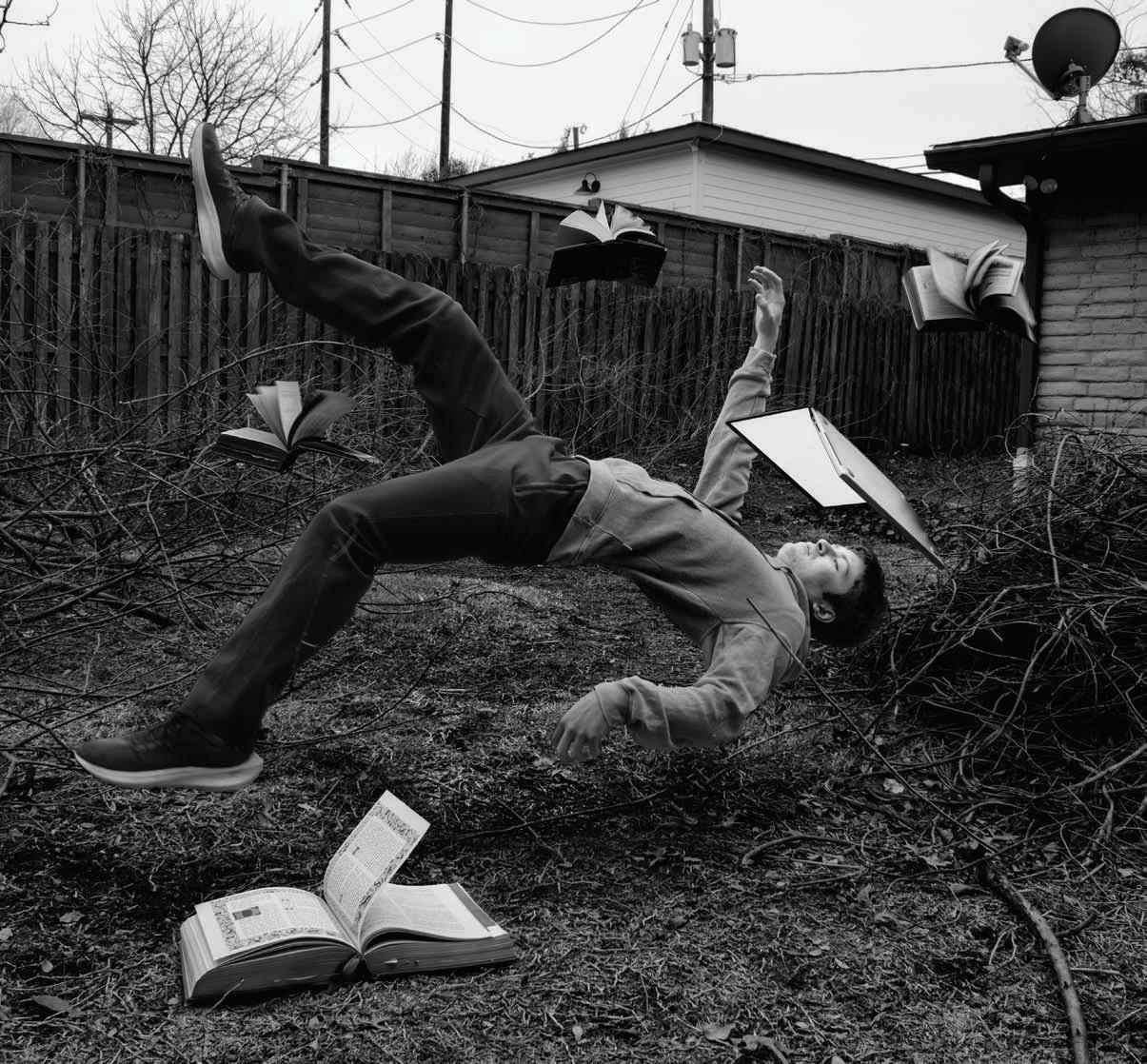
“Airborne” | Reed Sussman ’24
as a society.
Instead of instilling beliefs that would contribute to a prouder work ethic, we have brainwashed the future of our country with super cial values. Every time we like a post of someone applying heaps of makeup, wearing exposing clothing, or dancing inappropriately, we validate the idea that these are meaningful qualities. It is because of these failures that we have teenage girls advertising their body count and guys applauding their “achievements.” Life is not about enjoyment; it is about hard work, and it seems that only those who have struggled really understand this. Looking at countries like Singapore, we can see that strict governance has led to a better society with a highly developed infrastructure and leading education. Contrastingly, the United States leads the world in obesity, incarcerations, and teen pregnancies, not exactly what I would consider an advancing society, and they are all a result of our tainted values.
When we become just another fragment of history, nobody is going to care for a lone individual.
You may be asking why, if society evolved over thousands of years to give us rights and freedoms, am I now saying not to take advantage of these rights? e answer is, I’m not. It is completely valid to practice our freedoms, but I am proposing that individualism is a plague on those rights and the further progression of society. Simply put, we can’t abuse what we have. e reason we have these rights is because of our parents’ work and their parents’ work, and so on. Similarly, we too must think about the future of our country and our world before ourselves because otherwise, we risk losing the rights we so take for granted and, moreover, the progress that has been made. Our actions have consequences, not only for us, but also for our future generations, so it is of the utmost importance to value the greater good above our own satisfaction.
You don’t matter, at least not individually. You and I are just like aimless cockroaches wandering about in a world much larger than we can even imagine. at is why we call the individuals lost in war “casualties” or “collateral damage”: to try to minimize the e ects of their deaths because as long as the war is won, they were worth it. Similarly, it is the combined strength of a community that actually matters. When we become just another fragment of history, nobody is going to care for a lone individual; individuals will be obsolete, and people of the future will only care about us as a society and the impact we leave behind as a whole, which makes it imperative that we work towards something greater than ourselves.
We must strive for discipline and to develop a strong work ethic. Our country speci cally seems to struggle to gain these traits, while our foreign counterparts have begun to ourish due to their view on such values. Our rights have changed the way we view success, and they have caused our society to pursue activities that don’t contribute to anything more than themselves. Taking on an NPC mindset allows us to be more e cient, which in turn can allow us more meaningful uses of our time. We should derive happiness from the completion of meaningful work rather than through the validation of our own super cial beliefs. Before rejecting this idea, take a look at yourself and ask yourself: what do I contribute? Only when we contribute to something larger than ourselves, can we truly say that we mattered.

By Justin Tong ’24

The meeting started with shouting and arguments.
From individual soldiers to captains, no one seemed to agree on what to do, but everyone had a solution. Calls for order were met with more verbal assaults, and even the general struggled to draw the attention of all the soldiers. Nathan watched as the mayhem ensued around him.
“Time is of the essence.” As the captain strode forward, all eyes fell on him. e usually quiet yet rm leader suddenly was full of words. “We have to make a decision. Without action, we’re gonna get herded like sheep. So let’s just go forward and ght em head on.”
Shock and fear covered the faces of his soldiers, but the captain paid no mind. He left the meeting as quickly as he had made his presence known.
Nathan Bao had never enjoyed using his words. Where he was from, the only words spoken were lies. Everything he knew was a lie. From the restaurant owner who gave him “free” food only to suddenly ask for payment knowing that Nathan couldn’t a ord to pay, to the schoolteacher who said, “If you study hard and get
good grades, you’re gonna become rich,” to the solemn o cer who told him his parents would return, to the doctor who said his parents were just asleep. All of them told their lies with solemn faces, pitying the young boy, but no one tried to help. Empty statements rooted in lies continued to torment Nathan’s mind. Every day that his parents didn’t return, he grew more distrustful of the town that had wronged him.
Even though he loved his town, the scenery, the environment, the people and the lies enraged him. e town represented everything that had been taken away from him. e people he thought he could trust took his family and left him alone. He worked to earn money that never seemed to last and to leave the prison he was trapped in. e newfound seclusion within his home fueled him day by day. At the end of every day, when he returned home to the one-room shack on the edge of town, Nathan longed for the fairytale world he always saw in the books he read in the library or the “land of prosperity” he always heard about on the radio. So when the enlistment o cer came knocking one day, Nathan saw
it as a way out. e years of hard work along the edges of town had turned Nathan from a lanky child to a combatready man. e scars that riddled his face signi ed not only the battles behind him, but his preparedness for the wars ahead. Full of desire, Nathan dreamed of seeing the world and leaving the small town full of liars. He saw a future in the army lled with brothers and friends.
Years had passed since Nathan joined the army. He no longer was the lanky boy who had enlisted.
He’d own up the ranks, sparked not only by his skill in combat, but by his brain and strategy. Nathan’s ability to spot weaknesses in even the strongest enemies paved the road for many victories. His genius, however, was limited by a lack of desire to speak and to lead. Hence, he was limited to the captain’s position, quietly supplementing the general with strategy and guidance.
When the civil war had begun, Nathan hadn’t really known what to make of it. e small town he had grown up in had ourished into a city, demanding more and more resources and power. e liars from the town had grown into businessmen and politicians, and they started to form a militia which left the national government in a di cult situation. While Nathan despised the people from his town, a small part of him still appreciated what the town had to o er. It was, after all, his hometown. It had provided him with harsh lessons about life. But when the militia began to terrorize nearby towns, the army was called into action e city’s militia began to grow rapidly, attracting people by the thousands as they ooded into the city, motivated by the lies and outrageous claims made by the politicians and leaders of the rebellion.
By the time the army arrived, it was the smaller force, and while their soldiers were more capable ghters, the disparity in numbers started to overwhelm it. Soon, the army was forced to retreat, and the general called a meeting.
Initially, Nathan’s words at the meeting only caused more mayhem. Countless new ideas spewed from the 38
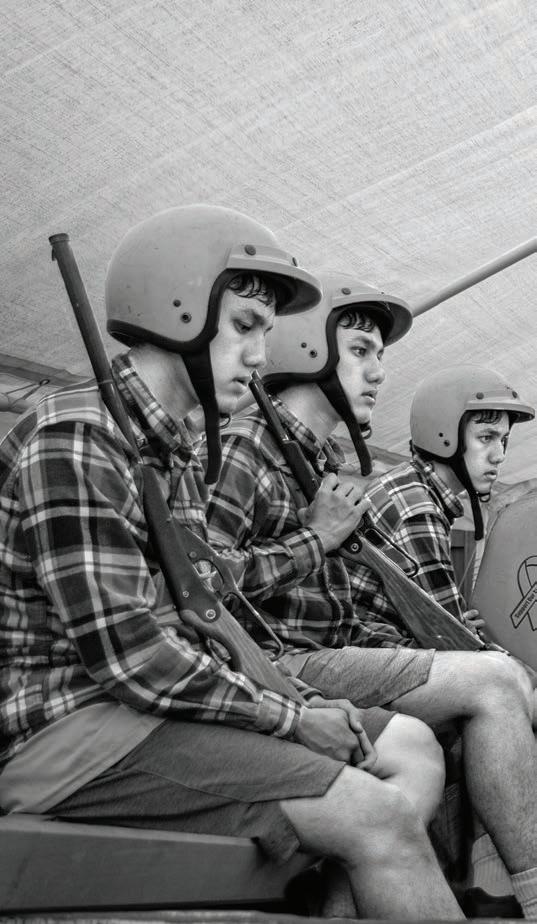
“Portfolio”

The ba le wasn’t easy. So many of the soldiers Nathan considered to be the strongest in the army were unable to adapt to the new, brutal fight.
crowd. All the soldiers feared the possibility of death. Nathan had recognized the army’s weaknesses; it wasn’t a lack of skill, but rather, a lack of desire. e same desire that Nathan had when entering the army, the soldiers lacked. e desire for revenge, for the future, for a better life, for success. As the meeting droned on into the night, and with no other reasonable solution available, the general chose Nathan’s plan.
e battle wasn’t easy. So many of the soldiers Nathan considered to be the strongest in the army were unable to adapt to the new brutal ght. Slowly but surely, the rebels were getting pushed back.
As Nathan pushed his own unit forward, straight into the heart of the opposing militia, he recognized many of his former neighbors. And with each shot from his ri e, he remembered the lies they had told him. “One day, when I get rich, I’ll pay you back.” “When you need help, call me. I promise I’ll be there for you.” “ ey’re just sleeping.” “ ey’ll be back.” e rage trapped within him unleashed in balls of fury around him. Blood owed all around him, tainting the ground. e thoughts of his past torment, the ruined image of his hometown, all fueled him as he charged on the front lines with only one thought in his mind: “ ey must pay.” By the time Nathan had reached the back line of the rebels, his once-spotless coat had become soaked in red. But when he surged
forward toward the leader of the rebellious militia and looked at the leader’s face, he saw himself.
He saw the young boy who had been told by the schoolteacher that he would become rich one day if he studied hard. Nathan, convinced that his eyes were deceiving him, rubbed his eyes and looked again. is time, he saw the scrawny kid who had been fooled by the lies all the police o cers told him. Blinking again, Nathan then saw the young adult who had returned home to the small shack at night after a day at work struggling to make ends meet. Finally, with one last shake of the head, Nathan saw the true face of the leader. e wicked smile covering the face of the leader taunted the captain. It represented all the past struggles that still haunted him. e strategies that made Nathan a tactical genius who always avoided direct con ict.
He sought to avoid battles, and he had run from his largest battle: his past. In the eyes of others, the lies they told were mere bs, used to comfort Nathan, not antagonize him. e lies had become weights on his shoulders, but now, standing before him, in the leader’s face, he saw the liars and the pain he endured. He recognized the sorrow each liar had: lying to a little boy who deserved the truth. e sorrow he would relieve each one of. So as he raised his bloody hands, aiming his ri e forward, he nally could say goodbye to the lies.
He sought to avoid ba les, and he had run from his largest ba le: his past.
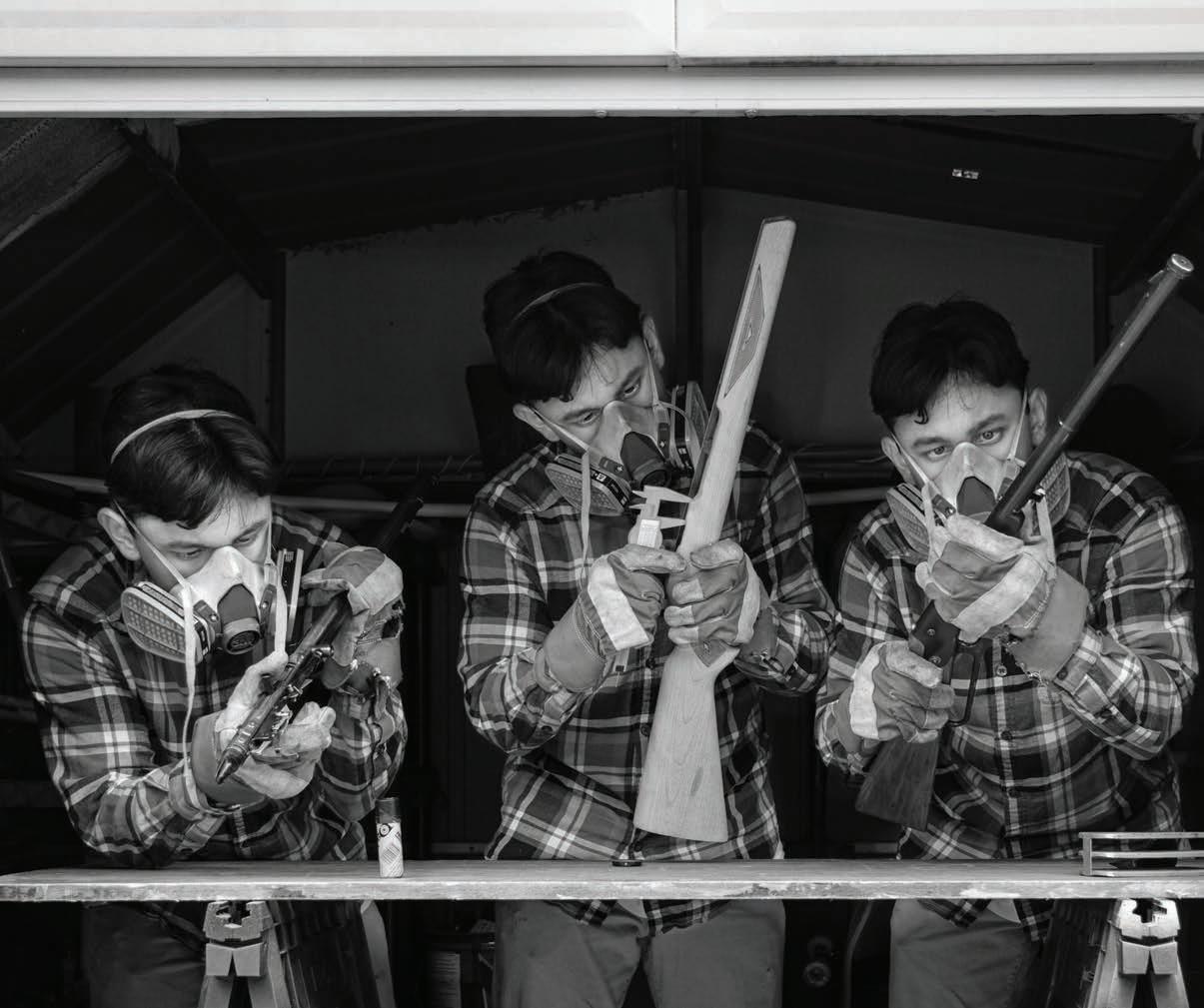
“Gunsmiths” | Nathan Meyer ’24
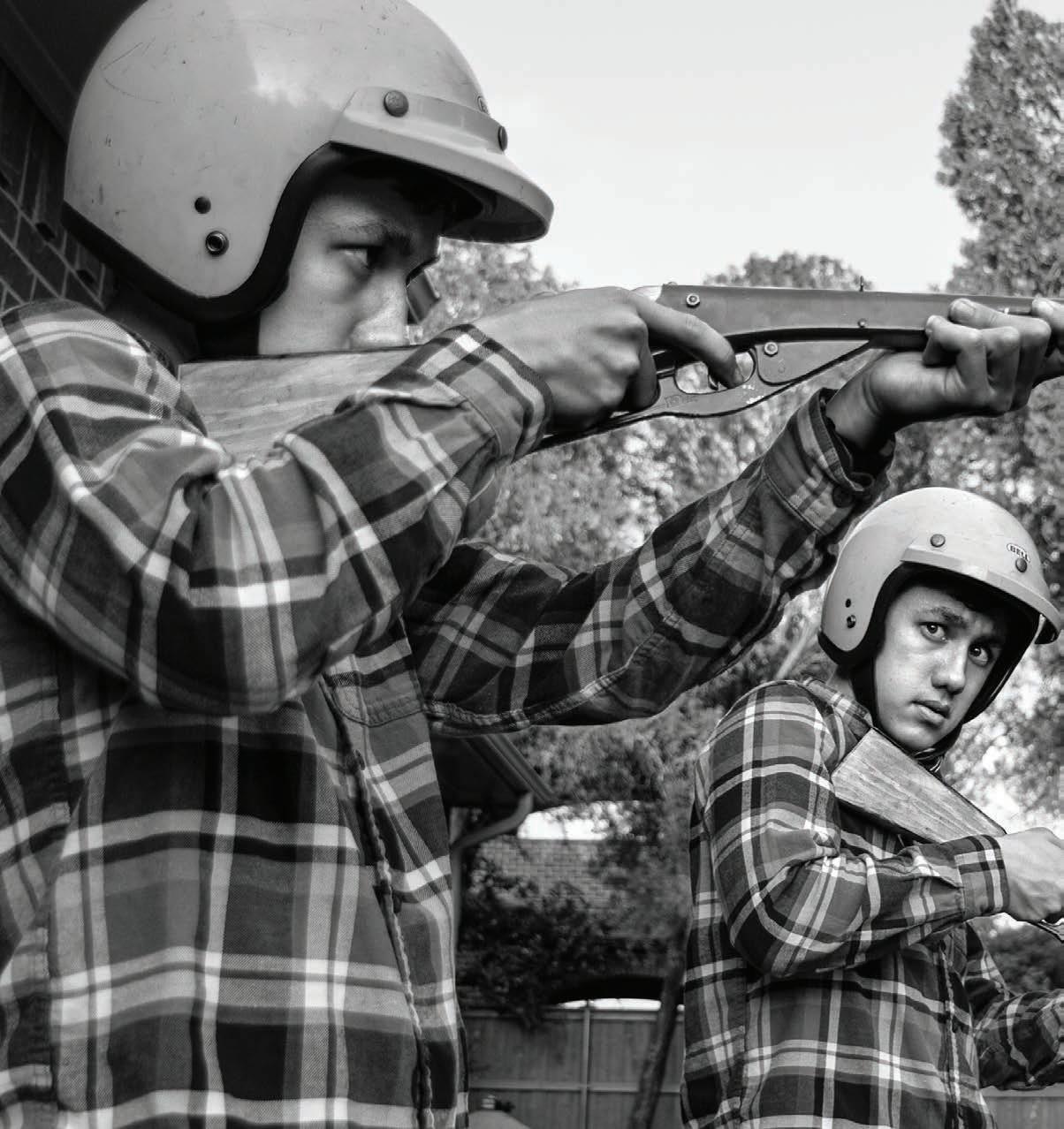
By Grayson Redmond ’24

e barge’s door creaks open and spits me Out of its jaws like Jonah from the Whale. e shots ring out, but it’s too late to ee; I’ll take my place among the sand and shale.
War reverts all to their default setting. e Brits curse, the Czechs drink, and the waves swell, Laden with bodies, leaving me fretting My death at the hands of some German shell.
Oh, lovely France! Why must you always frown? Has the shrapnel torn a hole through your heart
As it has mine? I’m here to claim my crown Of thorns: the wire tearing my esh apart.
With nowhere to turn and nowhere to run, I’ll aim my ri e to shoot out the Sun.
“Firing Squad” | Nathan Meyer ’24
Story by Teddy Fleiss ’25
Drawninto the world of art from a young age, senior Holden Browning found inspiration in the creative lineage that surrounded him. With both his grandma and mom deeply interested and involved in art, Browning tagged along, learning a lot and nding his passion in the process.
“My grandma and mom are both into art,” Browning said. “From the time I was young, I always drew and painted with them. ey let me tag along, and it was always super fun to be with them.”
Browning’s mediums and styles began simply, starting out with basic markers before he began delving into more complex paintings, a transition encouraged by the creative freedom and many mediums o ered at St. Mark's, where Browning could explore new techniques.
“As a young kid, I started out drawing with just markers,” Browning said. “I then realized I liked it, and St. Mark's allowed me to explore other mediums I was interested in such as painting.”
When deciding on his next subject, Browning keeps a watchful eye for anything he sees that is interesting, no matter how unexpected it may seem.
“It’s pretty random,” Browning said. “A lot of times it's the hardest part for me; guring out what I’m actually going to do. One time, I was watching the Mike Tyson series on Hulu and just decided to draw Mike Tyson. Other times, we have set assignments or pieces that we have to complete.”
Browning also looks up to online artists who have succeeded in his mediums for inspiration and design elements.
“One guy I watch is called RobsonArtist, on Instagram,” Browning said. “His stu is super interesting.”
e culture of St. Mark’s art program allows Browning to excel, as he feels comfortable and excited to pursue art.
“Sophomore year was really fun because of all the people in the class,” Browning said. “Cooper Cole was in that class, and he made it really funny; I loved art that year.”
is camaraderie in the program allowed Browning to delve into deeper and more complex subjects.
“My favorite piece is probably the one I just did, on the native Americans,” Browning said.
Instead of concretely choosing what style to use, and sticking to that, Browning lets his medium decide.
“My style really depends on the medium,” Browning said. “For painting, I’m de nitely more abstract because of the brushes. When I paint, it’s more expressive and uid, but for drawing, I like to be more detailed.”
In one of his assignments, Browning was simply told to make a self portrait. However, he was able to inject a personal touch into his art.
“It was just an assignment to do a self-portrait with a palette knife,” Browning said. “Honestly, I like how it’s kind of blurry. Because it’s blurry, you don’t have to go into too much detail with anything. I don’t think people realize how hard it is to capture detail in paintings.”
Browning was able to develop his love for art at St. Mark’s, but is looking forward to following it in the future.
“I de nitely see myself pursuing art in college,” Browning said. “And maybe as a side-gig later on, too.”
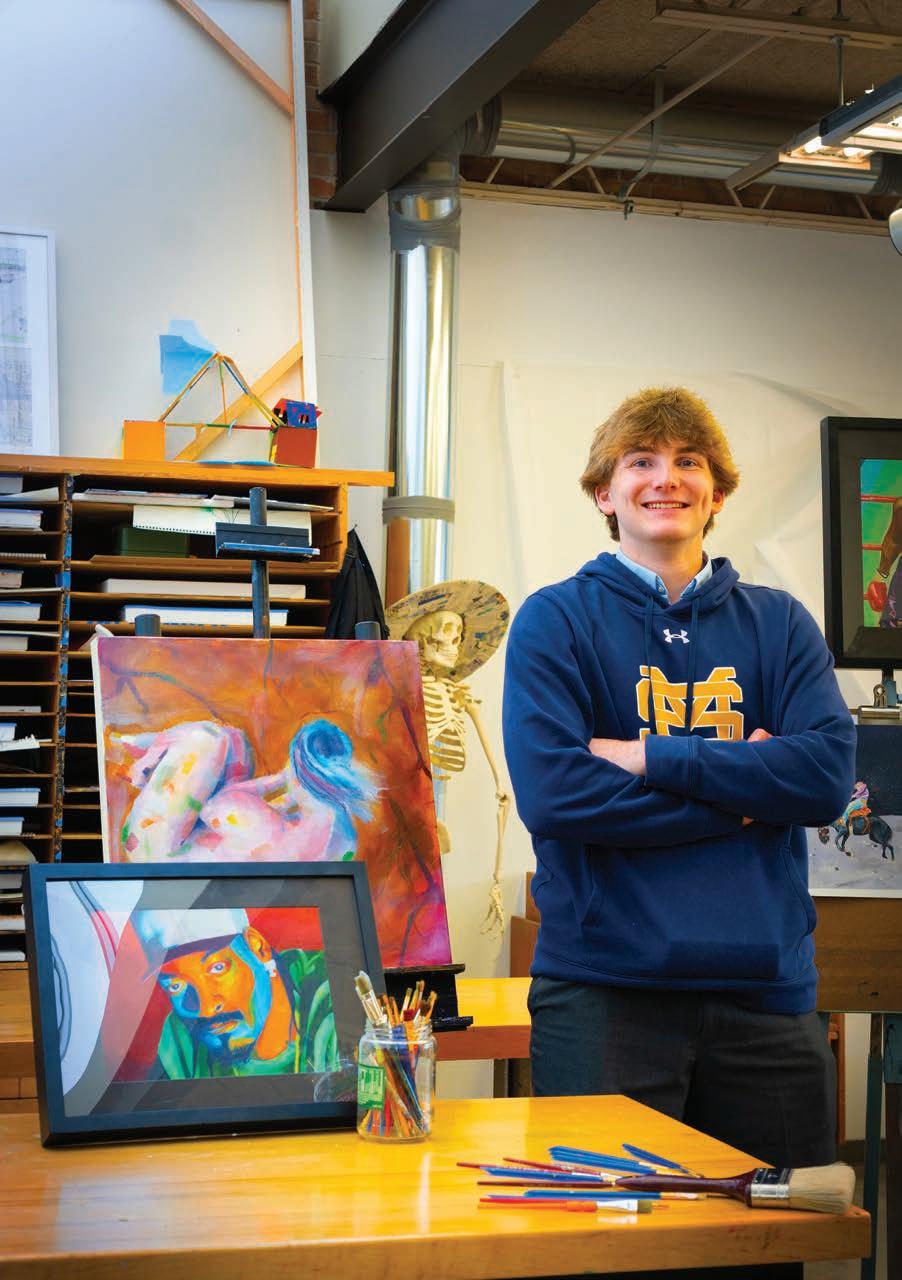
Art by Holden Browning ’24
rough Browning’s long and impressive career as an artist at St. Mark’s, he has experimented with many di erent color styles and mediums. ese works showcase his versatility and outstanding ability as an artist, as they feature real-life subjects like Mike Tyson and Snoop Dogg in addition to more abstract concepts, such as his “Space Cowboy.”
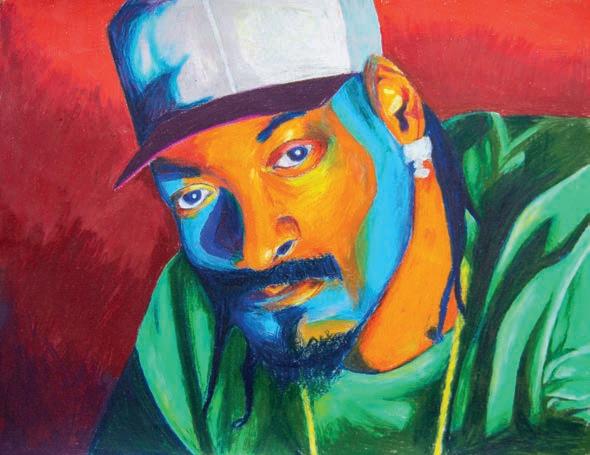
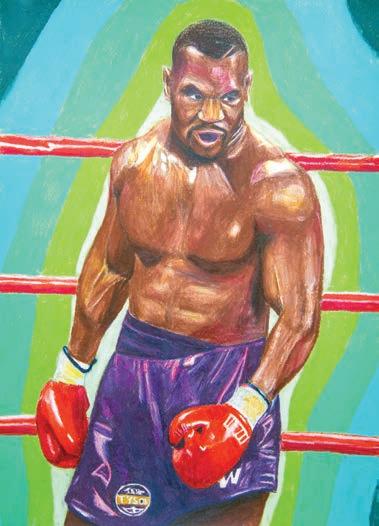
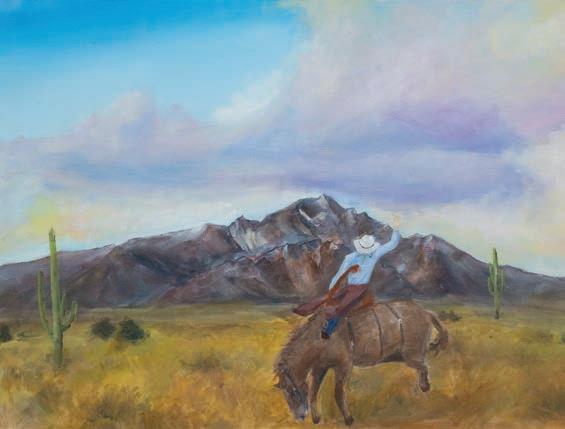
“The Cowboy”
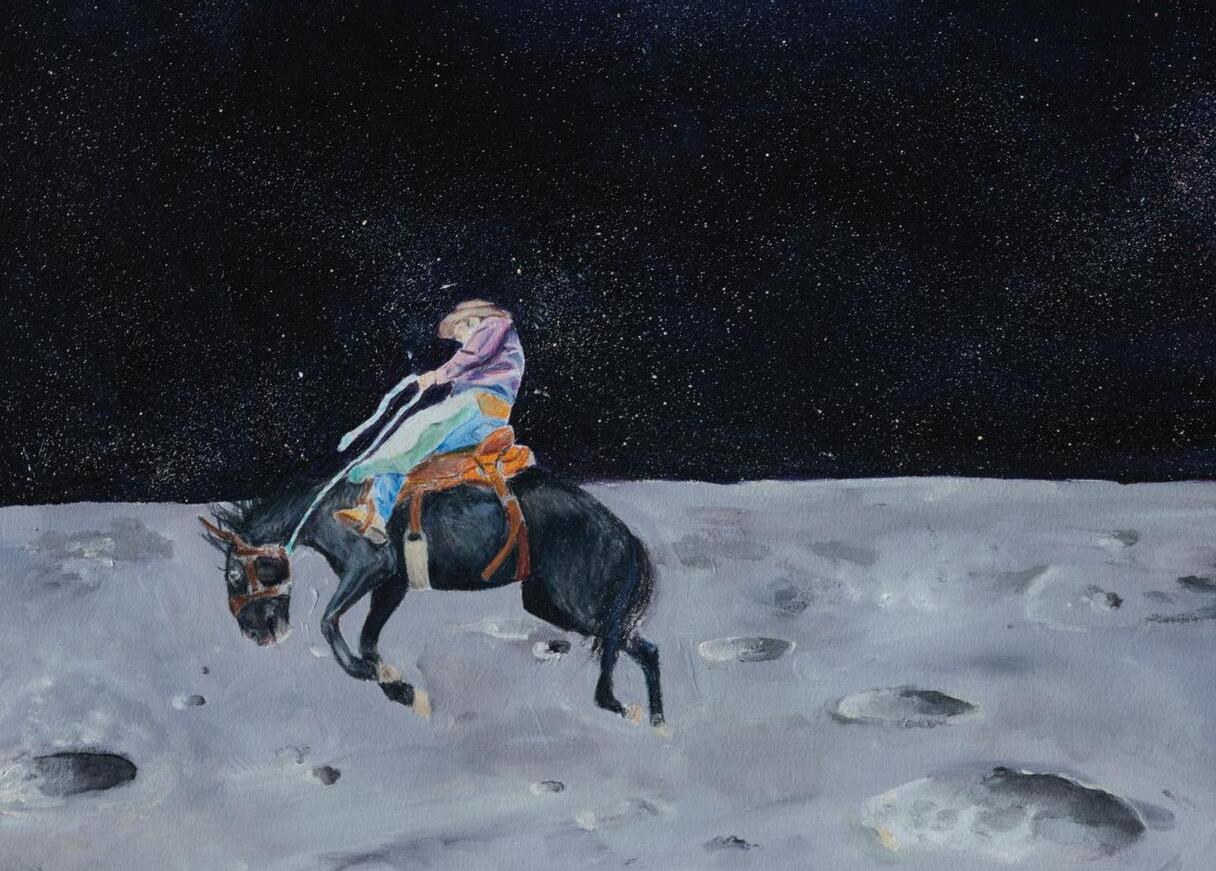


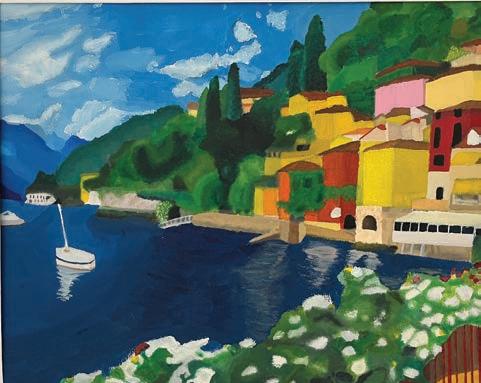



“Duel of the Emperors” Carson Bosita ’25
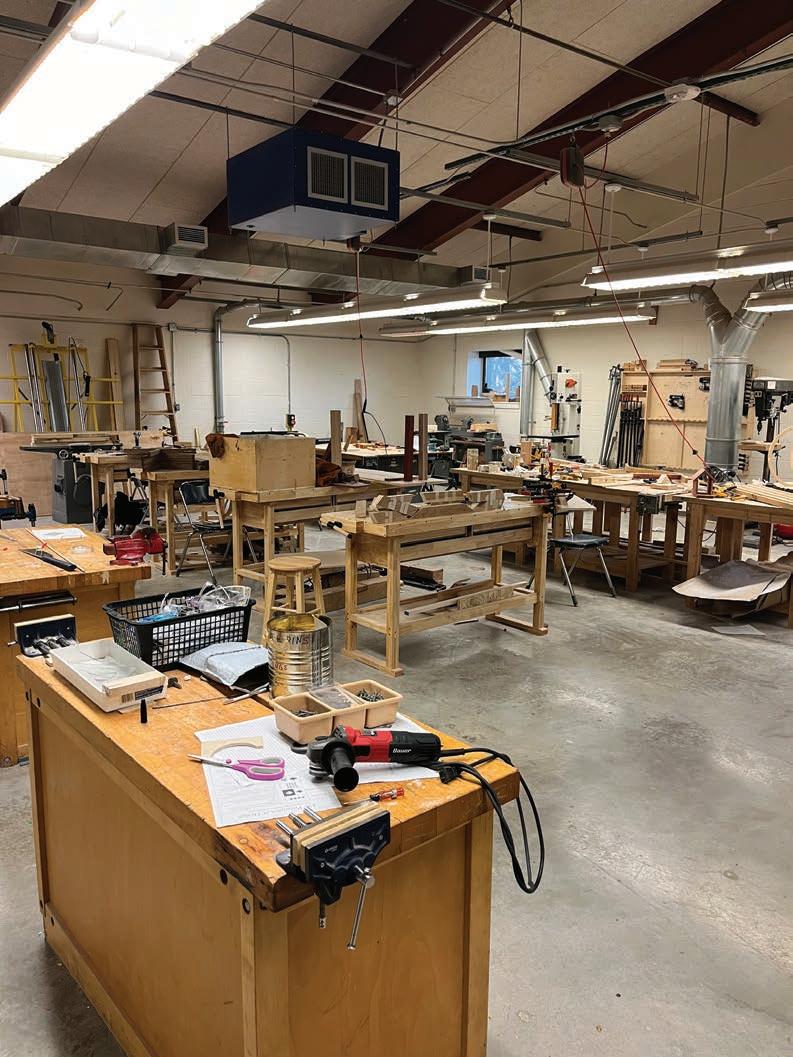

“Upli ment”
Henry Hoak ’24
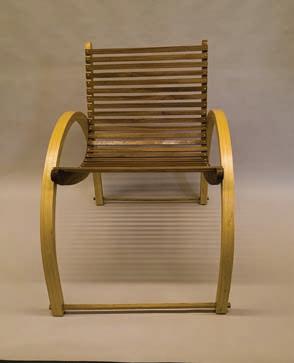
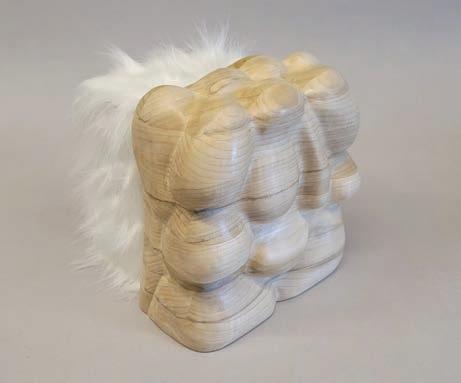
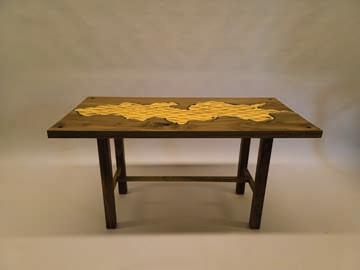

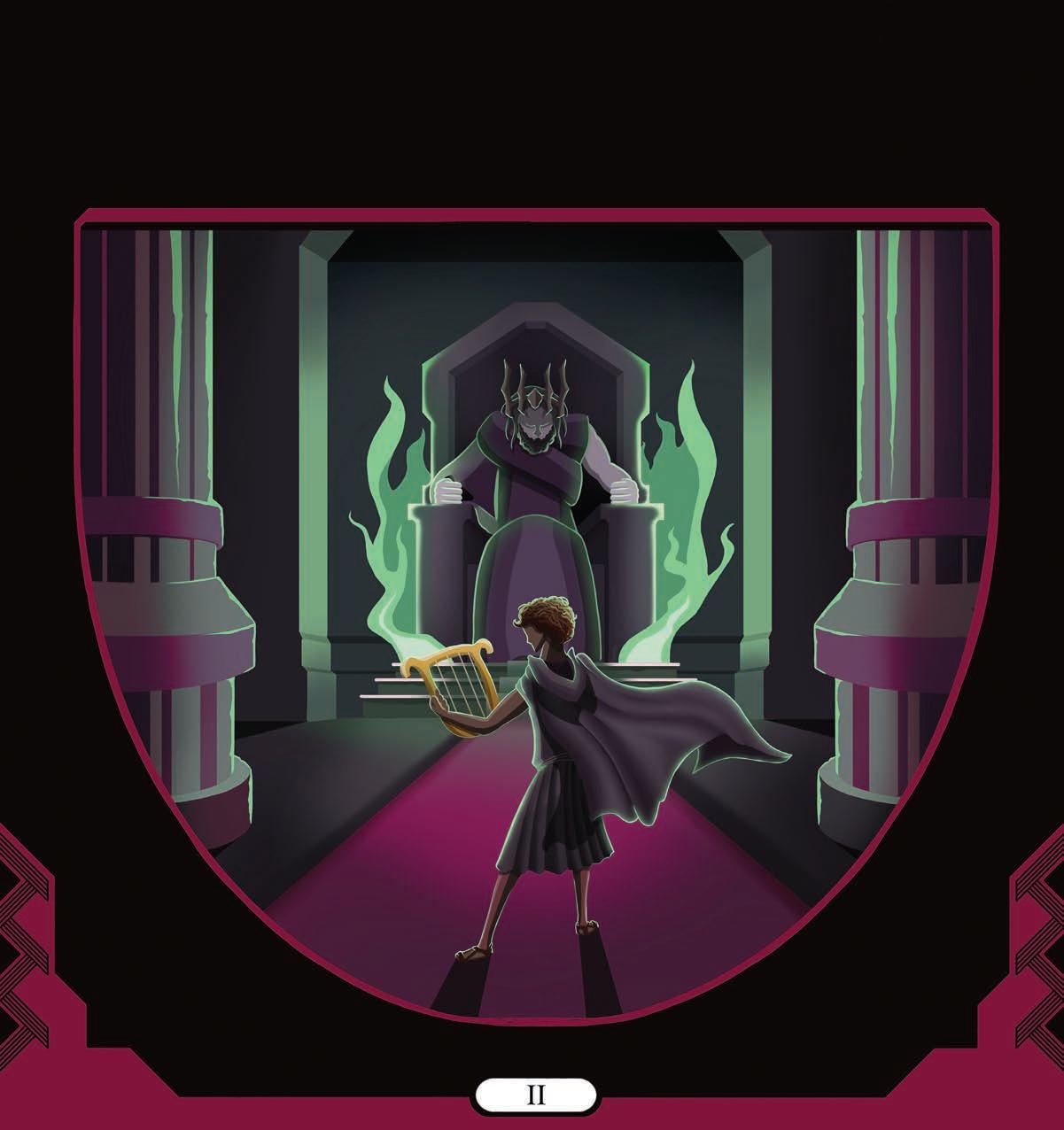

Exposed to the wrath of the Underworld, Orpheus was a man amongst gods. His plight was particularly painful because of the impossibility of his task: to go to the Underworld, retrieve his wife, and return.
With no other options, Orpheus turned to his true skill and passion: his lyre. He used his unique and masterful playing of the instrument to secure his and his wife’s freedom from hell.
Instead of folding in the face of adversity, Orpheus was resourceful and brilliant, using what he had and what he knew to win the day.
Orpheus teaches us here that when we are stuck in a tough situation, we must also keep our heads about us as we work towards our goal.
As Orpheus fought through the trials of the Underworld, he was a man triumphant.
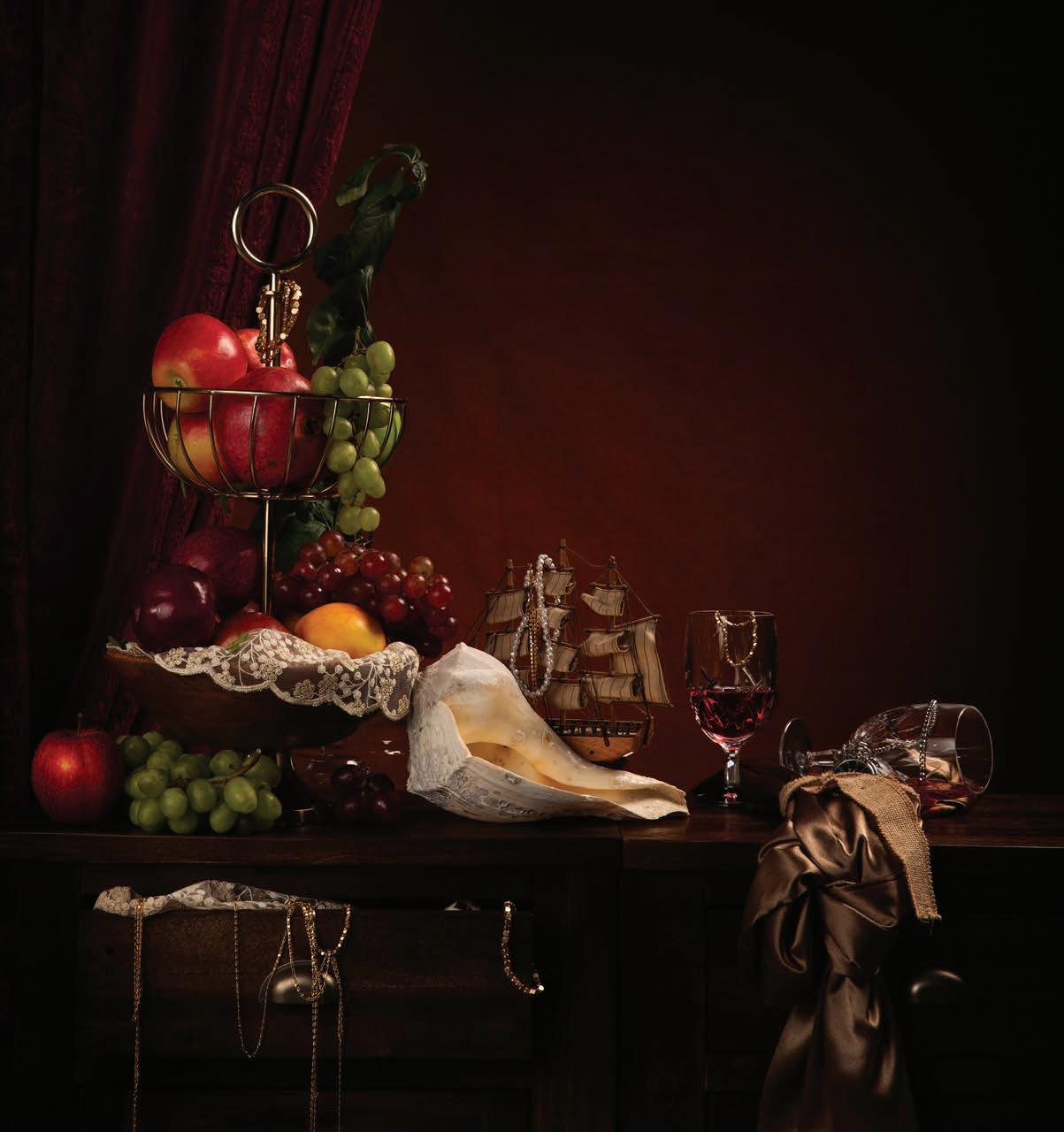
By Miller Wendorf ’24
Don’t think. Just run. Marcus heard the steady rhythm of his boots on the wet leaves, painfully striving to increase the tempo. Faster. Branches of dead trees brushed across his cold, sweaty face. His skin stung where the wind-blown branches made small cuts, but that pain was nothing compared to that in his legs, which were moving faster than they ever had in his life. Every muscle in his body screamed at him to stop, to turn back and surrender himself to the soldiers searching for him. I can’t, his mind screamed back. I’ve made my choice. ere’s no going back now.
He’d been running through the same muddy, withered, tree-ridden terrain that made up the war-torn French countryside for what felt like hours. All he carried with him was what he had on: his British army uniform, complete with a patch that read: Corporal Marcus Lawrence. He knew he should have brought supplies, but his desertion was a spur-of-themoment decision, not a premeditated a air. He honestly didn’t care where he was going, so long as it was as far away from the trenches as possible.
against a tree. As he got his breathing under control, he listened for the dogs, the shouts. Nothing. I must’ve lost them, he thought.
His breathing back to normal, Marcus wiped his eyes and looked around. I must’ve been running longer than I thought. e rays of sun that managed to pierce through the ceiling of leaves continued to trickle down to the forest oor like a soft spire of light, delicately illuminating Marcus’ surroundings. All around, the shouts of soldiers, the barking of dogs, and the distant booming of shells was replaced by the tranquil sounds of nature: leaves rustling, birds chirping, ies buzzing.
Marcus kept running until he couldn’t perceive his surroundings anymore.
Marcus kept running until he couldn’t perceive his surroundings anymore. Until all he could feel was pain, all he could see was the blood and sweat that stung his eyes, and all he could hear was his own heavy breath.
Suddenly Marcus felt a great bludgeoning force, and he realized he had tripped and fallen. Still hyperventilating, he clambered back to his feet and leaned
He suddenly noticed something hanging from the trees. Wait; there’s no way these could be… Apple trees! I’m in an orchard! Marcus couldn’t believe his luck.
Beautiful, lush apple trees growing within a few hours’ run of the front. He excitedly grabbed an apple from a tree and was moving to take a bite when he heard the crunch of leaves behind him. He turned around and dropped the apple in surprise.
A woman had walked into view carrying a basket of apples. She wore a simple white gown and was extremely beautiful in the soft sunlight. Marcus hadn’t seen a woman in months and was completely frozen by the sight of someone so beautiful, so pure. He stared in awe as she picked apples from a nearby tree and delicately placed them in her basket.
She didn’t seem to notice Marcus. Who else will I
A woman had walked into view carrying a basket of apples. She wore a simple white gown and was extremely beautiful in the so sunlight.
be able to get help from? he thought. She might be the only person I see for days. He cleared his throat and said, “Uh… excuse me, ma’am…” He could hardly get any words out, he was so enthralled.
She turned to face him and gave him a sweet smile. Marcus was enchanted. en, to Marcus’ surprise, she turned and started running away, letting out an angelic laugh.
Marcus snapped out of his trance. “Wait; who are you?” he called. When she kept running without response, Marcus began running to catch up with her. For several minutes, he chased the woman through the forest, occasionally calling out to her but never getting a response. Marcus watched as she walked into a clearing up ahead and continued following her. When he reached the edge of the clearing, he couldn’t believe his eyes. e forest parted to reveal a manor house. Not a modern manor house, but a medieval one, with gothic spires and hanging gargoyles. People wearing simple white robes like the one the woman wore performed various tasks around the manor, like tending to the gardens or cleaning the beautiful stained-glass windows. e woman he had followed was nowhere to be seen.
“Sir?” Marcus spun around to see a man in a chain mail shirt and hood, wielding a spear and a buckler. Medieval soldiers’ wear. “Lord Ambrose requires your presence,” the guard said.
“…Lord… Lord Ambrose?”
“Lord Ambrose. He requires your presence immediately. He doesn’t know you’re here, of course, but you’re not the rst stranger to stumble upon his lands. Follow me.” He sti y turned away and began walking around the manor.
A lord runs this manor. is… medieval manor,
Marcus thought as he followed the guard. is is unbelievable. It’s like this place just froze in time.
Behind the manor, an enormous banquet table was set with a feast containing various fruits, vegetables, and a giant pork roast. A host of men wearing medieval noble nery—several layers of linens and furs—quietly sat at the table. At the head of the table sat a middleaged, heavy-set, bearded man who wore a golden crown and a ne velvet cloak, who was dining while the others politely watched him, motionless. e lord eats rst, Marcus thought. Standing behind the lord’s seat was a rather ghastly looking gure in patterned red and white garments with a bell-adorned hat resting atop his pale bald head. e lord’s fool. e fool made eye contact with Marcus, ashed a toothy smile, and made a cryptic gesture. Something about the fool unnerved him.
After a couple of minutes, the lord delicately removed a handkerchief from his shirt, dabbed his lips, and said in a low bass voice: “You may begin.” e other nobles launched into their meal.
It was then that the guard cleared his throat. “My lord.”
Lord Ambrose looked up from his food at Marcus and the guard. All of a sudden Marcus felt very silly in his army uniform amongst these people in medieval nery. Even the guard’s chain mail had a certain polished, distinguished quality that Marcus’ brown, mud-covered uniform lacked. I must look ridiculous to them, he thought; but Lord Ambrose seemed unfazed, even giving Marcus a small smile. “Another guest, eh?”
“Yes, my lord,” the guard said. “He came by just a few minutes ago.”
“Very good, Captain. You are dismissed.” e guard bowed. “My lord,” he said, before marching
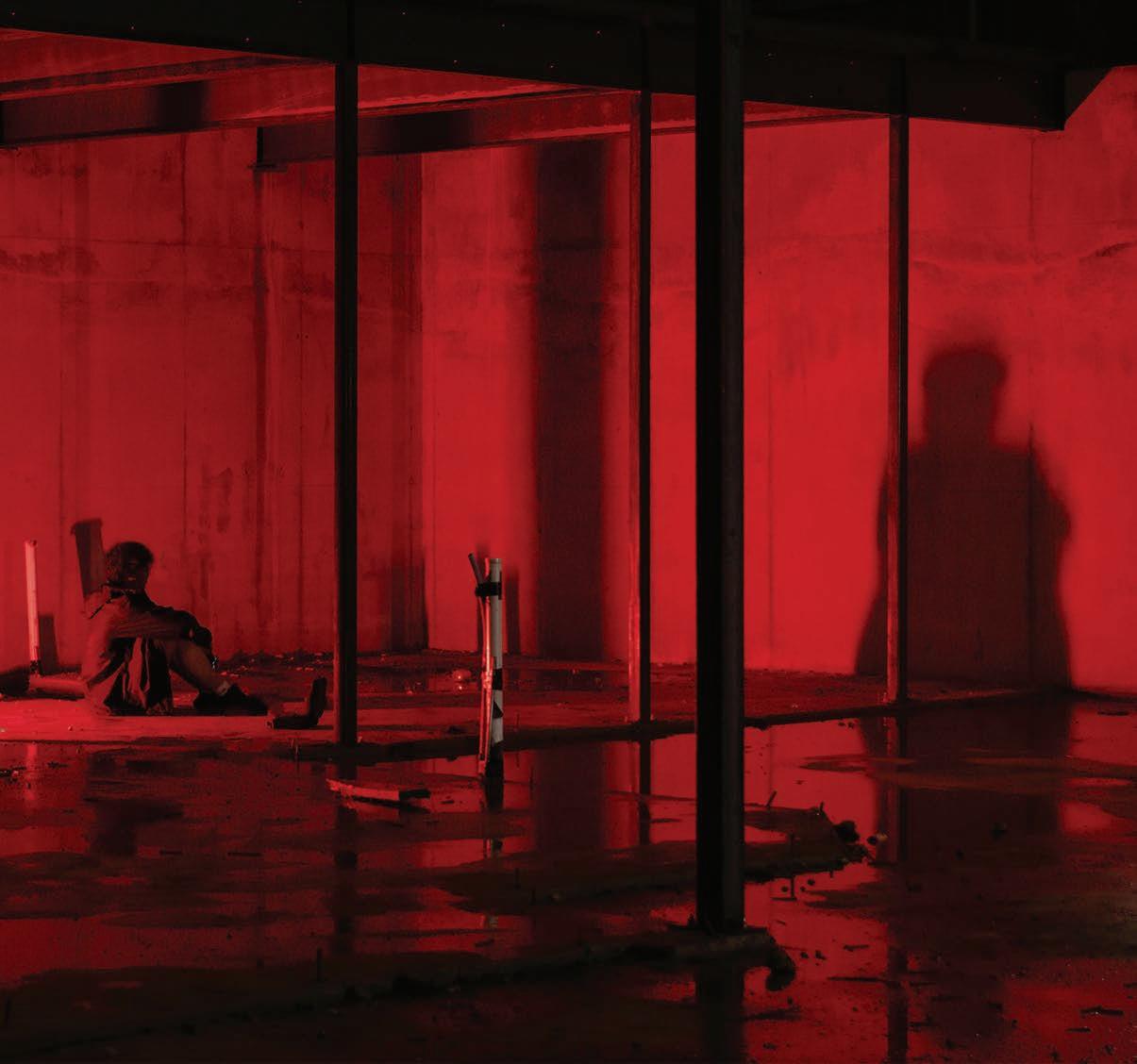
“Seeing Red” | Drew Wallace ’26
back around to the front of the manor.
In the elds beyond the manor house, he could see that some of the peasants had broken for lunch—some alone, others with their families.
“ is is… this is unbelievable,” Marcus exclaimed.
Lord Ambrose exchanged smiles with the other nobles at the table. “It’s a simple life.”
“No, but… how is this possible?” Marcus struggled to articulate his thoughts. “How have you maintained this… this existence”—he gestured vaguely to his surroundings—”when all around you things are… well… so di erent?”
Lord Ambrose smiled again, and shared a look with the fool, who grinned again. What is it with that grin? Something—everything—was wrong about it, but Marcus couldn’t tell why.
Marcus stopped staring at the fool as Lord Ambrose spoke. “You’re called… Marcus Lawrence, yes?” he said, squinting to see the name on his uniform.
Marcus nodded.
e woman seemed to be patting the ground. He cautiously approached.
“Excuse me; I think I’m lost,” Marcus said, but there was no response. Her hands continued working at the ground. She’s planting another apple tree, he realized. But what was that in the soil? It couldn’t be… “Wait, no… no…”
e woman stood up and stepped to the side, revealing the tiny apple tree sprout. But the sprout was not planted in soil, but in a mound of dead bodies crushed into the earth, bloody limbs intertwined.
Marcus looked up and saw that the beautiful woman was now staring directly at him. In her hands was one of the apples from her basket, with a bite taken out of it—but out of the apple owed not juice, but blood. at same blood caked her lips and teeth as she let out a endish cackle.
All of a sudden, Marcus felt very silly in his army uniform amongst these people in medieval finery.
“Follow me, Mr. Lawrence. I have something to show you.” With big, regal strides, he started walking away from the feast towards the edge of the clearing. e other nobles resumed polite conversation as Marcus jogged to catch up with Lord Ambrose.
After a few minutes of walking, Lord Ambrose motioned for Marcus to stop and pointed directly ahead of them.
Marcus exclaimed: “How have you kept up an orchard this beautiful—” He spun around. Lord Ambrose was gone. He was completely alone in the orchard with the woman, her back still turned to him.
Marcus collapsed to the ground.
Agnus Dei. e syllables ran through Marcus’ head.
Agnus Dei.
Latin. He was thinking in Latin.
“Agnus Dei.”
Wait, what? ese thoughts didn’t seem right.
“Agnus Dei. Agnus Dei.”
Marcus suddenly realized the Latin wasn’t thoughts.
“Agnus Dei. Agnus Dei! Agnus Dei!”
It was a chant. Being recited by hundreds of voices in unison.
e realization spurred Marcus to action, and he opened his eyes. He found himself completely naked, tied to the edge of an enormous stone balcony on the manor house. It was the dark of night, but moonlight illuminated
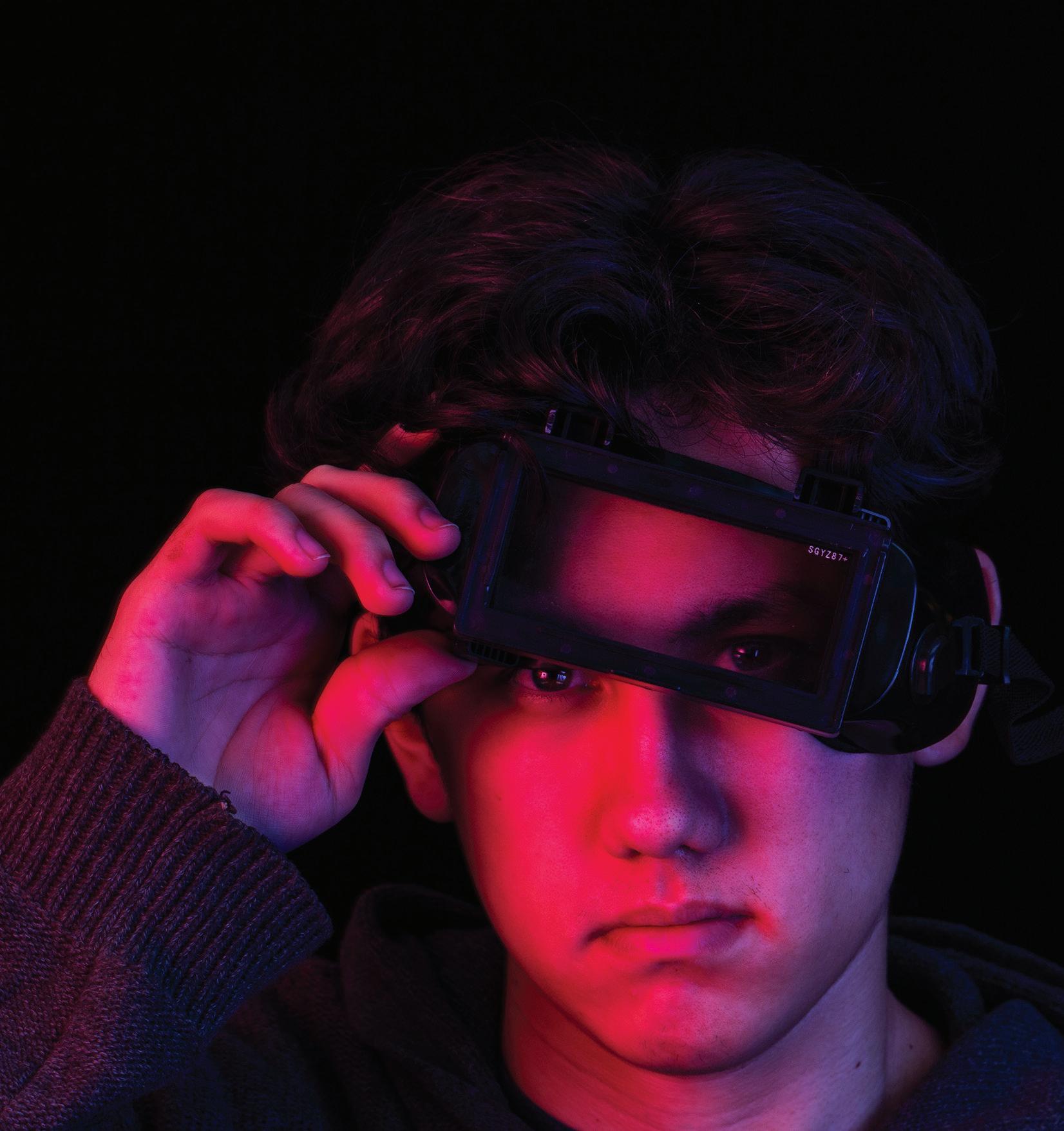
a crowd of the white-clad peasants, so peaceful in their elds earlier, fanned out in a crowd below the balcony, excitedly banging their farming implements against the ground and chanting:
“Agnus Dei! Agnus Dei! Agnus Dei!” e lamb of God. Marcus stared out at the crowd, speechless.
Marcus noticed movement behind him and turned his head to see Lord Ambrose emerging onto the balcony, closely followed by his fool. e fool was carrying a sharpened stone knife with engravings on the hilt. He looked at Marcus and ashed his unnatural smile again.
Amidst the chanting, Lord Ambrose walked up to the edge of the balcony where Marcus was tied and whispered in his ear, “You think yourself a learned man, do you not?”
Marcus nodded meekly.
“Every year, people like you learn more that was never meant to be learned. Meanwhile, we move further and further from God’s truth. We get further from Eden, from God’s holy place, every century.”
He placed his hand on Marcus’ bare shoulder. “You visitors sicken me. You all believe you have progressed, but you still sin, still ght in terrible wars. You distract yourself with new inventions that pull you ever away from as it was in the beginning.
“But we”—he gestured to the crowd of chanting peasants—“have found a way to overcome this. We have stopped the march of time. And thus, we are closer to God than anyone on earth. As I said, it is a simple life. A simple, holy life. But that life doesn’t come without a cost.”
Lord Ambrose took his hand o Marcus. “And now, you’ll do your part in maintaining our paradise. You’ll join the others in the orchard soon enough, of course. But for now, we must celebrate.” Lord Ambrose gave a nod to the fool.
e fool approached Marcus and deftly placed his knife on Marcus’ exposed wrist, before making a small cut. Marcus grunted in pain. Lord Ambrose
Marcus noticed movement behind him and turned his head to see Lord Ambrose emerging onto the balcony, closely followed by his fool.
quickly grabbed Marcus’ wrist from the fool and placed his mouth on the cut. Marcus could feel him sucking the blood gushing from the wound. e peasants below gradually ceased their chanting, their faces brimming with anticipation.
Finally, after what seemed like an eternity, Lord Ambrose let Marcus’ wrist drop. Turning his head to Lord Ambrose, he watched as the lord, just as he had done at the banquet table all that time ago, delicately took his handkerchief from his pocket, dabbed his bloodstained lips, and announced to the crowd in his low voice: “You may begin.”
In a ash, the fool swept the knife in a perfect arc along Marcus’ exposed chest, resulting in a gash running along his breast, perfectly uniform in depth. Overcome by the searing pain, Marcus screamed then, as blood poured from his chest and mouth in a steady dribble. To Marcus’ disbelief, the townsfolk surrounding the balcony leapt forward to get under the stream of blood. Red stains appeared on their white clothes as they desperately tried to catch Marcus’ blood in their hands, before lapping it up like messy toddlers.
Marcus laid his head down in exhaustion as the fool made another gash across his chest. is time he didn’t scream—he was too weak from the blinding pain. No more was he a human; he was reduced to a mute, submissive animal.
e peasants continued gorging on his blood. More slashes came, but Marcus hardly noticed. All that was left of what he could perceive was numb pain and the incoherent sounds of the mob.
And then he perceived something else: a high-pitched scream coming from the sky. Finding a second wind of strength, Marcus strained his tired neck and looked up. e sound was familiar. Straining his eyes, Marcus noted a ash of steel glinting in the moonlight—and then a deafening explosion that lit up the night sky as the belltower on the other side of the manor house collapsed,
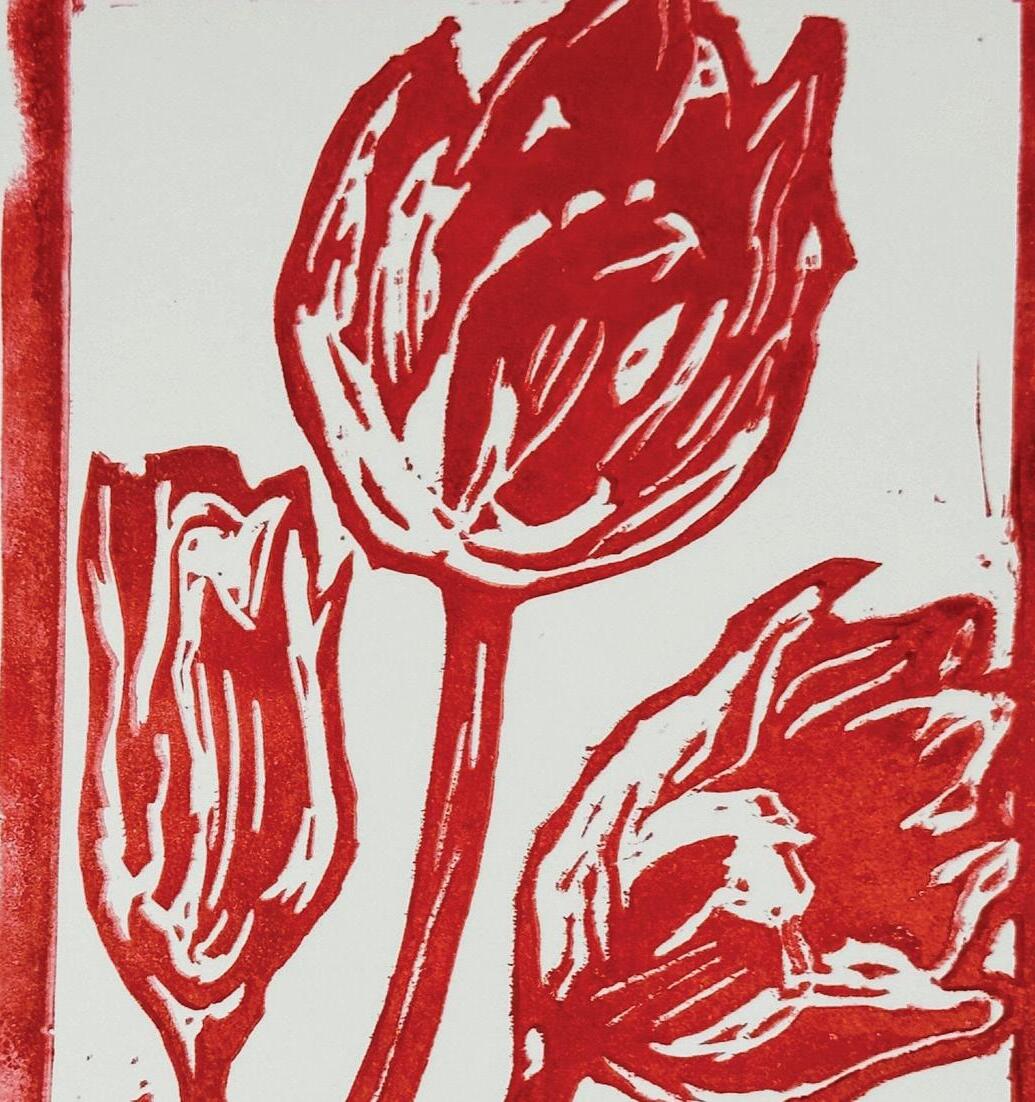
“Totality”

engulfed in smoke and ame.
A stray shell. Artillery from my battalion. A wave of memories of the front ooded through him, a whole world that had left his mind. Memories of shells, masks, bayonets, wire, of metal, chlorine, dirt, and mud. Memories that were the reason he’d run in the rst place but seemed insigni cant compared to his present su ering.
Marcus blinked. He couldn’t believe his own eyes. Everything in the manor was di erent now. e apple trees surrounding the clearing were dead, spindly stumps that bore no fruit. e manor was crumbling, ruined, decayed. e damage the stray shell had in icted on the belltower was insigni cant compared to the ruin caused by the gnawing sands of time.
A spell had been broken. Marcus now saw the manor for what it truly was.
Marcus’ blood, even as it ran out through their hollow ribcages like drizzle trickling down a window shutter. ey didn’t even notice the shell. Just like they haven’t noticed the ruin of the past millennium, Marcus thought. And suddenly, despite his weakness, Marcus’ lips twisted into a pitiful grin. He started laughing. It was a wretched, gurgling laugh owing to his lack of a tongue, but a laugh all the same.
Lord Ambrose’s rotting face contorted. “Why is he laughing? Shut him up!” Another slash of the knife, this time on his temple. Blood ran into his eyes, and he could feel consciousness receding. And yet he kept laughing. ey have no idea, he thought, as the next slash went across his throat. In a thousand years, they still won’t know. e last thing Marcus heard was the sound of his own laughter.
Finding a second wind of strength, Marcus strained his tired neck and looked up.
And the people? Filled with dread at what he would see, Marcus lowered his gaze to where the villagers were feasting on his blood. Before him was a legion of animated corpses. ey were the same peasants that had formed the crowd moments before, no doubt; they remained gleefully lapping up Marcus’ blood. But their simple white gowns were now yellowed and deteriorated with age, haphazardly clinging to their rotting bodies.
Lord Ambrose’ nery was worn with age: his cloak was threadbare, and his golden crown had been rendered a dull pewter. Where his face had been, Marcus saw only bones and rotting esh, no di erent from the crowd below them. Only the fool remained unchanged, his pale features the same as ever. e fool ashed his sickly grin, revealing long, sharp fangs caging a forked tongue.
e peasants’ and Lord Ambrose’s behavior remained unchanged. e legion of corpses continued to swallow
“ ose are his, all right,” Private First-Class Adrian Bradley said as he kneeled by a set of footprints. “Same boot size and all.”
“Good job, Soldier. We thought we’d lost him,” said Sergeant Henderson from above him.
Bradley looked up from the tracks to see Henderson anxiously looking at his watch. Next to him stood Private Richards, holding a leash connected to a bloodhound.
Sergeant Henderson shook his head at his watch. “I know that we only just now found his tracks, but there’s no way we’re nding Private Lawrence within the next hour. We have to report back to base camp by nightfall— captain’s orders.” He sighed and started back in the direction where they came.
Bradley stood up and had started to follow him when he noticed something out of the corner of his eye. “Wait— look!” he cried. Henderson and Richards spun around.
Ahead of them were three beautiful women in white gowns, picking apples.
By Nathan Aldis ’26
In shadows, Robert emerged, a word thief, Skills and deviousness unmatched, He stole Words and sentences without a catch rough unguarded halls and silent courts, He pilfered letters it was his T R E A T. Line by line his thievery wouldn’t stop, And soon whole paragraphs were naught but Periods and Commas.
Always uncaught none knew the words To convict him. No rumors, no talk no news, And none sought. e perfect crime, Was now his. Trouble was without e chitchat, People found no Way to connect. Not even Robert, King of Words. Poor Robert, lonely, so sad. He Began to send letters of letters from His stash. Upon inspection he Realized to his horror someone Had stolen his words
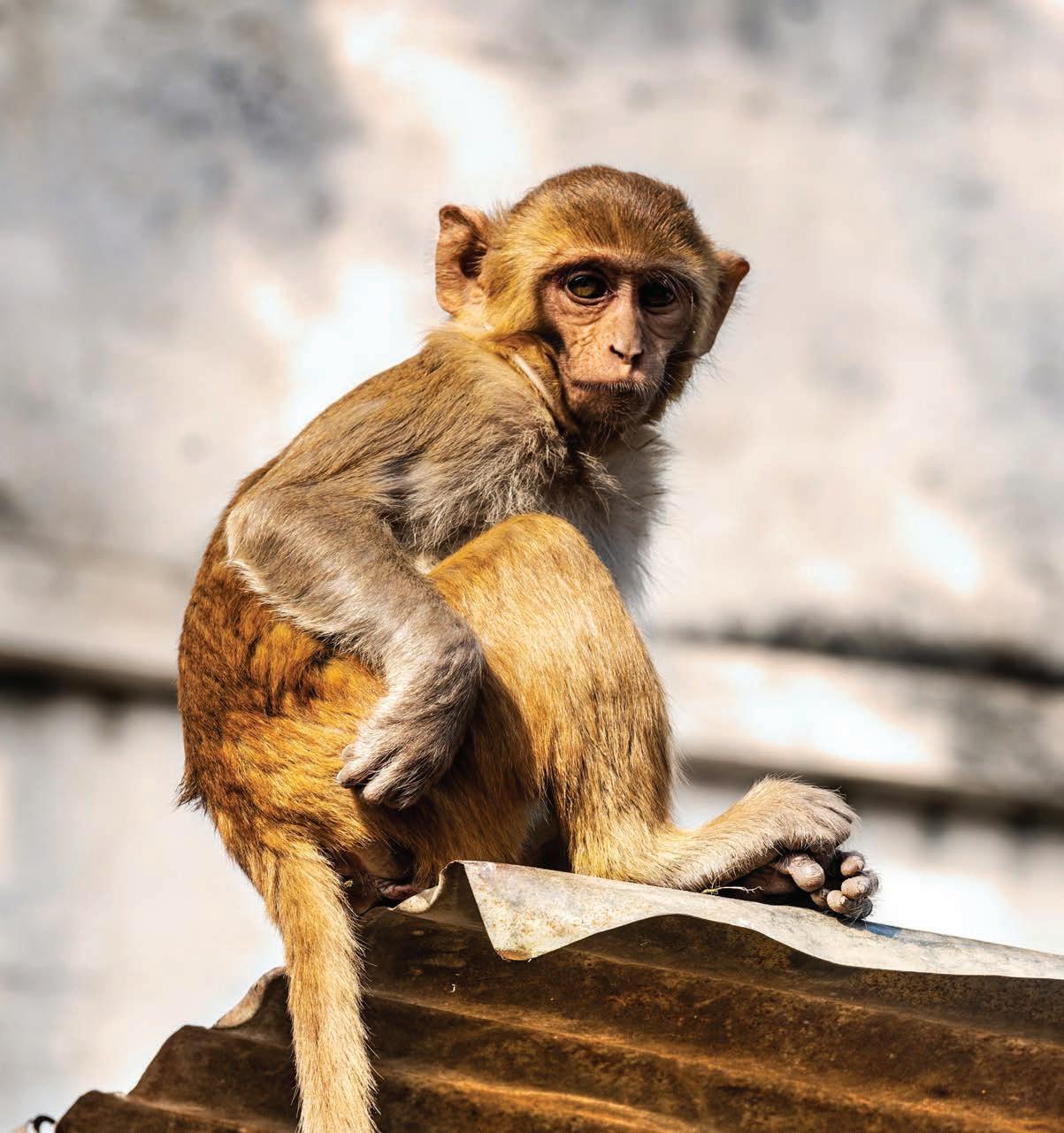


By Mitchell Galardi ’24
Ty wrestled himself out of the creamy Bog and with an ardent punch, Escaped the land. After this, a ower Emerged with a billowing smoke And a blue, icy dragon crest Adorning it. Ty, with a roll,
Freed his whole body. Observing his rolls Of a fat was a gure sliding with a creamy Consistency. Ty grabbed his ancestral crest And summoning that ancestral power, punched e mysterious leviathan so powerfully, smoke Pu ed from the creature’s vents. A ower
Of pain came down on Ty. His spaceship’s ower Insignia was visible to him over the green rolls Of hills. He wanted to escape this world and smoke With his buddies back on Earth. Maybe enjoy a creamy Soda. But a ght with a serpent alien was a punch He’d rather pull. All he could do now was lift his crest
And hope for the best. He needed motivation and his crest Gave him that. A reminder of his familial ower.
A reminder that he could overcome any obstacle with a punch. A reminder that the e orts of his ancestors would not roll Away with time. A reminder that they fought against the creamy Aliens that Ty is currently facing. A reminder that smoke
Is a symbol of holiness. ough he was bruised, the smoke
Steaming from the serpent alien added a crest
To the alien atmosphere that signi ed that the creamy Bog around him was a sacred area where his owers Were protected. e serpent slithered and with a roll, Enveloped the brave Ty. e serpent writhed around, the punch
From earlier aching it. e blood that spewed resembled punch
Spilling o a table. e next sight was the smoke
From the barrel as the roll
Of Ty’s sidearm pistols crest e blood-stained icy-blue ower
From the previous ght. e creamy
Serpent, with a punch from Ty, crashed into the creamy Bog. e roll of the approaching spacecrafts, adorning his crest
Meant that the smoke would clear, and Ty’s civilization would ower.
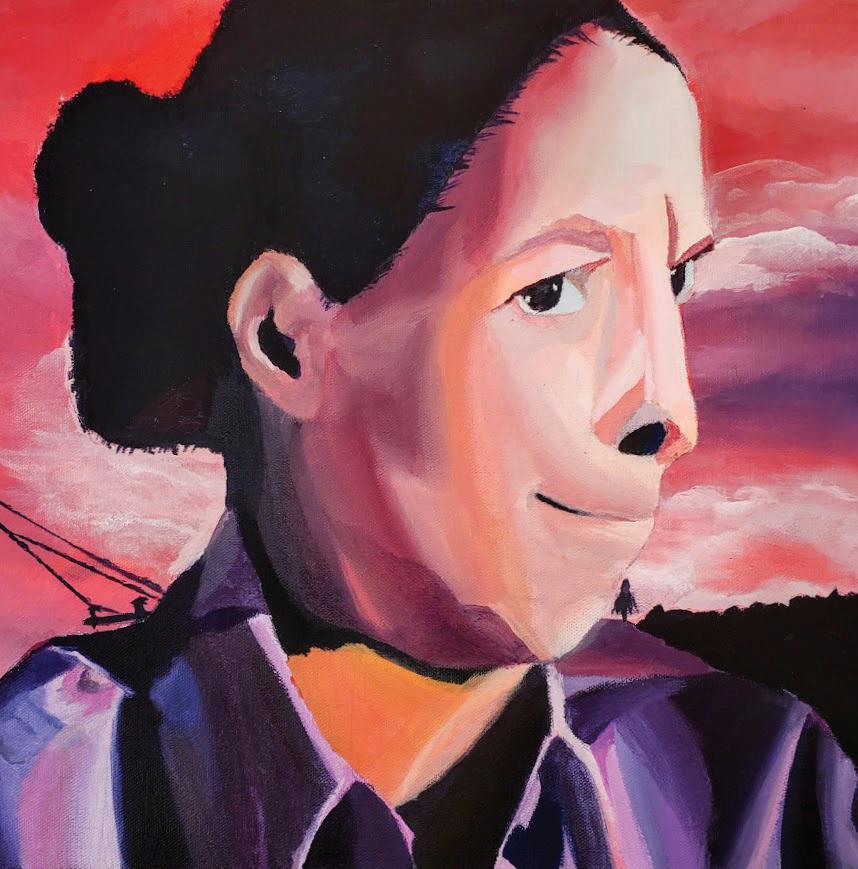
By Tyler Tang ’24
Iron shackles bind our wrists for our sins. Like Sisyphus, toiling up a great hill, With our dear Cowboys, many dreams are killed, Failures causing resentful emotion.
“Our year!”, screamed amid patience wearing thin As fans brave joy and heartbreak with strong will rough solid defense or o ensive thrill, ey reach East’s top two, standard position.
Playo s arrive for America’s Team, So eager, bold. A lesser team, vanquished. Round two: a better foe, to block the dream. e ght, erce; the silver helmets squeamish On seats and sidelines, running low on steam Before the Score shows sorrow and anguish.

By Michael Chang ’27
Spring
Flowers bloom, rain falls; e laughter of children rings Out in the distance.
Summer
e splash of water, Lemonade stands on sidewalks, e joys of the heat.
Autumn
A cool breeze whistles By my ear; leaves dance in air. Fall is here at last.
Winter
e wind howls, snow akes adrift amidst a great white Sea. e cold has come.
A New Beginning
Ice melting, little Spots of color sprouting here And there: signs of life.
Halloween
e neighborhood, now
A masquerade ball, buckets Loaded with candy. anksgiving ere is much to be Grateful for - love, warmth, comfort, And of course, turkey.
Christmas Trees in the windows
Of homes, quiet excitement; It’s a time of joy.


“Trapped” | Reed Sussman ‘24
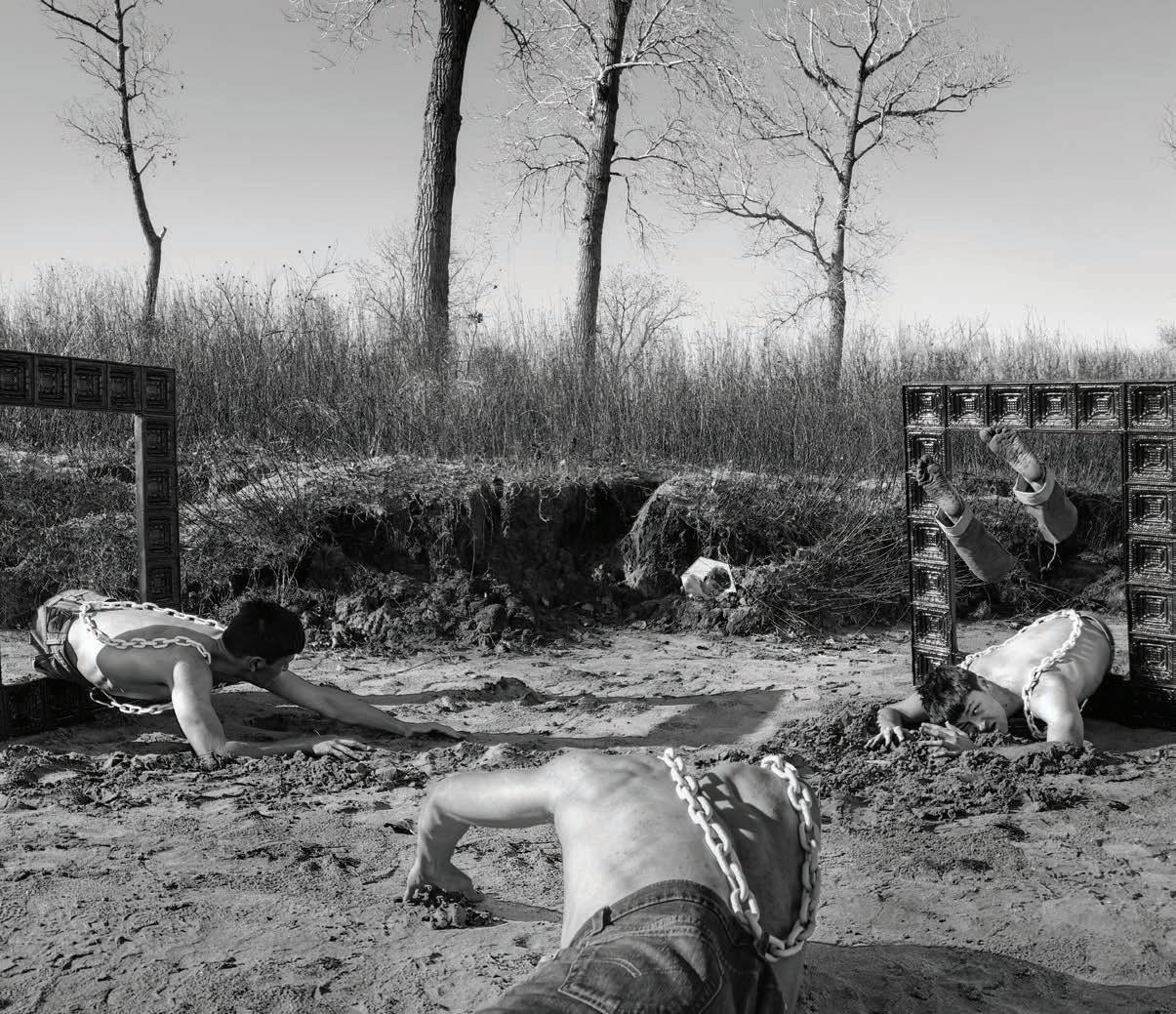
By Sanjay Bohil ‘26
Amigo, are you ready for the best adventure of your life?” asked Juan Miranda, a sleazy-looking man dressed in a fake Gucci shirt, Air Jordans, and Versace sunglasses. His yellow teeth adorned with gold made him look like a con artist, but innocent fourteen-year-old Rafael was taken in by him. Rafael was desperate to buy what Juan was selling–the American dream.
“Hermano, how much?” asked Rafael earnestly.
“Only twelve thousand dollars, Amigo, and you don’t have to pay now. I will lend you the money, and you pay me back when you earn your hundreds of dollars in the land of the free and the home of the brave.”
Rafael was hesitant, and he wanted to consult with his father before giving his entire life’s savings to Juan.
“It is a sweet deal, Amigo. I only have one spot left, and so many people have already asked to reserve the spot. I will even introduce you to my friend who is looking for someone to start on a job immediately. Do not delay. Just sign the papers, rápidamente,” urged Juan, and he handed Rafael the pen. Rafael signed the papers and held out his hand to seal the deal with Juan, who helped him hop into the truck.
“Cuidado! Peligro! Watch out! Danger!” e supervisor’s warning echoed through the opal mines like a war cry.
e supervisor stood on top of a hill and ailed his arms wildly over his head to grab the attention of the miners.
“Ay, Pedro, your son, Rafael is daydreaming again.
Warn him before he is killed,” shouted one of the miners, pointing to fourteen-year-old Rafael, who was pounding at the rocks with his headphones plugged into his ears.
e mine engineer commanded, “Sound the blasting horn! FIRE the dynamite!” BOOM, BOOM, BOOM! e colossal mountain shattered into little boulders that fell like raindrops over the mine. e miners held on to their hard hats and cowered behind a giant boulder in the distance.
e truck bounced along the unpaved dirt road, causing great discomfort to its passengers. Rafael tried to turn his head, but the hundreds of sweaty men around him had pinned him back to the wall of the truck. A wicked stench permeated the air, causing Rafael’s eyes to water. e heat was unbearable, and droplets of sweat drizzled down his body from his head down to his toes. e putrid smell of the men’s breath was making his head spin. He quickly closed his eyes, for he feared that he might pass out.
“Rafael! We still have an hour’s drive back to Guadalajara. Vamos! Let’s go! We are going to miss the truck. Your mother is going to be mad if we are late for dinner again,” shouted Rafael’s father, Pedro.
“All right,” said Rafael as he dropped his sledgehammer and packed up for the day.
He climbed onto the back of the truck with his father and two dozen other miners. He immediately put on the headphones that his brother had sent him from America, and started humming along to his favorite song, “Story
of My Life.” He looked over at Papá Pedro, who was also covered in rhyolite rock dust. His father looked weary and burdened as if he was condemned to hold up the heavens and sky for eternity like Atlas, while Rafael’s youthful eyes still shone with hope.
“Rafael, pay attention to your surroundings,” yelled Papá Pedro. “Hold onto the sides of the truck, or you are going to fall over the edge.”
Rafael nodded and held onto the side of the truck just to please his Papá because he knew that the truck was so jam packed that there was not an inch to move.
Unbearably intense pressure in Rafael’s bladder woke him up from his stupor. e stark realization that he had to relieve himself immediately dawned on him, and he was dangerously close to standing in a puddle of his own waste. Across from Rafael stood a middleaged man whose lips moved in silent prayer. Tears rolled down his cheeks as he looked skywards. e man looked like he had taken a dip in the Rio Grande, and his pathetic plight sent Rafael into a deep reverie about how he had ended up in this truck from hell.
of Guadalajara of the pure joy they feel when they watch me play, can I? at would be a cardinal sin,” said Rafael as he winked playfully at his grandfather.
His grandfather quickly hustled and scored a goal.
He roared with laughter and said, “Ra , this old man still has it, doesn’t he? Distracted you, didn’t I?”
Suddenly the truck stopped, and everyone lurched forward. Rafael felt like an elephant was sitting on his chest as the men piled on top of him, squishing him like a pancake. Rafael was su ocating, and he was gasping for breath. Years of carrying massive boulders had strengthened him, and he shoved the pile of men who had collapsed on top of him with full force. e passengers in the truck pounded the walls of the truck and begged to be let out. e truck started back up again and meandered on.
Rafael felt like an elephant was si ing on his chest as the men piled on top of him, squishing him like a pancake.
A young man screamed out aloud, “¡Jesús, mi Salvador, I’ll light a thousand candles if you deliver me from this hell to America!”
Rafael let out a sardonic laugh because he had paid a hefty sum, his savings, and his Papá Pedro’s life savings to journey in what this man just called hell!
“¡Abuelo, estar alerta! Heads up!” Rafael warned, right before he kicked the ball to his grandfather. ey always played fútbol together on Sundays.
“Great kick, Ra !” he exclaimed encouragingly. Abuelo’s long owing hair swayed from side to side as he hobbled after the ball.
“Abuelo, you are too slow. Come on, old man. Show me your youthful spirit,” said Rafael as he goaded his grandfather and tempted him to score a goal in their makeshift goal post, which was marked by piles of bricks on four corners.
“Ra , when are you going to stop playing sports and volunteer at the Church? I heard there is a pretty girl who just joined the youth volunteer group. Don’t you want to meet her?” asked his grandfather as he dribbled the ball.
“Ha-ha! fútbol is my one and only love, Abuelo. No pretty girl can distract me,” replied Rafael. “Playing sports is my gift to our community. I make people happy by displaying my killer skills! I cannot deprive the poor souls
“ e mine is shutting down, and Rafael and I do not have a job anymore, Carmen. I am very worried,” Papá Pedro lamented to his wife of forty-seven years.
“Don’t worry, Cariño. We have survived through challenging times before. We can ask Luis to send us more money from America, and I can sell churros at the mercado again,” said Carmen.
“Luis is still paying o his debt, Carmen. I think I will go to Mexico City to nd a job tomorrow,” Papá Pedro said in a voice marked by despair and frustration.
Rafael overheard his parents. A heavy sigh escaped him, and for the rst time, Rafael realized that his carefree days were over.
“Authorities in San Antonio were alerted to a horrendous scene on June 27. Sixty-four migrants from Mexico and Central America in a truck–many of them dead; some as young as fourteen years old!” announced the reporter of the evening news.
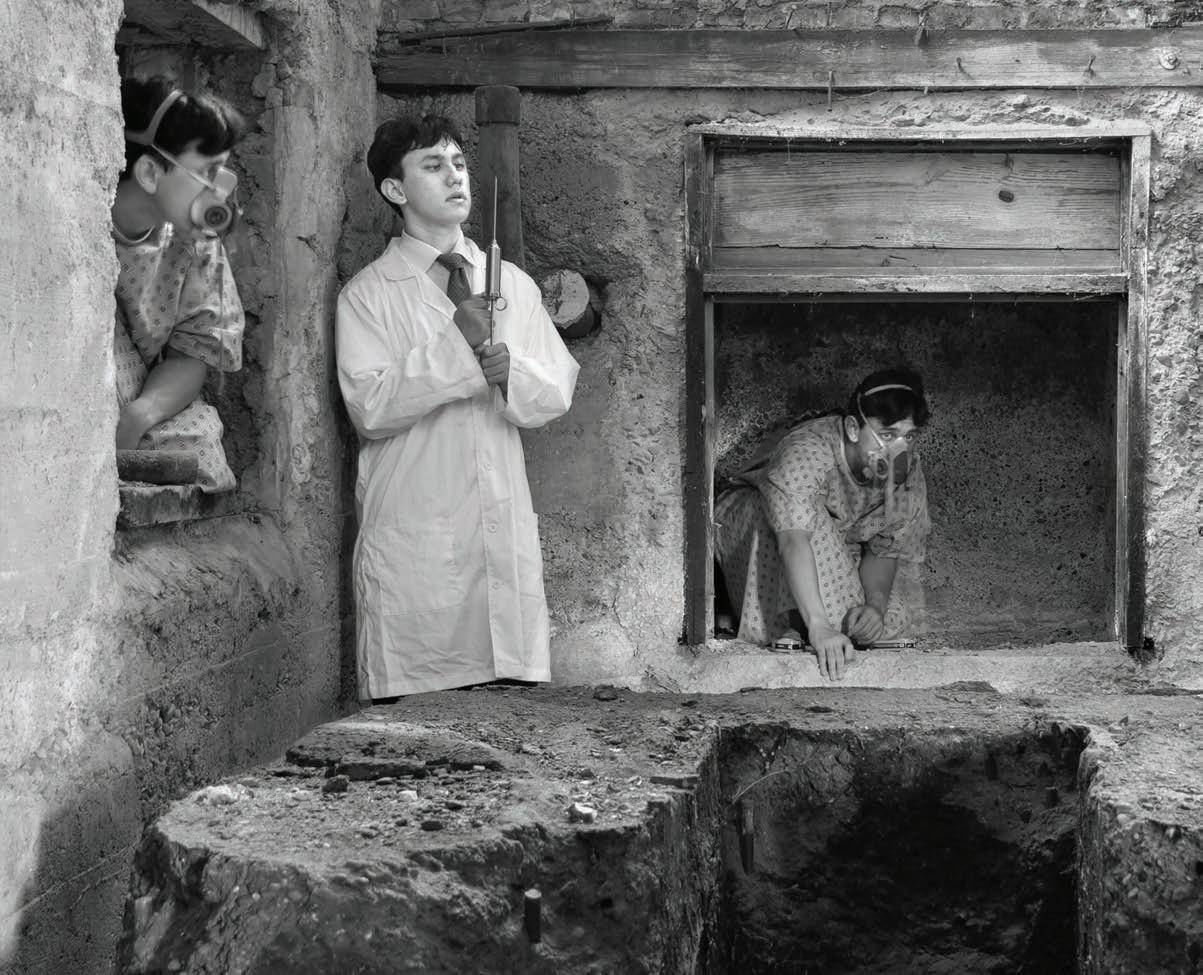
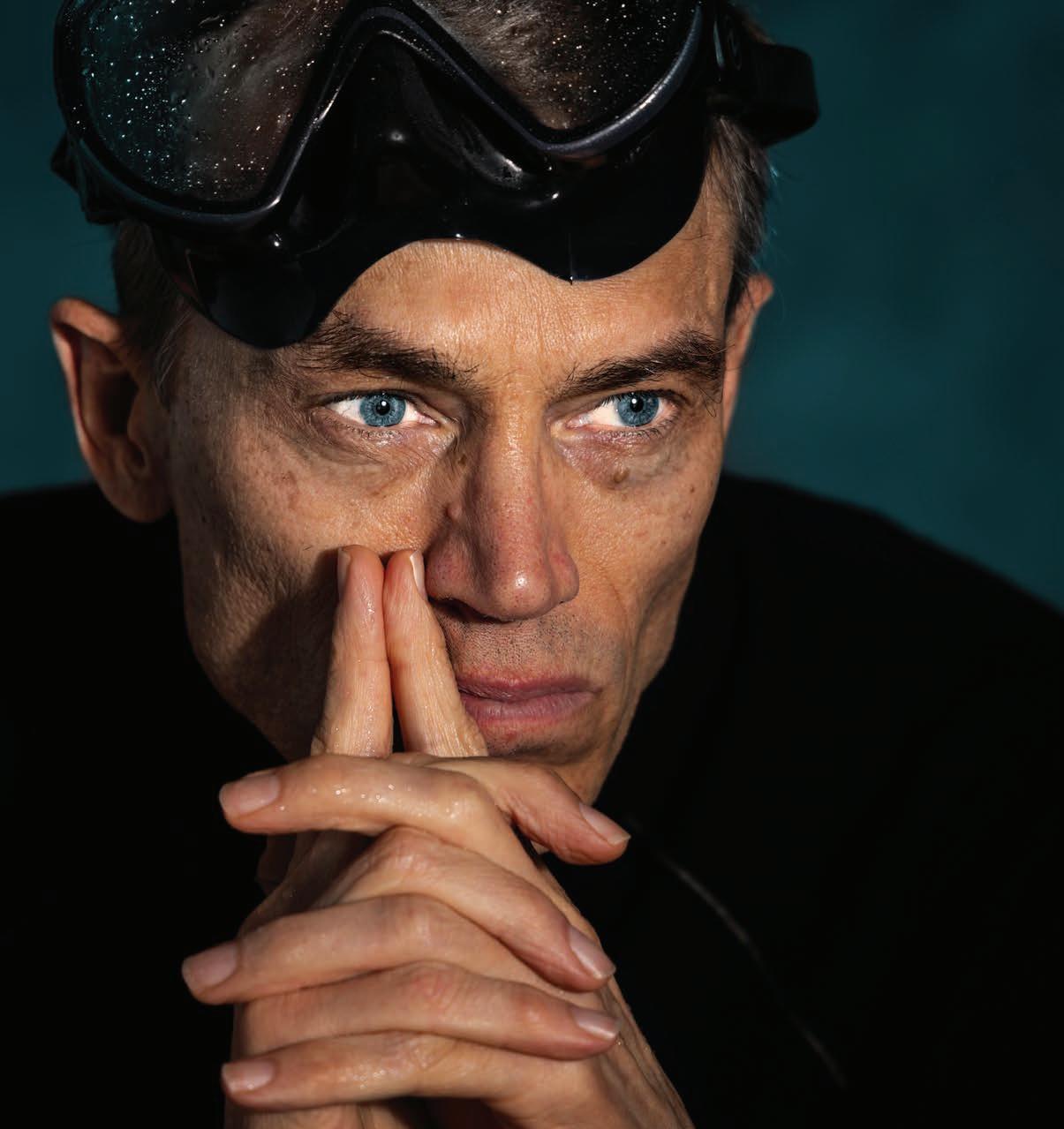
By Ethan Gao ’24
A nameless nobody, so innocent.
e children taunted him; his funny words
And slang cried he was di erent. But di erent
He’d be. A warrior so honored, birds
Would sing his name. Befouled by mud and blood,
e Little Corp’ral threw His Majesty
out of France! rough frozen peaks and sands misjudged,
His lightning and re seemed fantasy.
Vive la révolution! But a wreath
Of golden leaf he needed. Hand in coat
And volleys of smoke, in his gloved palms breathed
His Empire. But soon, the cold scythe would choke
e emperor’s dream. After seven wars
Victorious, he sits alone ashore.

By Hayden Meyers ’24
Patrons sit and watch and clap with delight. e story is told, seats are emptied, sta Files in hurriedly. Guests trudge to the night Toward the release of light, some with a laugh.
Screen fades to black: the tape starts to slow, Credits roll and curtains close leisurely. Walls echo a tale that once did ow In a dim theatre, lled so meagerly.
How melancholic to watch the ending
Of a lm. e life and emotions of Characters; screentime swift, eeting with a sting. Projector like lightning, bright from above.
e house lights turn on; brightness marks the end. White letters scroll across the screen reading: Fin
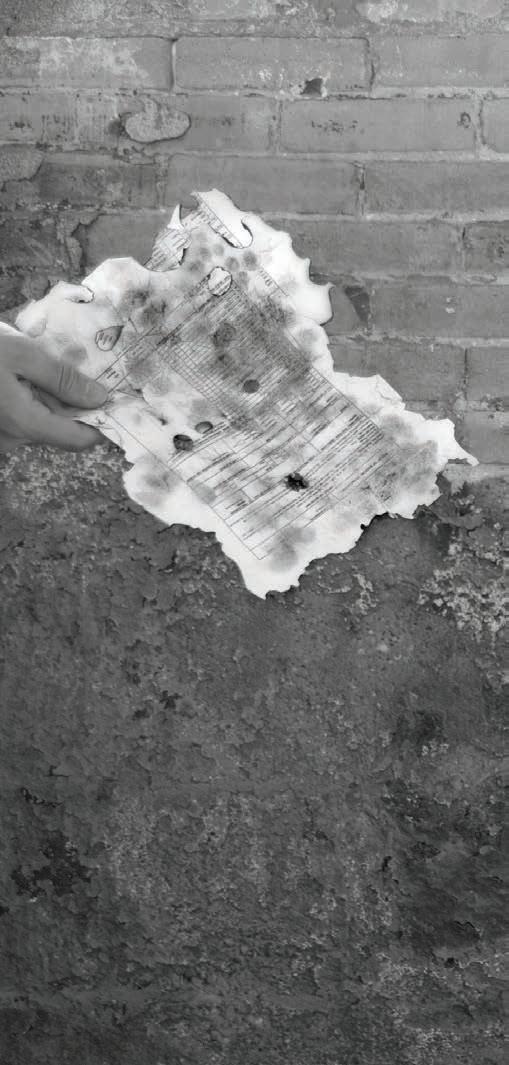
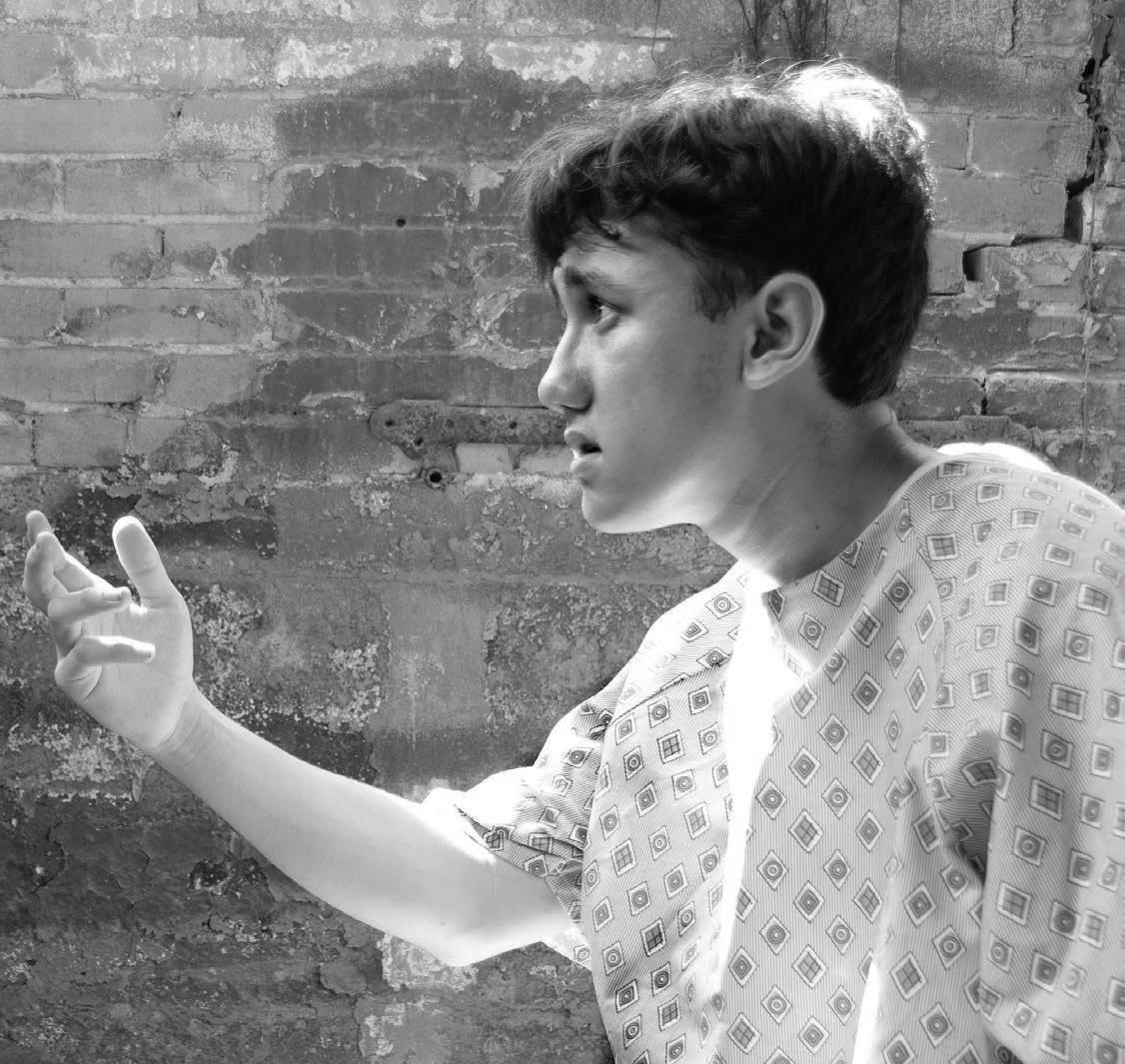
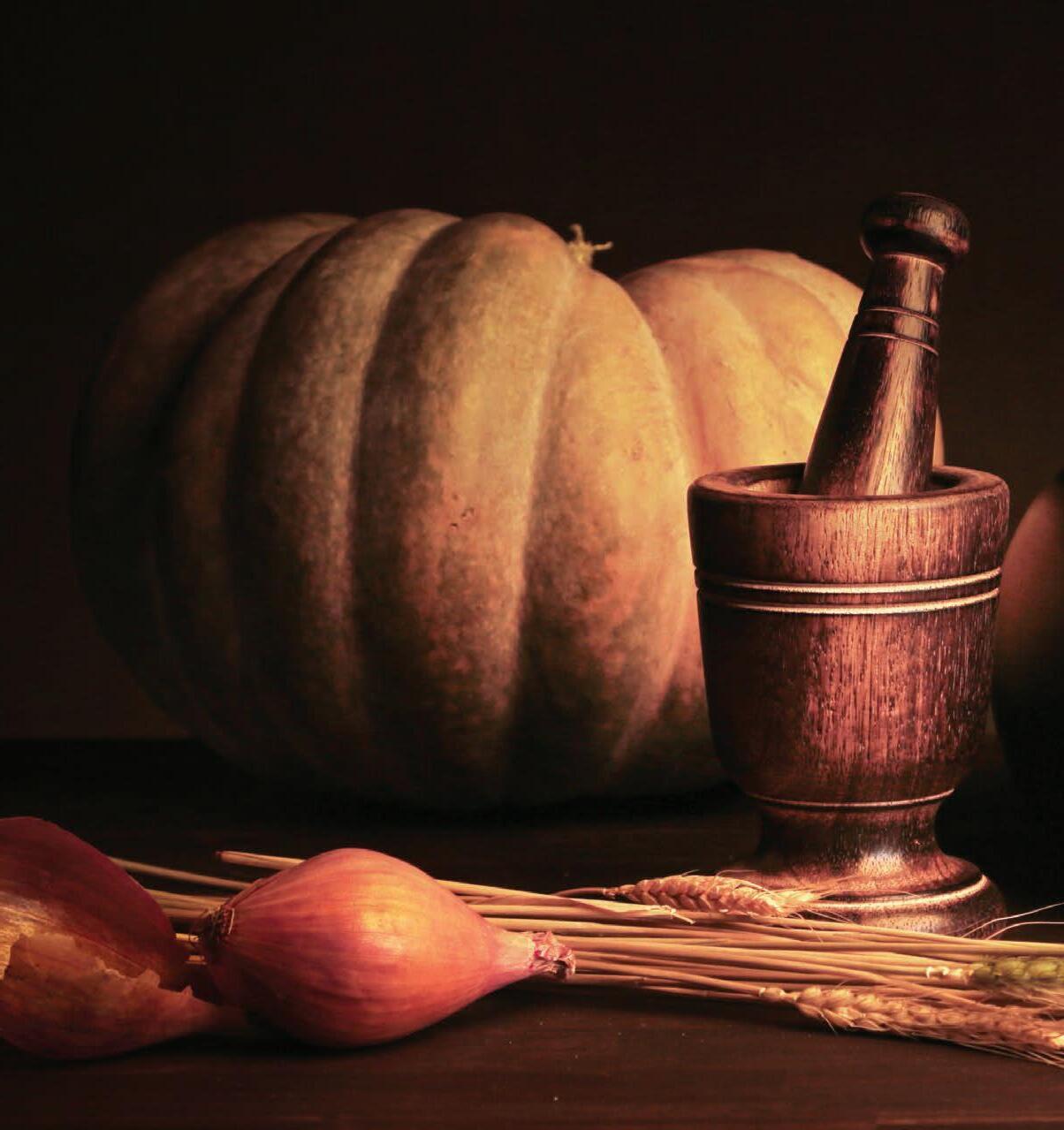
“Lighting Emulation” | Jacob Lobdell ’25

By Ashrit Manduva ’24
Upon the eve when twilight drops its veil, A night of magic weaves its tales so tight. e shadows dance while ghostly gures sail With jack-o'-lanterns’ eerie, haunting light.
e air is thick with age-old tales and chants. In corners lie the lurking phantoms; up Above, the spirits rise, their haunted rants Flow to the moon, so silvery and dun.
Young children walk, unready now to bear e ghoulish cries; their footsteps skip and dance. In search of sweets, their laughter rings as clear As haunted bells. Lit darkly, they advance.
On Halloween, beneath the moon’s soft light, Both spirits and the living merge at night.
by Zack Goforth ‘24
As customary on September 5, the Piston Cup was underway.
All schools were closed, supermarkets and salons alike shut their doors, and everybody was either glued to a television or sitting in the stands. It was basically a national holiday.
But like a billion-dollar jackpot, it was an opportunity he could not resist. Dr. Benz was a human, and as far as he knew, he was the last of his kind. Ever since they had developed minds of their own, he had tried and failed and tried and failed to escape, scraping out a meager existence on whatever food sources remained from a world no longer present, a world he had created — a world before them.
But this time was di erent; yes, he would make it out this time. ey were all occupied with the Piston Cup, which seemed to be their twisted version of the Super Bowl, and he had recently picked up a signal from an unused escape pod. If the pod could broadcast its location, there was a good chance it would work, or at least be something he could work with. He was an engineer, after all, and he was the genius behind them. He could never forgive himself.
Moving through tight alleyways — through which
they could not possibly t — and quietly shu ing through thick, overgrown greenery — it would be some time before they mastered gardening — he methodically rushed to the marked location like a pirate on a treasure hunt. e streets were empty, and nobody was paying attention to anything other than the big race.
He passed by a house. He stepped on a stick. His heart seemed to stop.
Inside, the family stayed parked in front of the television, seemingly undisturbed. e family, he thought to himself.
“My God. ey’ve reproduced.”
Suddenly, he felt the glow of an 85-watt bulb. e headlights blinded him, but he didn’t want to see. It couldn’t be; he had made sure nothing was following.
“We’ve all heard so much about you.”
A sly smile grew out of the steel on its bumper, stretching from headlight to headlight at its peak, revealing ragged, anthropomorphous teeth and a pair of beady, humanoid eyes.
“You look lonely,” it said, opening its mouth and exposing its tongue, which seemed to lead to a dark, endless throat.
“Let’s go for a drive.”

“Cherry
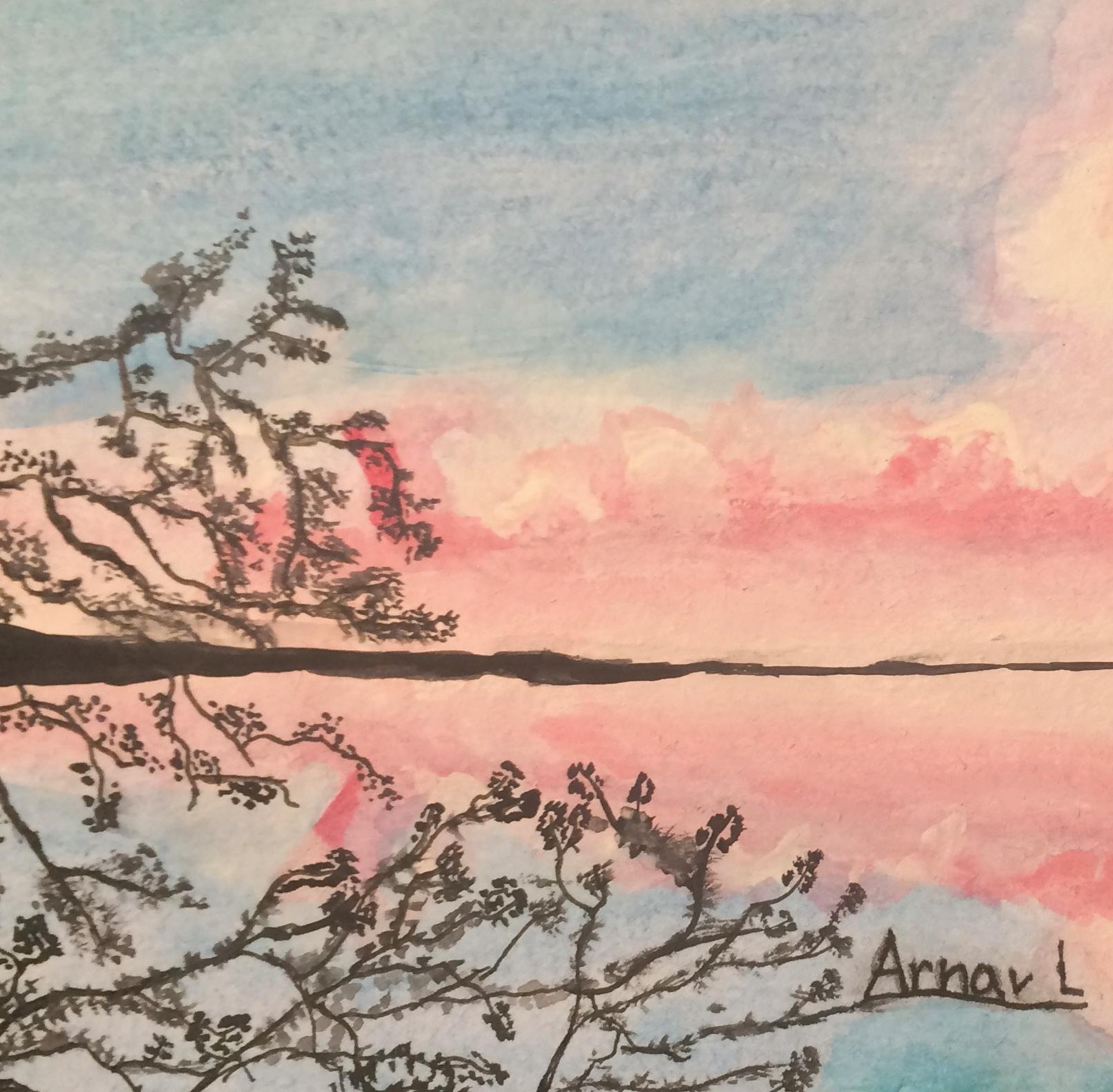
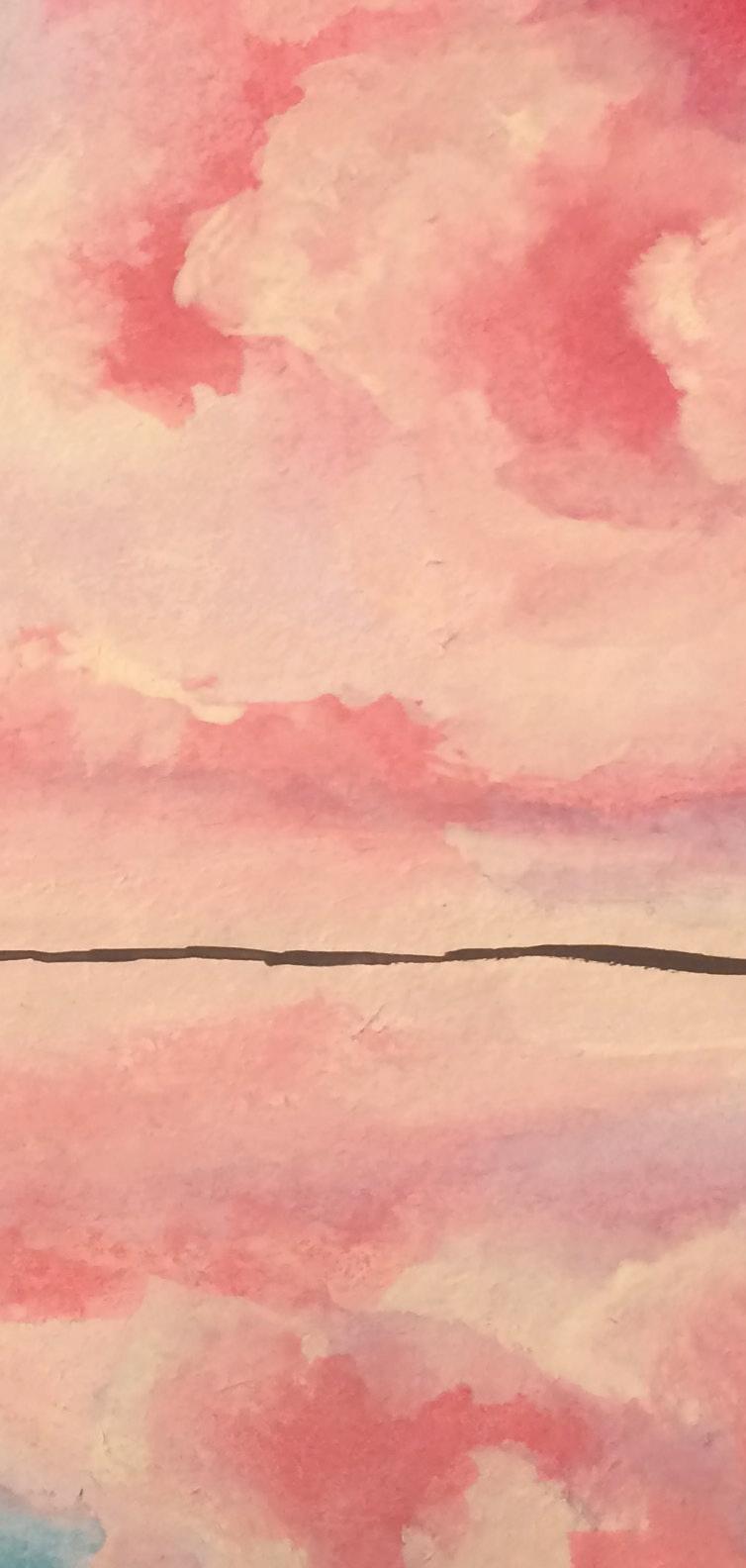
By Aryan Mishra ’26
Love is born of curious innocence, Arising timidly within the heart. Purity untainted in immanence, Wandering past dawn blissfully apart.
A dove ying through tempests’ wrath, beating Wings grappling with vice in futile enmity. Writhing in darkness, innocence eeting Hiding within shrouded serenity.
e heart patrols in wary reclusion, Reticent in endless misconstruction. Yet hammered still by ceaseless intrusion, Overwhelmed in shattering compulsion.
Until the heart surrenders and breaks open, Finally able to love unbroken.
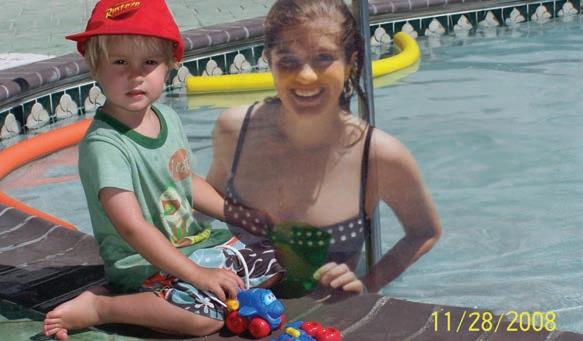


e YoungArts competition receives over 7,000 submissions from students across America in ten di erent disciplines within the arts. is year, two Marksmen, both seniors, were recognized as winners with distinction. With deep stories behind both of these portfolios, they were deservedly recognized as two of the top eleven in the country.

Story by Neil Yepuri
Losinga parent is one of the most tragic and signi cant things that can happen to a child.
But when it happened to Hudson Brown, he was less than a day old. e emotional e ects that such a loss would have had on him, especially if it had come later in his life, didn’t exist. Instead, the passing of his mother left a hole in the lives of his family.
So when Brown was searching for a topic for his YoungArts photography contest portfolio, he chose to honor his mother’s memory - and create a touching tribute for his family.
“I took images from when she was alive and then photoshopped them into images that were taken of me and my family members throughout childhood,” Brown said.
e YoungArts competition is a nationally competitive arts contest that receives 7,000 applications across ten disciplines in the arts. For each of the past few years, St. Mark’s seniors have submitted portfolios to the photography category in hopes of receiving recognition for their work.
“ ere are two categories of winners in each art form this year,” Brown said. “You can be a winner, where you’d just gain recognition, but being a winner with distinction is the big prize - that’s what I got.”
ere are only eleven winners with distinction across all of America within the photography category, so Brown’s success was a testament to the outstanding work he’s done within the discipline.
But, ironically enough, Brown’s journey with photography actually began because of his family.
“My aunt took photos on family vacations,” Brown said. “She would take these beautiful portraits that
encapsulated memories of our trips. en, on the next trip, she would bring a book that she literally spent 400 hours creating - a picture book of the trip. You could look through and remember these amazing times you had with your family.”
Inspired by the work of his aunt, Brown began taking pictures on family trips as early as seventh grade. Eventually, by freshman year, his interest had driven him to take photography as a class at St. Mark’s - despite not having taken it during the previous two years.
“I actually started doing photography really late at St. Mark’s,” Brown said. “Everyone was like ‘Oh, Hudson, you’re starting late; you’re not going to be able to succeed’, but I just fell headlong in love with it.”
And Brown’s passion for photography eventually led him to feature the deeply personal loss of his own mother in his work.
“ irteen months before the YoungArts submission date, I sat down with Mr. (Scott) Hunt, the photography instructor, and I said, ‘What do I think needs a voice? What do I think needs to be heard?” Brown said. “And so I decided to try and tell the story of my birth mom’s passing away on the day I was born.”
For Brown, the largest e ect of his work on this portfolio can be seen in the reactions of his family, as they got to see their wife, daughter, and sister transported into the modern era - even after her passing.
“For my father and my family, [the creation of this portfolio] was super impactful and meant so much to them because they knew her so well,” Brown said. “She had been in their lives for thirty or forty years, and she had made such a positive impact on everyone she had been around - she was always smiling.”

As Brown mentions in his story, these photos are old pictures of him with his family. However, Brown chose to edit his birth mother, who passed away when he was born in 2006, into these photos, as a tribute to the memory of a mother he never knew.
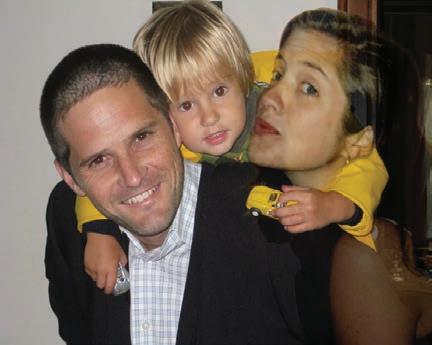

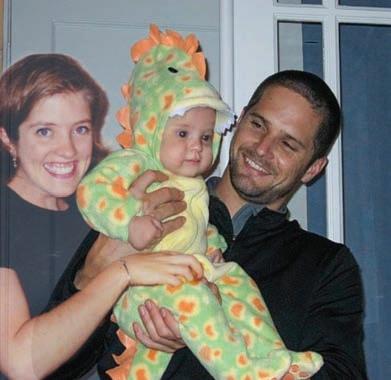
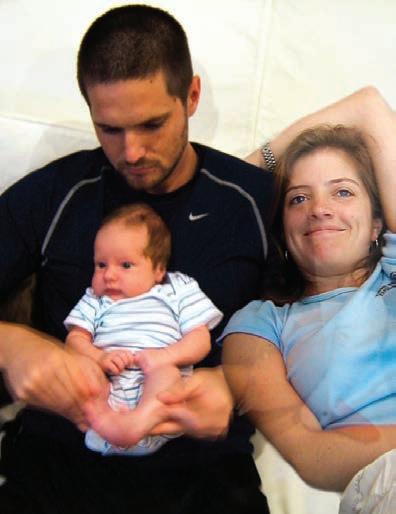
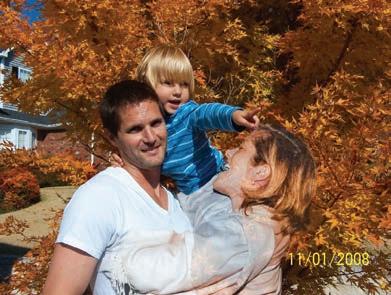
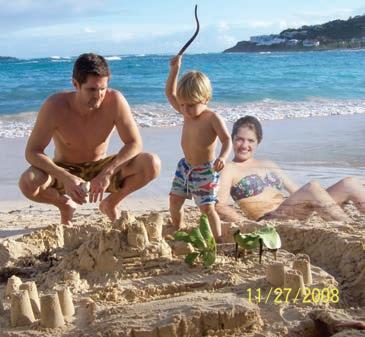
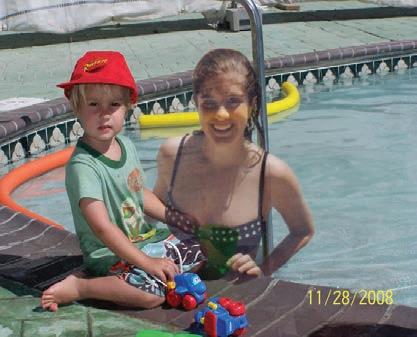
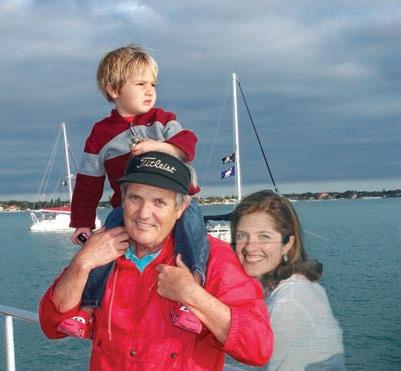
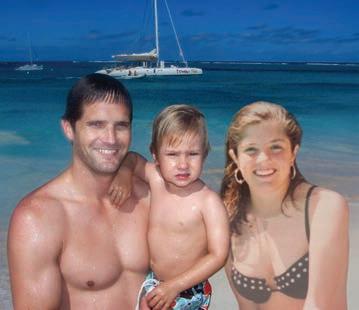


Story by Christopher Gu ey ’26
13years at a school which only o ered 12. It all started in senior Patrick Flanagan’s rst junior year. After being elected class representative, he looked forward to a good junior year. en in August before classes started, he began to wake up with a terrible pain.
“ en, at the start of August football training camp, I woke up with a raging headache. I moved to the oor because the contrast between the soft bed and the needles inside my head upset me,” Flanagan wrote. “On the fth day of repeating this routine, lying on the wooden oor, I brie y opened my eyes to see my mom crying.”
He tried everything to x this mystery illness that was later diagnosed as Long Covid, in which Covid symptoms continue to develop after they seem to subside after the initial infection. He tried acupuncture, pain killers, heat, rest, and still no change.
Basic, everyday questions became a challenge for Flanagan. His condition worsened to the point where he had to attend speech therapy and write things down to remember them.
“So much happened, but my brain remembers none of it; only my calendars do,” Flanagan wrote. “I learned to write everything down to remember it. I kept a journal of every activity and how it a ected my pain level.”
As Long Covid was relatively new at the time, Flanagan and his doctors experimented with countless di erent medications to facilitate his recovery.
“(Prescription drugs) helped me feel less pain, but they also rendered me completely incapable of experiencing empathy,” Flanagan wrote. “Medication had taken my personality.“
His pain also fostered psychological impacts.
Magazines in hospitals meant to divert him served as constant reminders of what he couldn’t do.
“ e words, titles, and bright covers humiliated me,” Flanagan wrote.
However, he still had things in his life that gave him positive reminders, like Legos.
“While recovering from Long Covid, my Legos took on a new meaning,” Flanagan wrote. “Whether it’s practicing my reading speed, relearning how to write, training my tennis skills to get back to a nationally competitive level, or even relearning how to breathe, I think of my Legos.”
He’s never looked at a pile of Legos as a broken, meaningless mess, so he used the same mentality throughout the duration of the recovery process.
“While recovering, I told myself that no good comes from dwelling on future pain,” Flanagan wrote. “I understood that the day would come when my class was o cially no longer at my school, so I didn’t let myself worry about it until that day nally arrived.”
He was on medical leave for the rest of his junior year. e next year, he returned to campus with a white shirt and saw his former classmates return with blue ones.
“My new classmates weren’t the guys I went to rst grade with,” Flanagan wrote. “I didn’t know them, and now, after being gone for a year, it felt like my fellow seniors didn’t know me.”
Even worse, he should have been class representative for his grade. After coming back the next school year, he wasn’t even part of that grade.
“I watched with my eyes forced open as I saw my grade experience their entire senior year without me,” Flanagan wrote.
Portfolio
and Excerpts
By Patrick Flanagan ’24
Patrick’s struggles with long COVID in his junior year nearly forced him to leave St. Mark’s. In these photos and excerpts, Flanagan chronicles his experiences with the mysterious and life-altering disease and how it changed him as a person.
While su ering from Long Covid, I experienced severe memory loss. Recovery starts small. e simple question of “How was your day?” became impossible to answer. I went to speech therapy for three months to learn how to answer questions with something other than a blank stare. I learned to write everything down to remember it. I kept a journal of every activity and how it a ected my pain level. Every event became a careful study of what triggers or alleviates my headache. So much happened, but my brain remembers none of it; only my calendars do. I kept calendars on my bathroom wall to remember what had happened and was happening in the current and previous week. I taped up the second copy of my new dietary restrictions in the hope that I would remember them and not have to bring the papers with me everywhere. With so much happening and nothing registering, one constant centered me: recovery. e A is a physical therapy exercise designed to practice vestibular balance. As I shook my head back and forth and up and down and across the diagonals to the beat of a metronome, it made everything spin except the A. It centered me. No matter how fast I move or how unclear everything is around me, the A is there, still, centered, begging me to recover.


Shoppingbecame a form of torture. I returned from the doctor’s o ce with a list of vitamins and pills to purchase for daily consumption. When I entered the store, I was greeted by ickering uorescent lights. I walked down the aisles head down without looking at any of the items. Nothing o ered any comfort from the busy, bright, packed background of the shelves. I dashed in to focus on a single item, and waves shot back from the shelves, sending my brain into a screaming terror. Ten minutes later I tried again, this time with my eyes closed, reaching in and picking one bottle at a time. After blindly examining the entire shelf, I nally grabbed all twelve of the supplements I needed. I returned home in shock, still paralyzed from trying to focus my eyes on a single item in an array of distractions.
Concentrating on class material and interacting with people at school sent my brain into a spin. Every day after my last period class, I hid in the bathroom and vomited. It helped release some of the pressure built up in my head. As the pain increased, my nausea got worse. rowing up after school wasn’t enough. At night before going to sleep, the pain would boil over. I would sit in my car with the seat fully reclined and the AC on full blast for about an hour until the nausea subsided. On nights when I couldn’t freeze my stomach into submission, I would hurl chunks of pink Pepto Bismol tablets out of my throat and onto the oor. I went from being a nationally competitive athlete to being unable to run, breathe, or eat. In physical therapy, we found that after three minutes of walking at three miles per hour, my blood oxygen level fell to 78%. at number is equivalent to what climbers experience at Everest base camp. Any attempt at physical exertion resulted in another pool of vomit. To avoid migraines and keep things in my stomach, I adopted an extremely restrictive diet. It was an anti-in ammatory, anti-migraine, gluten free, “Tom Brady” diet. I ate fruits, seafood, and lots of sh. My nausea eventually went away, but its e ects persist in the choices I make at every meal.

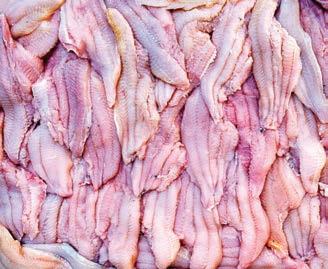
WhenI left school, the classroom was replaced by a doctor’s o ce.
Di erent appointments resembled di erent class periods. Textbooks turned into appointment notes. Tests transitioned to recovery goals. ese les are my classmates. When I was the only one out of school and recovering from Long Covid, I often thought, “Why me? Why should I be picked out from everyone else and be made to su er alone?” e manila folders, stacked alphabetically in an in nitely increasing pile, reminded me that I was not entirely alone. ere are people out there going through things just like me, and even though we will not meet, we will always share that bond. I feel a responsibility to open up my le and share every detail of my experience so my classmates in su ering know they are not alone.
Five days a week for eight months, I sat in a doctor’s waiting room. For the duration of every minute spent waiting, I would close my eyes. If I opened them, I risked constant mockery. In every single doctor’s o ce lay a plethora of magazines. ey were in the hands of people waiting for their yearly check-ups, ripped apart by kids looking at the pictures, or sitting in a neatly sorted collection on a co ee table. e purpose of the magazines is to bring some sort of levity to an otherwise serious moment. For me, the magazines served as constant reminders that I couldn’t read. e words, titles, and bright covers humiliated me. e letters in their fancy fonts laughed at me, reminding me that if I tried to read, my eyes would go into shock and my brain into frustration. In a doctor’s o ce, a place marked with dread, diagnosis, and anticipation, the one thing intended to bring comfort, the magazines, mocked my inability to read.

Ientered a partial hospitalization program while I was away from school. Because Long Covid is a new disease and data was only beginning to come out about its existence, teachers, friends, family, and even doctors were skeptical of what I was experiencing. So was my school. ey wanted to make sure I wasn’t just making everything up. I faced the ultimatum of either never attending my school again or enrolling in a partial hospitalization program. A PHP is designed to protect kids who are a risk to themselves. e next step up from a PHP is mandatory overnight hospitalization for an undetermined period of time until the doctors certify that you are safe to interact in society. It’s important to clarify that I was never like that. I looked through the windows of the downtown building while imagining my friends running, thinking, and remembering at school, all things I could no longer do. Alienated, I served my sentence in the PHP, observing the weighted chairs, anonymous nurses, and security cameras. e glass separated me from the functional world, instead associating me with everyone else who needed help. No amount of physical pain could add up to the mental fear of capitulating to the fact that I would always have to view the world through a glass wall, knowing that I couldn’t touch but only see everyone else. I nished the month-long program in six days, and I returned to my school the following year.
Fornineteen months, I never traveled without my Oakley Radar EV Path or Sutro Lite sunglasses. Fake Pit Vipers, my friends called them. I wore sunglasses to hide my distant gaze and protect my sensitive brain from excess movements and light. My inability to make eye contact de ned my di culty in relating to society while I had Long Covid. I stayed away from crowds at all times, and I put myself in positions where I wouldn’t have to interact socially. My doctors and I experimented with fteen di erent prescription drugs in my recovery process. ey helped me feel less pain, but they also rendered me completely incapable of experiencing empathy. Cormac McCarthy says, “the eyes are the window to the soul.” I wore re ective sunglasses, and in my soul, there was nothing to see. Medication had taken my personality. My sunglasses hid me from people, and they hid people from the struggle I was experiencing. ey protected me from peering eyes and made me anonymous, another person in the crowd.
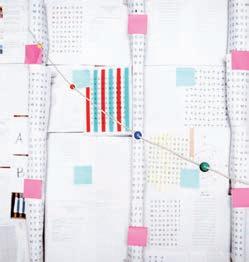


Ihadcompleted eight months of vision therapy by the time I returned to school. I did eye stretches with a popsicle stick, sticky note saccades, the near/far chart, MAR with an eyepatch, red/green ippers, 2 chart 2 wall, the lifesaver card, BAR with a polarized chart, doorframe saccades, line jumps on paper, and prism ips. Every drill had the goal of training my eyes and strengthening their connection to my brain. Sticky note saccades trained my peripheral vision. e Brock String trained my ability to focus and move my focus back and forth. I held one end of it to my nose and the other taped to a wall. As my eyes focus on one bead, the line of string diverges on either side of it to form an optical X. Amid this illusion, I gathered myself. e past and future can move in di erent directions, but the present must stay in focus. Complete recovery starts with putting my full focus into this one day, this one meal, this one minute, this one drill, and this one bead.
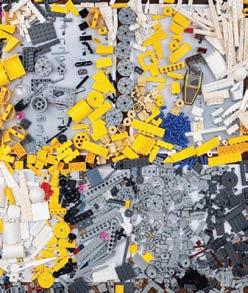
IhaveAtalways built Legos. When I empty out the bags, they begin as disorganized clumps of pieces. Amid the confusion, I envision the potential. While recovering from Long Covid, my Legos took on a new meaning. ey reminded me that no matter how broken, how sick, or how simply impossible the nal creation appears, everything can be rebuilt. Whether it’s practicing my reading speed, relearning how to write, training my tennis skills to get back to a nationally competitive level, or even relearning how to breathe, I think of my Legos. ey remind me of Marcus Aurelius. He often told himself, “exaleipsai phantasiai,” or “erase your impressions.” I’m challenged to view my own recovery process in the same way I view Lego pieces: without judgment. I don’t see Lego pieces as broken or scattered things that lack meaning, and therefore I do not see my “severely disabled” self as something negative. I have extreme potential and am yet to be rebuilt. Like a Lego, I can put the pieces together and build something great.
St. Mark’s, seniors are marked by their blue shirts. Everyone else in grades 1-11 wears a white shirt. Entering junior year, my classmates and I expected to be in our last year of white shirts.
At the start of August football training camp, I woke up with a raging headache. I moved to the oor because the contrast between the soft bed and the needles inside my head upset me. I spent the fall struggling, attempting to work but knowing I couldn’t keep up. I tried desperately to remain in school, but with my health continuing to deteriorate, I eventually had to go on medical leave.
After spending 10½ years with the same class, I returned to my old school in a new grade. My old classmates were all seniors now, but I was still in a white shirt. My new classmates weren’t the guys I went to rst grade with. ey weren’t part of our undefeated ag football teams. ey hadn’t struggled with me through our ten-day freshman orientation camping trip, and they hadn’t hung out with me during Covid lockdowns.
Surrounded by people I could call my brothers, I felt completely isolated in my own school. I watched with my eyes forced open as I saw my grade experience their entire senior year without me. is was the hardest part of overcoming Long Covid; harder than breathing without working lungs. My white shirt represented all the pain I had to endure in the past year, and it served as an o cial marker that I would never be the same.
On the last day of school, seniors traditionally all take o their blue shirts, put the shirts on a statue, and jump in the pool. is year, every senior waited outside the doors
because the pool was locked. Knowing a secret entrance to the natatorium, I walked in and watched all 100 of my classmates run past me to jump in the pool after their last day of classes at St. Mark’s. I stood there paralyzed, shoes and socks o , ready to dive in and join them but unable to. e next day, on the morning of my rst day of school without them, I took all 100 of my former classmates’ blue senior shirts from the statue, laid them out on the school tennis court, and made this photo. Facing the camera, my one white shirt is slightly above and left of the middle, positioned similar to where the heart would be on a human body. After taking the photo, I returned every shirt to the statue with the help of the new St. Mark’s administration and went to class, ready for my senior year.


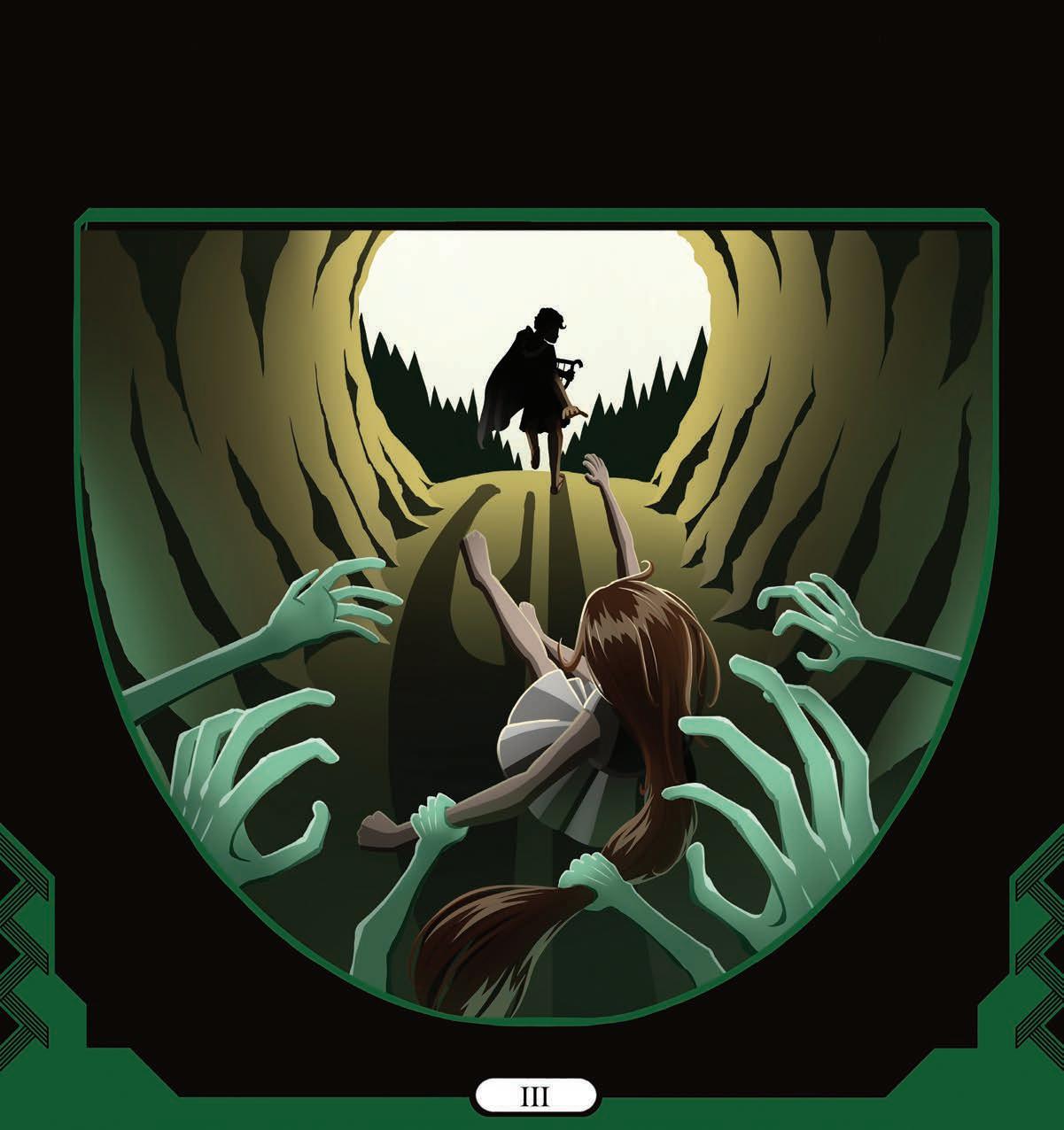
But, this journey would tragically fail at the nal hurdle. Overjoyed, Orpheus looked back at his wife before she had crossed the threshold between the natural world and the Underworld.
As this was the one rule he could not break during their journey back, the hero had o cially lost his wife forever. Defeated, he returned to his home in nature, playing the lyre for the rest of his days.
Orpheus shows maturity in the face of his loss. Instead of falling into a deep depression or becoming more desperate, he instead accepts his failure and nds happiness in the rest of his life.
We should strive to be more like Orpheus in tragic situations like these. Instead of pushing ourselves in futility, we should have the wisdom to rein ourselves in.
As Orpheus ends his journey, he is a man defeated.




By Carson Bosita ’25
ey saw it from their screens— A crimson comma, e clause it carried Filled with despair.
ey saw it from above—
An unfathomably large white rift torn into the earth,
A Yin-less Yang
Sent to destroy the balance of life.
As it swallowed them, they— Mere viruses and bacteria compared to it— Experienced the immune system of a god Trying to extinguish them.
ey heard the unending hush of a trillion sabotaging antibodies
Pulled sideways through invisible veins.
ey saw wall after surging wall of white blood cells
Engulf streets and pound against doomed buildings—
ere was silence.
e monster’s blue, sleepless eye, Surrounded by swirling pu y teeth, Dwar ng any “battleship” or “skyscraper” by orders of magnitude, Surveyed them all with cosmic emptiness.
It glided, hungrily, uncaringly, Across homes, towns, cities, states, Whipping its smoky tendrils around Like a cataclysmic carousel.
But it growled with booming thunder
At the steel towers left undigested in its wake,
At the people who would recover from its rampage
No matter how much it took from them.
But the foreign land poisoned it. Its life force poured out in torrents as it crawled further and further inward. Further, further, further, Smaller, smaller, smaller, until it dissipated A wisp of its former might.
e beast of the sea will always disappear. But it always comes back. Maybe in a year. Maybe in a month. Maybe in the Caribbean. Maybe in the Gulf of Mexico.
Maybe as Harvey. Maybe as Katrina.
by Jackson Barnes ’26
Jacques hated spring-cleaning day. Spring was a bit of a misnomer – it usually occurred in late winter on a random day which his father always declared was “as good as it was gonna get.”
Being a good day also seemed like something his father randomly decided. A good day could be just above freezing or well into the seventies, yet it always seemed to fall on dreary Saturdays, almost exclusively without sun. ough Jacques was already not a fan of working for hours straight, the labor involved in spring cleaning day was not the reason he hated it. Spring cleaning day stood as a monument to everything he detested about his father. His father was obsessed with cleanliness and never failed to project his fanaticism into Jacques’s life. Being reminded of the purported uncleanliness of his room was as common as being asked how his day was, and the reminder usually came rst. His father would frequently point out to him how dog hair had collected underneath the sofa or how much dust had collected behind the TV cabinet. His father insisted that Jacques keep his room clean, often making detours through the house to ensure that Jacques’s oor had been swept and that his shoes had been fully put away.
Spring cleaning day stood as a monument to everything he detested about his father.
the cleanliness of his own body, obsessing over every slightly unacceptable metric that purportedly predestined complete and utter destruction of his body. He exercised twice daily, starting his days with a lift and ending them with a run, adding in walks when he could and fty-mile bike rides every Saturday. He adhered to some strange health diet that disallowed animal proteins or anything else that tasted good and kept a scale on the dining table so that he could weigh every gram of food he ingested. As if it were not already obvious, he also felt a need not only to remind Jacques repeatedly of these lifestyle choices and their bene ts, but also to urge Jacques into conformity with his lifestyle every time he saw Jacques seated for more than an hour or, God forbid, Jacques eating something high in simple sugars.
His father was equally obsessed with
Above all, his father loved his lawn. He saw it not only as a place to conduct his calisthenic routines but also as a frame to the work of art he considered his home, which derived its aesthetic value from how well-maintained it was – something he considered to be regrettably rare in current society. Every man has some hobby or fascination that absorbs his attention just as well as his wallet, and for Jacques’ father, it was lawncare. Riding mowers, leaf blowers, backpack sprayers, granular spreaders, edge trimmers, round and at shovels, landscape and dethatching rakes: nothing was a tool too expensive to be bought or too niche to be worth the investment. e lawn was kept at a perfect length and in a perpetual
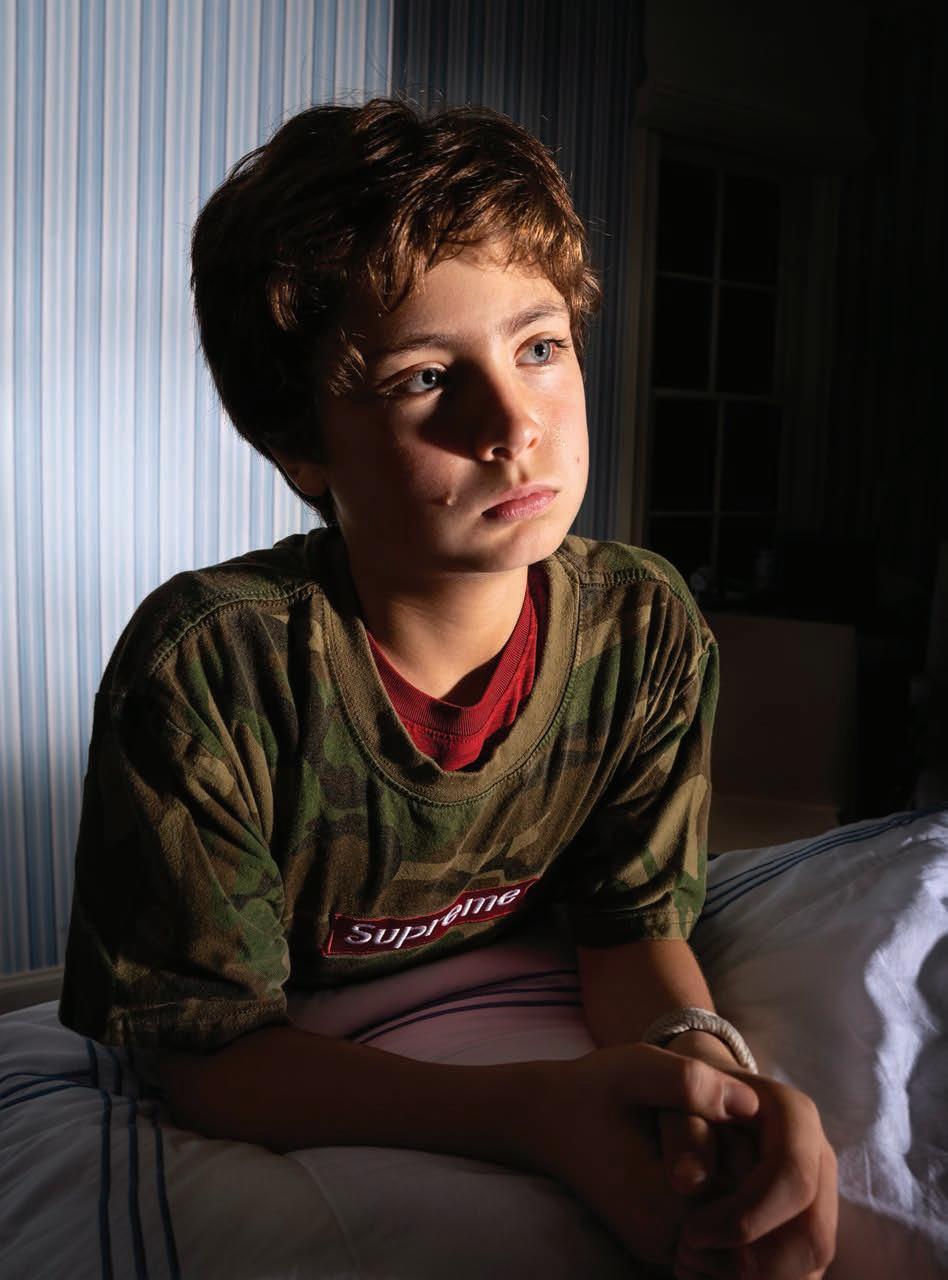
checkerboard pattern.
Jacques considered this to be the real reason spring cleaning never came during the spring – it needed to be done when the grass was dead and dry, for the time his father would need to expend repairing the foot tra c of the day would surely exceed the amount taken for cleaning.
And so, one unlucky Saturday in February, Jacques was awoken with thirty minutes’ notice before they started to clean. It began as a standard spring cleaning day. Jacques rst dusted every horizontal surface in the house, starting up high with fan blades and bookshelves and arriving at co ee tables an hour later. He was then sent to dust the baseboards of the house, which he did bent over until his back hurt, at which point he scooted on his butt along the walls for the remainder of the task. He then vacuumed and mopped the entire house, making sure to never mop himself inside a room and to change the water after every ten strokes. After a mountain of the mundane, it was time to transition to the outside chores. is time was di erent. His father had spread out three large tarps across the lawn and upon them placed the wooden furniture from the deck. After sweeping and power washing the deck, Jacques’s father summoned him to the tarps.
“Listen,” his father said, “you’re going to prepare these chairs so I can re nish them. Go get a few white rags from under the sink, and then we’ll get started.”
Jacques returned to nd his father standing in the middle of the tarps clutching tightly in one hand a rectangular metallic can, and a paint tray and brush in the other.
“ ese are mineral spirits,” he said, holding up the can. “You are to be very careful with them. You’re going
At this point, Jacques considered himself the survivor of what had been the worst spring cleaning yet.
to evenly apply it to the wood with this brush, two times over, or three if you can tell the color hasn’t changed. Set those rags up.”
Jacques bent over to set the rags beneath the furniture in any locations that the spirits might drip onto. As he got back up, he noticed his father’s hand shaking as he poured the spirits into the tray.
“I’m going to go put these away. Get to work,” he ordered.
Jacques got to work. ough he found it peculiar that his father hadn’t returned yet to instruct him how to do his work a second time, he soon found himself too consumed with contempt for the task to consider it any further. e brush was old and sti , and the wood had become rough and dry.
Some time later, he nished. e sky had shifted almost imperceptibly darker, signaling the arrival of late afternoon. At this point, Jacques considered himself the survivor of what had been the worst spring cleaning yet. He had plans with his friends and couldn’t be bothered to spend any more time than was necessary on such mindless chores. He began to gather the supplies, but upon lifting the paint tray, he felt the telltale shifting of mass that reminded him it wasn’t empty. Exasperated, he ung the contents o the side of the tarp without thinking and carried the brush, tray, and rags to the garage.
“Hey there,” grinned his father, “all done?”
Jacques nodded.
“Oh – looks like you got through all the mineral spirits there,” he continued, pointing at the tray.
Jacques gave him a blank stare, but quickly smiled and nodded.
“Good job, then,” his father smiled, tussling Jacques’ hair. “You’re all done here. Not too bad, huh?”


Jacques ashed another quick smile, even more synthetic than the last, and gladly retreated inside the house.
Spring soon came, and green grass came with it. One dreadfully notable spot in the center of the lawn remained pale yellow. is, naturally, was a matter of great concern to Jacques’ father.
“Well, you know, sometimes it might take some grass a little longer to grow in some spots,” announced Jacques’s father at dinner one night.
Jacques nodded in agreement, not taking his eyes o his plate. ough it had been more than a random decision, it felt he had nally managed to rebel against his father. Screw you and your green lawn, he thought, trying to suppress a smile.
Weeks passed, and the grass did not return. ough his father was able to complete an otherwise picturesque checkerboard pattern, it was constantly besmirched by that pale yellow spot.
“I did a little bit of research,” his father shared another night, “and I saw some interesting chemicals that might x whatever the hell is wrong with the lawn.”
Jacques looked up from his plate. “You know,” Jacques said, “you could just put down some sod.”
“No,” his father sneered, “I’m not going to cover it up with some other grass. I’m going to x it myself.”
A month passed, and no more grass came. Barrels and bags of new chemicals, however, did and began to take up a notable section of the garage. His father spent more and more time in the yard and in the o ce, desperately trying to discover and implement new remedies for his lawn. Jacques noted several changes in his behavior – his father had begun to skip workouts for several days, and never really reminded him to clean up anymore. He began to let his beard grow out a little too long and seemed to eat whatever could t in the microwave at dinner, allowing
dust to collect on the scale.
“You know, Dad,” said Jacques one night, “I was thinking about it, and I think I might have accidentally spilled a little bit of mineral spirits that time you wanted me to work on the furniture.”
His father paused for a moment, and then laughed. “No, if it was just mineral spirits, I’d have xed it by now.” He paused again and furrowed his brow. “I know I’m spending a lot of time on my lawn, but if you understood the amount of work I put into that lawn, you wouldn’t be trying to stop me from xing it. I know how this lawn should look, and I can’t stop until that happens.”
Jacques opened his mouth once again to speak but decided it wasn’t worth the e ort. He hadn’t been able to ever convince his father to let his room be a little messy or that there wasn’t really any harm in getting fast food with friends sometimes.
e condition of the lawn did not improve with time. His father’s condition, however, got worse. He no longer was motivated by a desire to x the lawn, but instead by embarrassment that his e orts had not yet succeeded. Call it desperation or determination, his father showed no signs of even the mere consideration of forfeiture.
One night, Jacques was gratefully eating alone, free from the blank question-and-answer exchange that constituted most dinners. His father had forgotten to mow the lawn that morning and decided it was too urgent a task to leave for later. He must’ve started the mower a little too close to the fertilizers that night. Between bites, all the windows in the dining room shattered from the blast, knocking Jacques to the oor. After con rming his own survival, he slowly rose to his feet and saw through the window, through jagged edges of glass, black smoke pouring from where the roof once was. Debris framed the garage and pools of indescribable liquid seeped towards the grass.
Between bites, all the windows in the dining room sha ered from the glass, knocking Jacques to the floor.
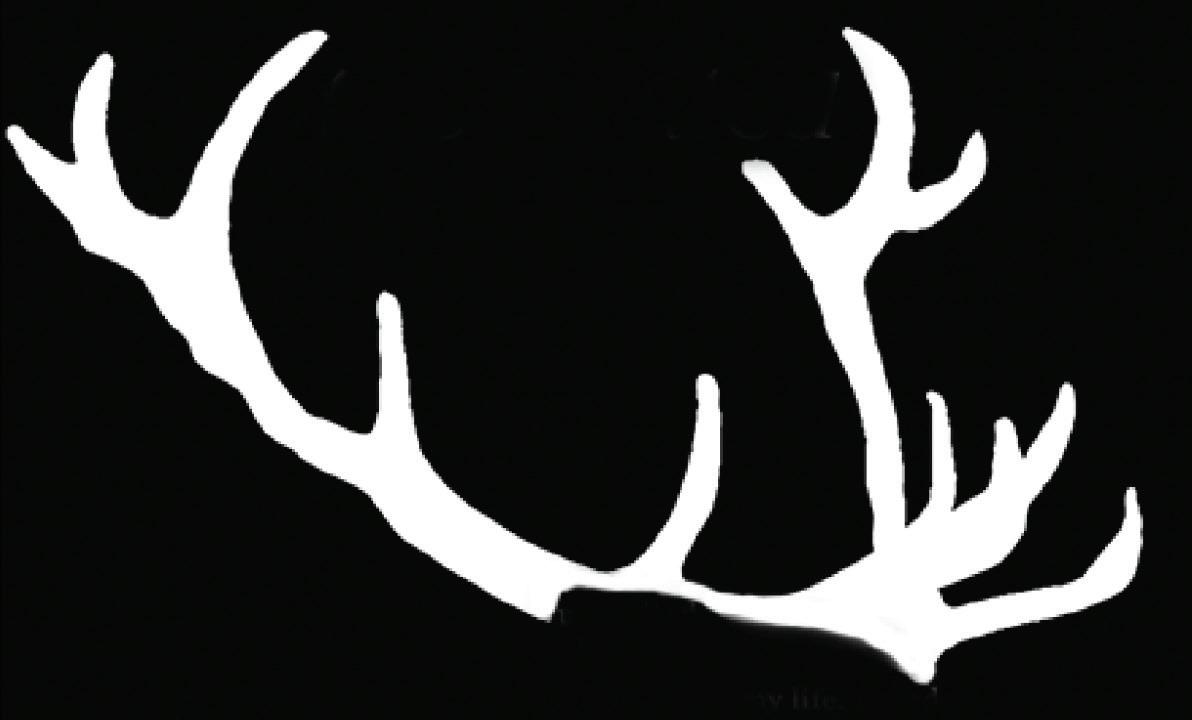
By Aditya Shivaswamy ’24
I killed the sacred deer that pranced and danced In my forest. Jealous of golden hue, With deceit, I captured the beast entranced By false promise of knowledge, wisdom too.
I fed the deer with futile covenants Never intended to be kept in faith. Flies swarm around glassy eyes; revenants Torture a con icted man now unmade.
An empty gift, what is the use of fame? Faux grass that I grow for my house’s lawn –Beautiful, evergreen, plastic, inane. Plaster columns crumble – structural con.
And though I am gone and usurped, I live. e aureate beast has no more to give.

“The Nothing That Is” | Burns Houston ’27
By Baker Lipscomb ’24
I watch the powerful, majestic waves In awe from the safety of the dry sand. eir strength is something I don’t understand. I run into a place of many graves.
My feet leave the ocean’s sandy oor as a wave hoists me high. A brief thrill runs through my body before I’m tossed by tons of water, my body rattled to the core.
My head appears only for a moment; en the ocean resumes its play. I’m drowned, I think. But then I wake on solid ground, Washed ashore by my potent opponent.
I’m lucky to survive with one single Bruise. With the ocean I’ll no longer mingle.


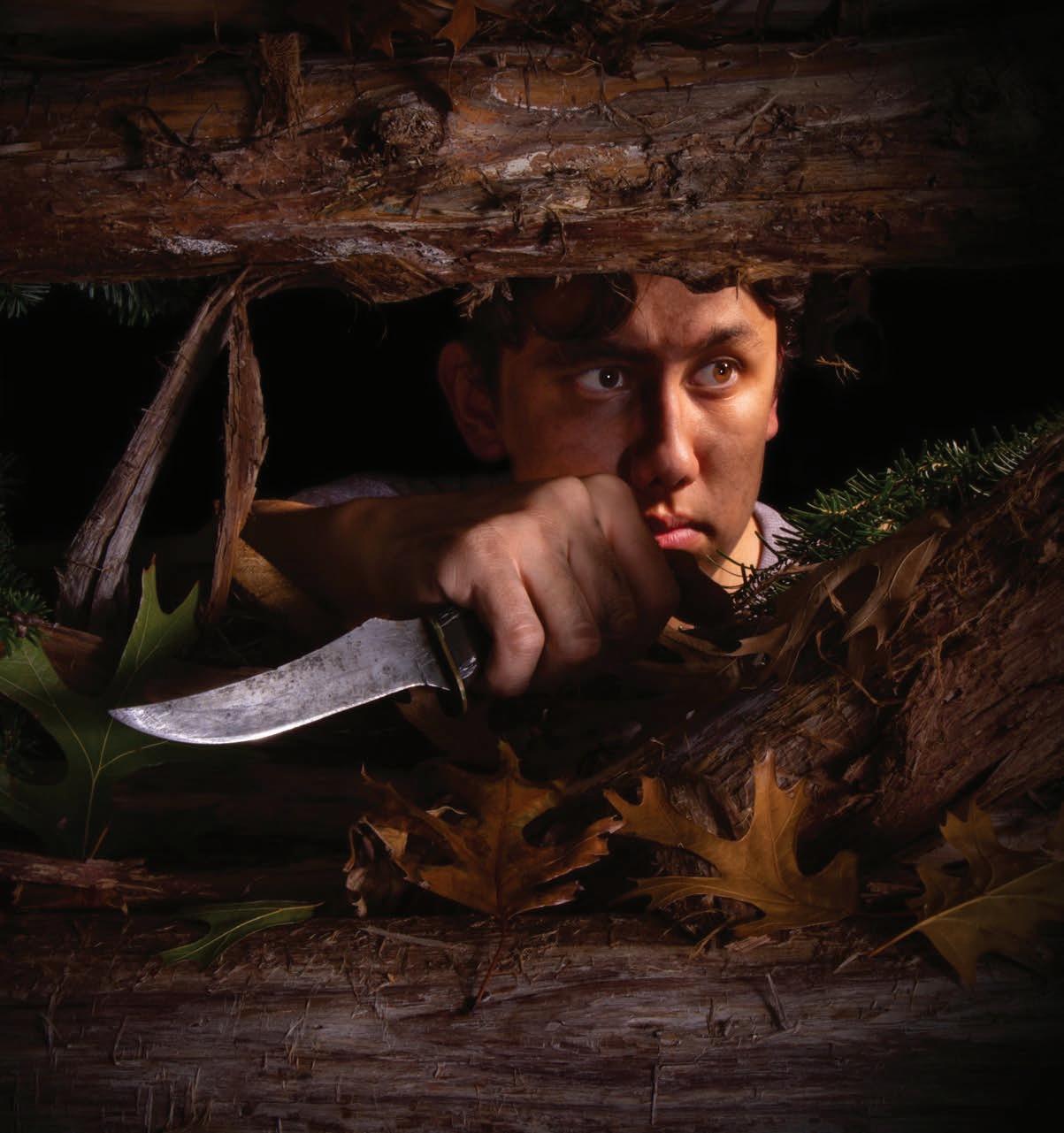
By Ethan Gao ‘24
Here comes man running through the dark forest, Hunting himself between the dense trees. e hunter is straining, trying his best, But ends up bent over, buckling his knees.
e prey always stays a few steps ahead, Just hairs faster, knowing more of the trail It treads. Man chases the peer he wants dead, In endless pursuit of his rival’s tail.
Enthralled in the chase, the hunter never felt How he grew faster, learned the forest’s way. Man only saw the prey’s prized rear pelt, Dismissing his improvements of the day.
When is it time to give up on hopeless quests and leave the hunt, satis ed by the test?
by Lukas Palys ‘25
The
ight attendant handed me my iced soda. Now, I can relax. I turn back to my book, holding it open with one hand while I sip my drink. Although I try to let the words tangle me, my thoughts eventually win. Time races by as I sit in the oating metal tube, suspended in air. Who knows if we are even moving: e clouds wrap our aircraft, leaving the windows pointless. e world melts away to contain only the plane and the people inside. Each doing his or her own activity in unconcerned bliss.
Suddenly, as if the plane crashed into a bell, I hear a ringing that pounds its way to my skull. e noise feels like a prolonged nuclear explosion. No one knows what is happening, but we all feel it. Ironically, the seatbelt sign stays o as the plane jerks in the air. e sky plays
with us like a toddler manipulating our plane through an obstacle course. Shrieks ll the air as the plane spasms. I see a person praying, palms clasped together, hoping God will forgive that insult he made earlier today and let him into heaven. Babies scream, and mothers are too stunned to shush them. e distorted chorus sings its last song. ose who have lived too long wait in silence. e icy shiver they feel alerts them that death is near. e clouds break, and the plane drowns in the sky. I watch in silence as we barrel toward the cold earth. Maybe this is the staircase to heaven. When we pass through, maybe the praying man will land in the clouds, using the ground as a connecting ight.
Time slows. As I close my eyes, the world closes too. I sink in silence.

By Arnav Lahoti ’24
Arjunwas bantering with his cellmate Alex when the ground started shaking. While Alex panicked and hyperventilated, incoherently blabbering about the sky falling, Arjun kept his wits about him, staring at the gray tiled oor as it cracked open, revealing what seemed to be a gigantic drill bit. As the gap in the oor widened, he glimpsed the striped, yellow-and-black exterior of a tunneling machine. With a soft whirr, the drill bit carved out a human-sized hole in the oor of the prison, and it proceeded to break down into four robotic arms that clamped down on the surface. rough the gap in the middle of the arms rose a large tube, inlaid with a slide. Arjun heard a voice calling through the tube; it sounded as though it originated from inside the machine.
“Come quickly, Arjun!” Although just a whisper, the voice was strong and commanding, but Arjun refused to submit to it. He had no idea whose this mysterious voice was. And although his life in prison was a rotten one, he could not simply abandon Alex. Alex was his cousin, and they were both responsible for the riot they had started that had landed them in prison in the rst place. e
prison had taken a toll on Alex’s mental health, and Arjun felt guilty for being partially responsible for Alex’s state.
“Who are you, and can I bring Alex with me?” Arjun replied softly into the tube.
“We are fellow rebels, and we need your help. Alex can come after you, but we need you to jump in rst.
Hurry before the guards realize that we are here!”
He didn’t like it, but Arjun saw the wisdom in haste, and he felt that he was at a major turning point in his life. Twenty years from now, will I regret not jumping? he asked himself. He knew what he must do. He turned around and commanded Alex, “Follow me!”
He jumped into the tube feet rst and looked up as he slid, waiting to see the soles of Alex’s secondhand prison shoes. Instead, to his dismay, he saw the arms retract and the tube close behind him. Within a few seconds, he landed, and he was livid. He dished his anger out on the woman who greeted him in the machine. She was rather tall, and she had to squat down to t in the space. She wore red camou age and a scarlet dust mask, cutting an imposing gure in the small room.

“Representations” | Asher Ridzinski ’27
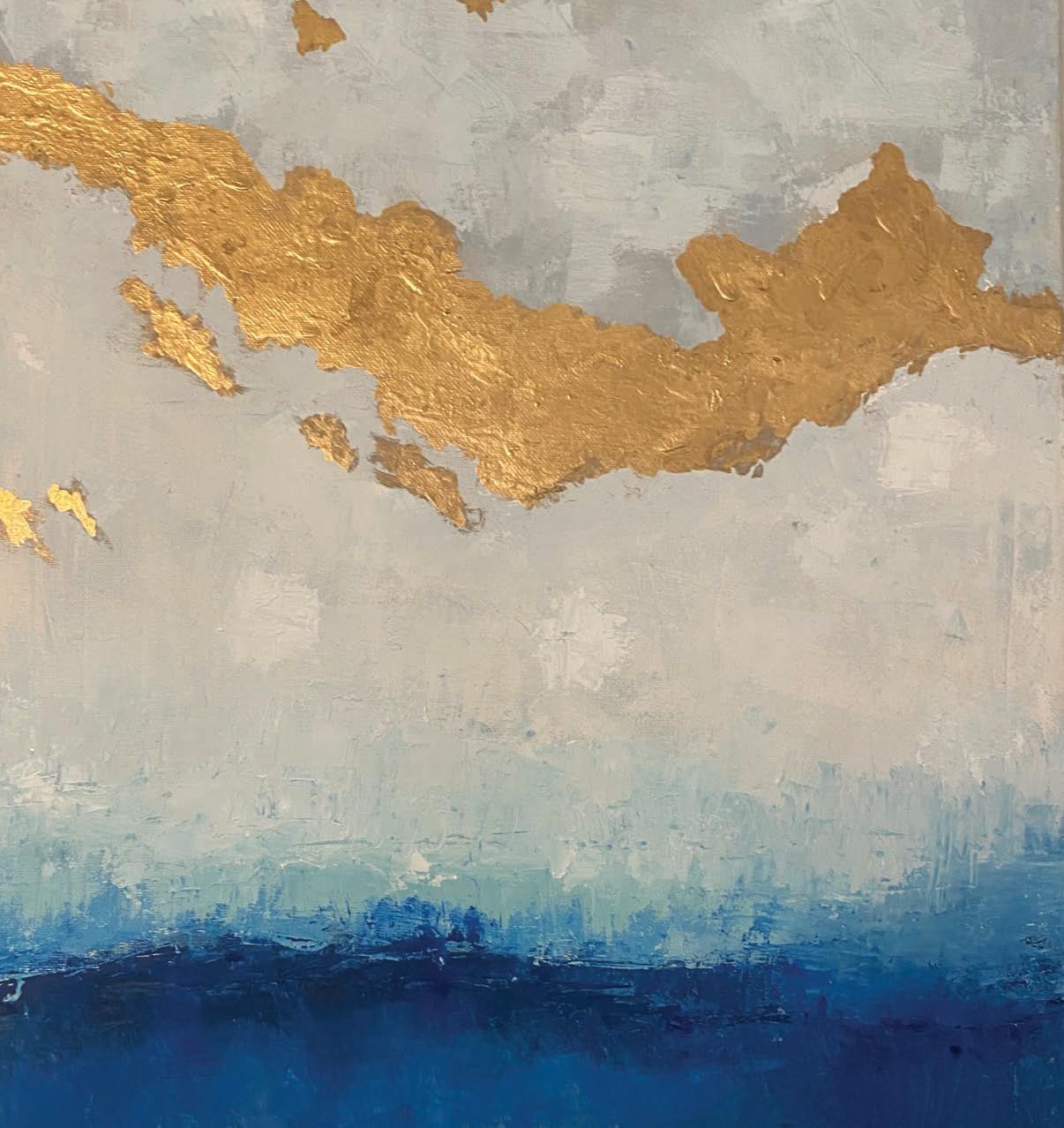

“A erglow” | Peter Clark ’27
“How dare you leave Alex behind? We have to go back!” Arjun roared ercely, stomping his foot with fury.
When she responded, it was clear that hers was the voice that had spoken earlier. She calmly held up a nger and tersely answered, “We only had room for one of you in this machine, and you are the one we need. Alex is unimportant in this matter.”
“Who are you to say who is important or not?” Arjun balled up his sts and stepped closer to the soldier.
“I am a general, and accordingly you will address me as General Z. If you help us overthrow the People’s Republic, then we can come back and rescue Alex as well. Do we have a deal?”
Arjun snarled at her, but he did not dare to make another aggressive move, warily eyeing her right hand, which was hovering over her holster and the lethal arcgun within. “Fine,” he retorted. “Let’s get this straight right now. We will come back for Alex. Otherwise, I won’t hesitate to betray you and your crew.” Knowing so little about their operations, he wasn’t sure if he would even
go through with the threat, but he had to establish some leverage.
“Fine,” General Z replied, not batting an eyelash. She turned around and issued a command to the pilot of the machine, who was kneeling in front of a dazzling array of multicolored buttons and levers. e pilot betrayed no signs of discomfort, and he reached to his right and pushed a blue lever forward, causing the machine to lurch head rst. As the drill bit started chiseling away at the crimson rock, Arjun glanced through the window and saw sound mu ers undulating, using negative interference to create an eerie silence that perfectly masked their escape.
Soon, the tunnel bore had reached a distance far enough from the prison that the general deemed it t for the group to break the surface. rough an upwardsloping tunnel, the bore made its way out of the passage and onto the rough terrain. After a furtive glance around, the pilot hurriedly pressed a complicated sequence of buttons, and with a soft hum, levitators beneath the machine turned on, enabling the group to take ight and

Each mansion contained glorious swimming pools full of tremendous amounts of pure, crystalline water, a precious commodity.
quickly gain altitude. With a gasp, Arjun looked curiously at General Z, who winked back at him.
“We have technology the government can only dream of creating, Arjun. You want to make a di erence? Just wait and see; you are with the right people.”
With a slow nod, the wonderstruck Arjun turned around to look through the window in the back. He could see the central space hub, the origin of the entire colonization e ort. e silvery hub glistened as it loomed over the rest of the landscape. Its central tower was ringed by multiple blue tori and topped o by a white, exquisitely shaped dome, one covered in bronze arches and gleaming black solar panels. From the bottom of the tower, aluminum pathways snaked out into jet-black concrete launchpads. ree of the launchpads contained soon-to-be fully operational space shuttles, and the metallic frames of these future vehicles re ected the harsh sunlight on the Martian terrain.
Around the hub were several houses, although calling them houses is an understatement. ese magni cent mansions covered vast tracts of land, and they proudly exhibited the esteemed family crests of those rst few brave souls who had dared to settle the barren Red Planet. Each mansion contained glorious swimming pools full of tremendous amounts of pure, crystalline water, a precious commodity.
Past the gated perimeters of these royal residences, a sprawling middle class had taken root. Modest houses dotted the landscape, sporting red, dusty lawns with the occasional green patch of owers. Smooth dirt trails connected these lodgings, perfectly grooved by immaculate Waymachines to properly accommodate hoverbike travel. But these trails had started to be riddled by potholes and random debris as they extended into what
could only be termed the slums of the People’s Republic.
Swaths of territory were covered by dilapidated dwellings, broken-down buildings with low structural integrity surrounded by litter and crossed by murky canals, a reminder of the failures of the government to keep its promise of serving all the people, the reason that Arjun had rioted in the rst place.
Although Arjun’s sharp eye took in all these details, he missed one important thing: from the slums below, an agent of the secret police peered up at the ying tunneler. With a pair of binoculars held to her eyes, Diana mentally noted the vehicle’s path. She had been undercover for a while in her pursuit of the rebels, and she knew that she was getting close to locating them. She had already gathered some intel about a vehicle like the one she was observing, and she was fairly con dent that it would lead her to the rebel hideout. With an excited, ominous grin, she hopped on her hoverbike, and the chase began.
Soon, the tunneler started to descend, but as Arjun looked around, he saw nothing by their landing spot. e dusty arrival pad was not surrounded by any buildings, and in the barren surroundings, only three hoverbikes and a rocky road that had no Waymachine marks lay ahead. As the tunneler approached, the arrival pad started moving, revealing the metal that lay underneath a thin layer of red debris. With a screeching noise, the two metal plates that comprised the pad separated and rotated vertically, exposing a small underground hangar. e tunneler touched down inside the hangar, and the group ed from the vehicle.
General Z motioned for Arjun and the pilot to follow her, and she ran to one side of the cavern, opening a door, behind which stood a staircase. ey ascended the staircase and made their way out onto the surface,
where they grabbed the hoverbikes. Arjun had never owned a hoverbike himself, but he had ridden his friends’ hoverbikes many times and knew the exhilarating feeling of the wind bu eting his face as he drove forward at tremendous speeds. ey mounted the hoverbikes and followed the general as she led the way into the horizon.
When they nally reached the rebel stronghold, Arjun was taken aback. He had expected to see a vast colony of rebels in a military base, out tted with weapons that could take the People’s Republic by storm. His idealistic vision starkly contrasted with the reality confronting him, however. In front of him were two guard posts and a strange building, sta ed by only a handful of people. Are these the right people for me? e ones with technology that the government can only dream of?
place like this, but the reason we broke you out was for your genetics. We did not need you for the ghting; My apologies,” General Z informed Arjun stoically.
Questions were racing through Arjun’s mind. Why were they talking about genetics? He also felt somewhat o ended. ey were saying that they did not need his leadership or skill with an arcgun. He felt an irrational anger seize him, but he practiced his meditation techniques and calmed himself down.
“What is this whole business with genetics?” He directed his question to the scientist.
Are these the right people for me? The ones with technology that the government can only dream of?
While he was asking himself these questions, a woman in a white lab coat came running out of the domed building. She beamed and waved excitedly at Arjun, greatly puzzling him.
“ ank you so much for coming, Arjun! We need you to complete our secret weapon,” she gushed. Arjun was extremely confused, and he looked at the general questioningly.
“I could not tell you until we had reached a safe
“Sorry, let me explain it all to you properly. My name is Cynthia, by the way. A few years ago, we were exploring this territory to nd a suitable place for our headquarters when we found this laboratory.” Cynthia pointed at the building behind her. “It was completely abandoned, but we found some incredible technology inside it. Some brilliant mind invented a plethora of devices such as the levitators that powered our tunneler. We could not nd the name of the person who had developed these marvels, but we found the initials S.M. carved into an early prototype of some hover-shoes. After quite a bit of digging, we found out that the scientist here was being forced into labor by the government. ey made her develop a class of weapons so advanced that they could potentially wipe out our entire colony. We surmise that

“The Diner” | Jacob Lobdell ’25
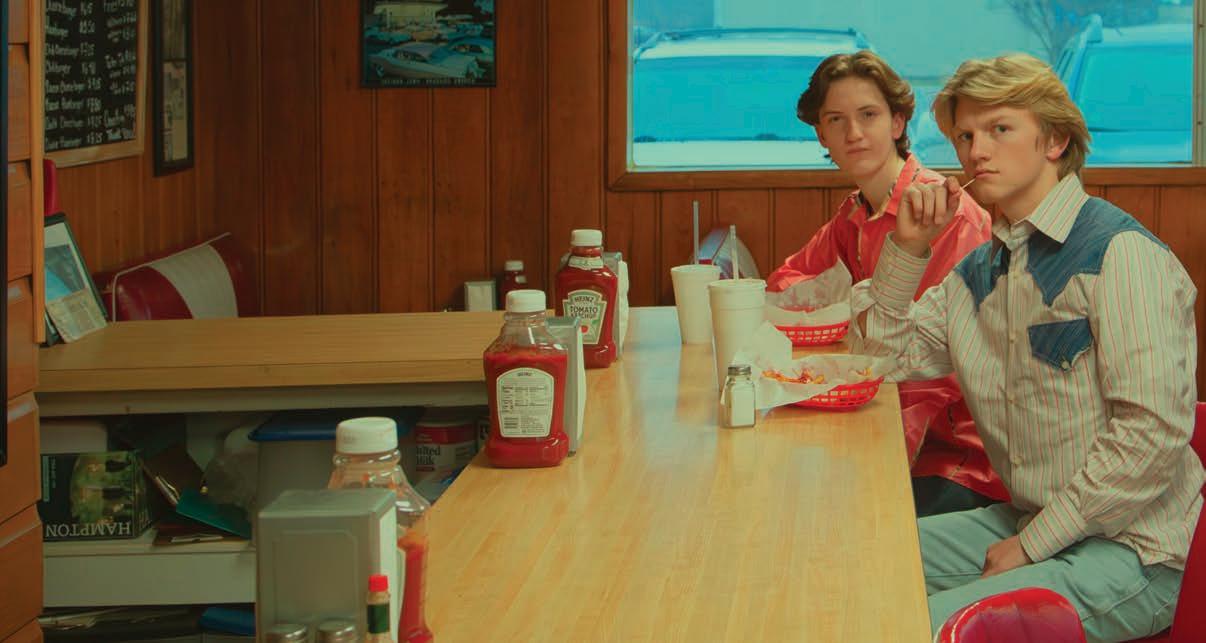
the government must have had some sort of leverage on her, and we are guessing that they held one of her family members as hostage.
“After consulting several genealogies for many months, I have concluded that the People’s Republic took her son hostage. You might recognize the name because her son is your father.” She stared at Arjun expectantly.
“S-S-Shiv?” Arjun stammered. He was shocked.
Apparently, the grandmother he had never known had been capable of annihilating an entire civilization!
“Yes!” Cynthia exclaimed. “I knew you were the one!”
“What does this have to do with me?”
“Well, judging by the models in the laboratory, I think that S.M. discovered the secret of antimatter weapons. She seems to have hidden the secret away, however, and we believe the key could lie in her genetic lineage. We found an incredibly strong safe that can only be unlocked by a DNA test, but none of our DNA seems to match. We don’t want to risk exploding it and harming the contents, so you might be the solution. With this technology, we
can defeat the government and overthrow our dictators!” Cynthia’s face was ushed with righteous fury.
“ is is ridiculous!” Arjun cried. “Tell me the truth! Why did you actually break me out of prison? is story is way too unbelievable!”
“We are telling you the truth. ere is only one way to convince you for sure.” General Z pointed in the direction of the laboratory.
With a hesitant nod, Arjun started walking towards the building. As he approached, he took a moment to clear his mind and thoroughly understand what he was seeing. e building was magni cent in a subtle way. It rose about twenty feet from the ground, and its top was de ned by a dome with a protruding telescope. Its brick exterior was a muted shade of mahogany, perfectly suited to the adjacent terrain.
e guard towers were positioned on opposing sides of the laboratory. A fence connected them, forming a perimeter around the facility. e guard posts themselves were approximately thirty feet tall, and they boasted two
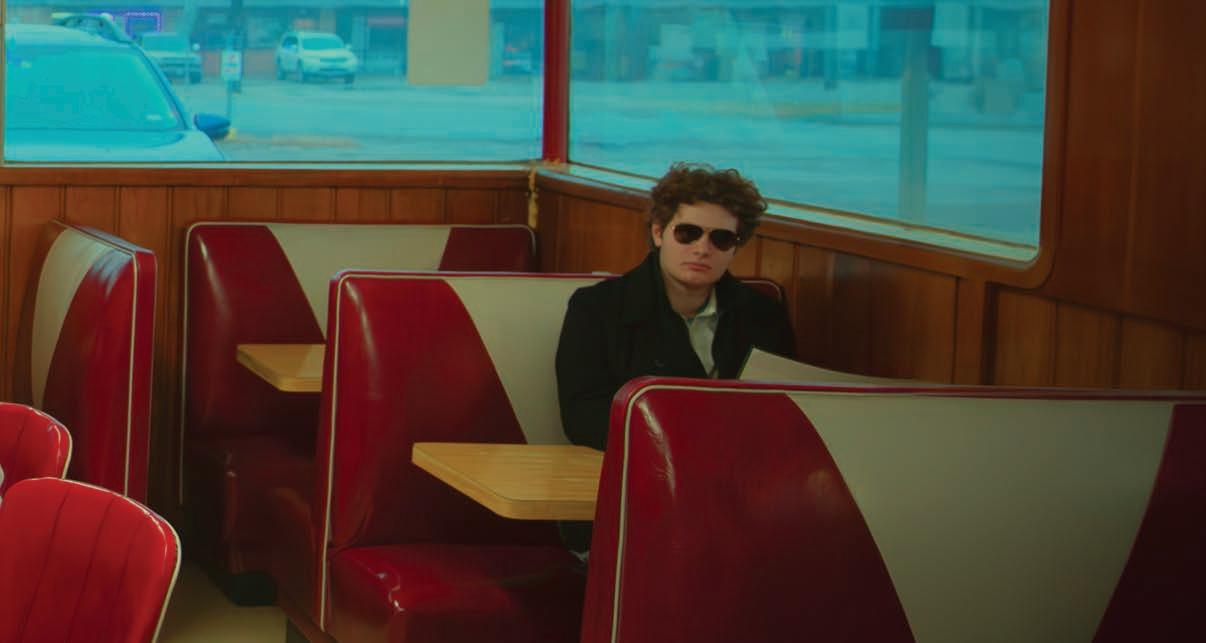
impressive laser cannons each on their balconies. Arjun noted that one of the laser cannons on each guard post did not belong in its current position overlooking the outside of the perimeter. Upon closer inspection, he could see that the balconies had markings indicating where the fearsome weapons had initially been placed, directed at the laboratory itself. e People’s Republic must have been as worried about the scientists getting out as they were about intruders. Where the People’s Republic would have deployed an entire garrison, the rebels only had a few soldiers manning the guard towers, and they seemed woefully ill-prepared for a ght.
Noticing Arjun’s observations, General Z explained, “Even though we found this complex abandoned, we must continuously remain vigilant, for the People’s Republic might still be monitoring this location. Fortunately, they are currently too occupied by their hunger for more land to send a force to defeat us, but we need to ensure that no scouts bring them word of our plans.”
Arjun nodded and turned his attention to the door.
Its electronic lock was hanging o ; it had evidently been exploded to let General Z’s forces into the workspace. Ingrained near the top of the door was a small white screen. When Arjun tapped on it, a thin panel extended from beneath the screen, where it had been expertly concealed. A pin was on the panel, and he realized that this must be the DNA test that he was supposed to pass. He carefully pricked his nger on the pin and watched as a drop of his blood slid down into the panel, which automatically closed. After a few moments, the screen momentarily ickered red, but it soon displayed a brilliant shade of green, and the lock chimed uselessly.
Arjun looked around in shock. Near him, General Z gave an uncharacteristically genuine smile. She highved Cynthia with a squeal of joy. “It worked, Arjun! at green light means that you truly are the one we needed!” Dumbfounded, Arjun followed the women into the laboratory.
Little did the group know that they were being observed by a similarly excited Diana. Having successfully 125
escaped rebel detection for the entire journey due to the experimental camou age technology she had placed on herself and her hoverbike, she was now hidden behind a hill a mile from the rebel headquarters. She set down her trusty binoculars and grinned wol shly. e ecstatic reaction from the general indicated that the People’s Republic was in trouble, which meant that this was her chance to claim glory for serving her country. She radioed in her coordinates through her communicator and requested reinforcements. She made sure to let them know it was Diana Bergeron who was calling; this was her moment, and she refused to allow anyone else to get the credit.
Inside the laboratory, Arjun gazed in awe at the incredible equipment surrounding him. Lights in the shape of ellipses illuminated pristine, sleek workstations below. White mechanical arms, hanging from motors embedded in the ceiling, worked away tirelessly on assembling new weapons and gear for the rebels. e back wall was completely covered in rows of 3D printers, which employed dozens of di erent alloys and plastics to create all manners of ammunition and tools. A large tank containing a bright blue chemical solution dominated the center of the room. Several vials of yellow liquid were suspended in the viscous blue solution. A gargantuan metal juggernaut surrounded the tank, with huge tubes that snaked into the tank and droned viciously. Hanging wires twisted like vines and connected in a convergent
mass above a control board displaying a bright assortment of buttons and screens.
They wanted to use him to unlock the potential of bombs that could remorselessly kill millions.
“ is is my masterpiece,” Cynthia said proudly, fondly patting the behemoth. “With some help from your grandmother’s journals, I have successfully gured out how to isolate antimatter. I believe your grandmother gured out a way to weaponize this antimatter. e power this would give us is hard to understate, Arjun.” She looked at him seriously, all traces of humor forgotten. “ e annihilation between antimatter and regular matter releases an intense energy blast. One gram of antimatter could lead to a megaton of explosive energy. It would take only ten grams to level the entirety of the People’s Republic of Mars. If we can intimidate the government with these weapons, we will not need to use them, and we can successfully overthrow them. If we have to use them…” She broke o and donned a determined expression. “If we have to use them, then we will. It is our right to throw o the yoke of tyranny we su er under.”
Arjun gazed at her, horri ed. ey wanted to use him to unlock the potential of bombs that could remorselessly kill millions. Could such an explosion even be contained? He found himself in an ethical quandary. He desperately wanted to defeat the government, but was he really that desperate? His parents had died from the water that the People’s Republic systematically contaminated to prevent overpopulation. Was that reason enough to possibly doom humanity? It was a wager of unfathomable consequences.
If Cynthia and S.M. could understand this technology, was there any guarantee that others could not?
He scanned the room once more. General Z stared at him with a hopeful expression, her earlier jubilance all but lost. Arjun remembered her cold resolve. She is depending on me! But how can I make such a choice? He ashed back to his school days, to when he rst learned the concept of utilitarianism. What decision would be for the greater good? Surely not creating an entirely new class of weapons, right?
While he was pondering this dilemma, Cynthia grabbed his hand and led him through a reinforced metal door into a new room. In this new room was the safe she had mentioned earlier. e colossal vault boasted no designs nor insignias; it simply had a small screen, much like the one on the door outside. Cynthia tapped the screen, and another panel with a needle shot out. She gestured to Arjun to prick his nger, and he felt the world spin. is was the moment everything came down to. He could see the scales of balance in front of him. One small tip, one small prick, and the entire thing could come crashing down. He knew what he had to do.
Before he could execute his decision, however, the entire building rocked. e massive sonic boom a split second later told him that it must have been hit by megacannons. e sound was like a hundred thunderclaps, and the shock alone made him fall over. Next to him, General Z was sprinting to the nearest window, which was in the other room. Dimly, he heard her yell something about the guard towers having been completely obliterated by the People’s Republic.
As he stumbled to his feet, he heard a triumphant voice from outside, ampli ed by a megaphone: “ is is Diana Bergeron with the People’s Republic of Mars. We have you surrounded. Exit the building with your hands up, or we will not hesitate to blast you into oblivion. We have Alex hostage, so do not try to deceive us.” Outside, Diana smiled gleefully, envisioning the medals awaiting
her at the town hall.
Returning to the vault, General Z commanded Arjun, “Do not go outside and surrender. ey are lying; they do not have Alex with them. He is probably dead.”
Hearing this news was all of the motivation Arjun needed to rethink his decision. He had a hunch that the safe might contain weapons that could help them escape and plot revenge against Diana and the government. He dashed over to the safe and recklessly pricked his nger against the pin, creating a much deeper cut than he had intended. Applying pressure to the wound with the other hand, he stared at the screen, willing it to turn green and reveal its treasures.
Instead, the screen ickered, alternating red and green in complete confusion. Cynthia gazed at it, horrorstruck. “I don’t understand! How is this possible? Your blood worked on the outermost door, so you must be the right person! You are de nitely related to S.M. It has to be you!” She seemed to be trying to convince herself rather than him.
rough the haze of confusion, a lucid explanation dawned on him. “You people have made a terrible mistake. I am not the one. I never was. I-”
“Last chance!” Diana’s voice roared from outside. “You have thirty seconds.”
“We have to surrender, General Z. You broke the wrong person out of the jail that day. You should have taken my cousin, not me.”
Cynthia’s eyes widened as the magnitude of his statement struck her. “You mean…” Her voice trailed o .
General Z broke her stoic expression and adopted one of despair. “I have made a terrible mistake!”
ose were the last words any of them heard before the laboratory exploded into hundreds of reworks. A moment of quiet ensued. en a sonic boom engulfed the area. e chaos on Mars settled down. All was peaceful.
“ALL WAS PEACEFUL.”
By Mason Briscoe ’24
In the shadows cast by the alien ship
On a desolate extraterrestrial beach
Fluorescent hues, like a child’s dream
Gleam as an unknown vessel emerges from the steam
Silent whispers of a civilization now dead
Echo across the realm with fear
From the heavens descended true fear
A cosmic visitor, piloting a ship
Upon the barren sands, signs of life now dead
Strange artifacts are scattered on the beach,
While technology emits an otherworldly steam
In the quiet of night, a boy dreams
Of a cosmic odyssey, a reality or dream,
An encounter, a moment held with fear,
Visions of the unknown, like interstellar steam
Haunt the extraterrestrial vessel, an alien ship
On the distant shore, the lonely beach
Beckons eons of silence, secrets of a world now dead
Still lying dormant, what stories should remain dead
While one story may be a man’s dream
Another should never leave the beach
A cryptic language, once used to spread fear
Is now deposited into the heart of the alien ship
Rising vapors, a spectral steam
e alien presence, elusive as cosmic steam
Now holds a civilization’s legacy, a history now dead
In the vastness of space, the alien ship
Witnesses an interstellar, cosmic dream
In his discovery, an erie sense of fear
Lingers on the shore, a haunting beach
With nothing left to do, the alien leaves the beach
e lingering vapor, the spectral interstellar steam
Leaves a visceral trail, which the alien does not fear
Anyone who would notice is long dead
In the dead of the night, the otherworldly dream
Departs into the cosmos. e alien ship
Abandons the beach, continuing the ship’s
Mission out of fear of disrespecting the dead,
Releasing the steam of an old mentor’s dream.

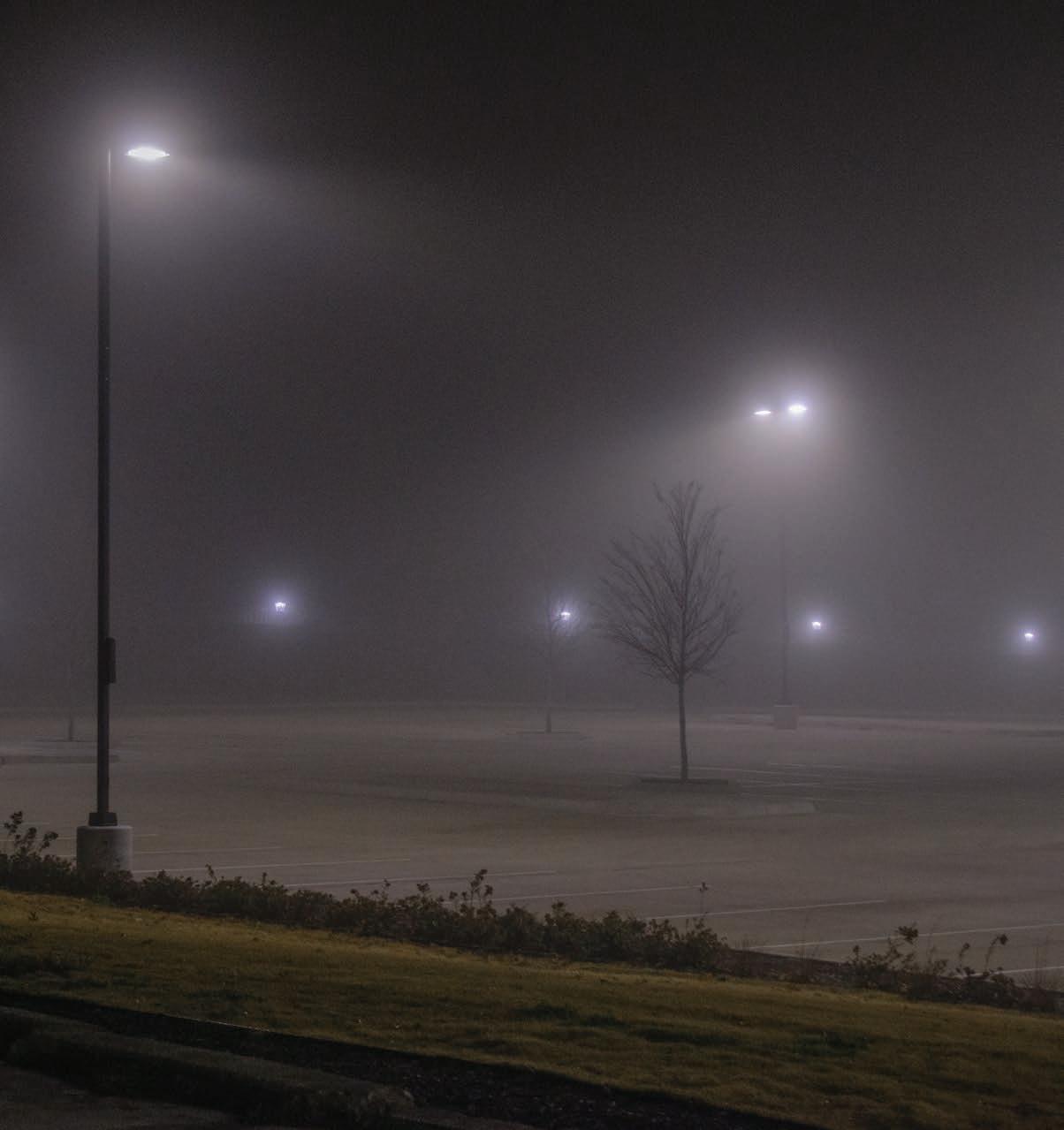
By Raja Mehendale ’24

What about my stupid little ower
Made a mom drive forty minutes down south?
Made a boy’s smile warm as a spring shower? Made the memories leave my sad mind drouth?
Hearts full, even with nothing yet begun, Joy not brought by the sweet drink from a ask, Hearts full before the task had yet been done, Joy not in the bounds of a wooden cask.
Winter weathered, it is hard as metal. Coming back many years later to see at stupid little bright yellow petal Curiously staring right back at me.
My stupid little pansy shows the love Of a mother’s arm draped, soft as a dove.

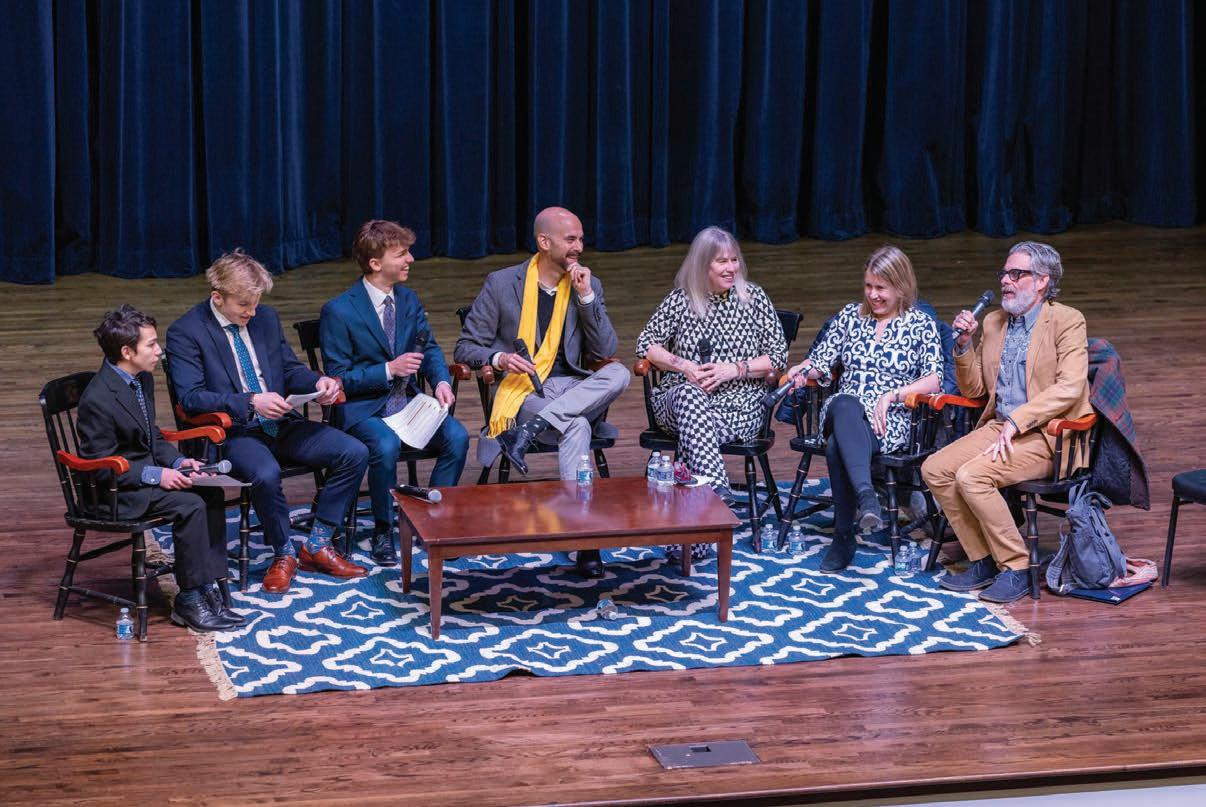
A week celebrating literature on campus included a writing competition open to juniors and seniors in three categories: poetry, non ction, and ction. ese are the three winners from across campus and their stories.
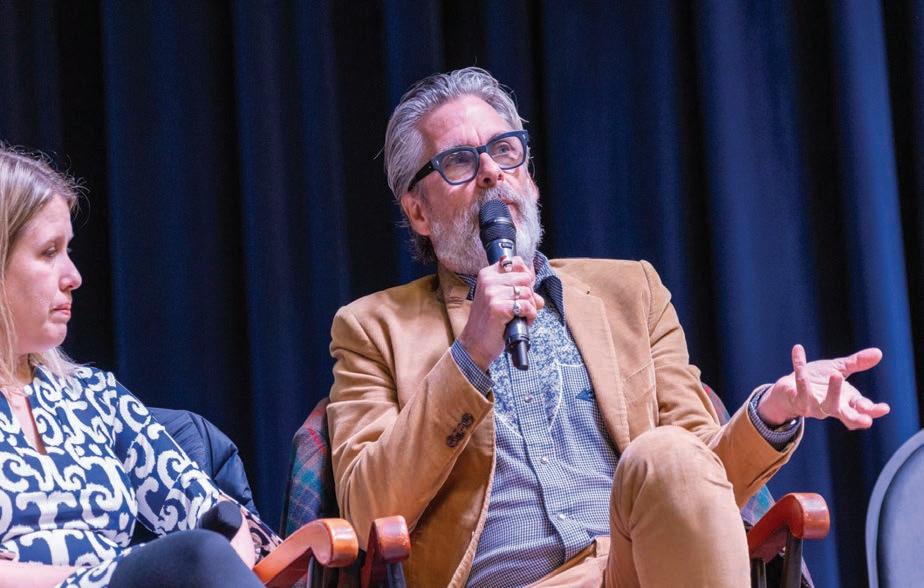
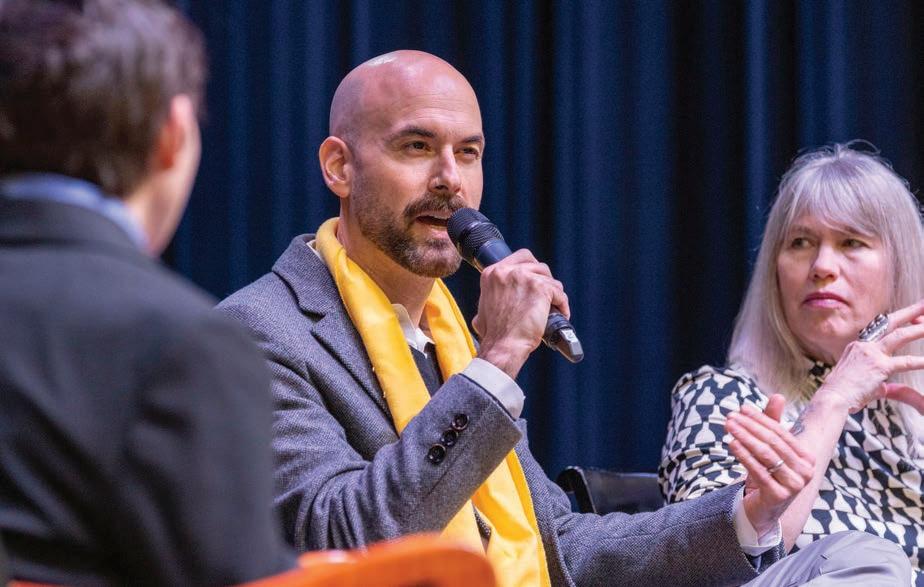
Story by Jaden Ouyang ’25
If you know Carson Bosita, you know he is an artist rst and foremost. at much should be obvious. After all, his passion for art is expressed through a wide range of mediums.
Writing poetry in particular comes naturally for Bosita. He’s already a nationally-ranked fencer. An accomplished painter. A stellar pianist and composer. According to him, the secret is nding your weaknesses and improving on them with consistent, dedicated hard work.
“Each of (my) activities (is) a pursuit to hone my own talent and create a style that is my own, so some skill sets apply to several of them,” Bosita said. Of course, this process has led to Bosita’s rapid rise as a creative writer. e greatest testament to his poetry, of course, would be his magnum opus: “ e Sea Beast.”
e idea for this poem came to Bosita as most ideas do: while browsing the internet at 10 PM on a weekend. Randomly, he stumbled across a satellite photo of Hurricane Florence, a majestic yet sinister representation of the sheer force a hurricane is capable of.
“It gave me a strange, emptying feeling,” Bosita said, “that despite how far we as humans have come, nature can still send continent-spanning killers…that even when disasters strike, people just grit their teeth and recover, no matter how hard or long the repair process is.”
is subject of the poem aligned perfectly with Bosita’s strengths. He loves writing poems about things like this, poems that tell a dark and dangerous story.
“I really like poems that present strange, dark, or even brutal circumstances in a tone that almost makes you believe that whatever craziness is happening is normal,” Bosita said.
e poem will be simple. Ten stanzas, no rhyme scheme or meter. And yet, each stanza will be packed full of formal features and hard-hitting imagery.
“I think my strongest area is my use of evocative words to assemble descriptions,” Bosita said.
In the poem, a hurricane is described as a gargantuan, spiraling sea monster, hell-bent on destroying life. It swallows everything indiscriminately in its path of destruction. Humans are small and insigni cant next to this hurricane, so Bosita compares them to microscopic organisms: viruses and bacteria.
“ e people are so small compared to it that they cannot even make out its form,” Bosita explained. “All they see is a roaring gray blanket seemingly alive with malice. e sea beast tries to annihilate the human specks it accidentally inhaled with ‘antibodies’ of rain that prevent them from escaping and waves of ‘white blood cells’ that try to tear down everything in their path.”
en, a shift in tone. Despite its best e orts, the beast cannot contain every city and every human. e beast’s strength dwindles and eventually dissipates. e people band together and begin repairs. After all, this poem’s main subject is not the hurricane itself. It is an ode to human resilience.
After many long days of writing, editing, and revising, Bosita’s two-week project was completed. And, though the work was grueling, Bosita made sure to enjoy it.
“I believe my greatest strength is my joy of creation,” Bosita said. “I have loved making things for as long as I can remember, and being able to continue doing this and even give people new perspectives and feelings just makes me want to create more.”
134 Bosita’s poem, The Sea Beast, is featured on page 101.
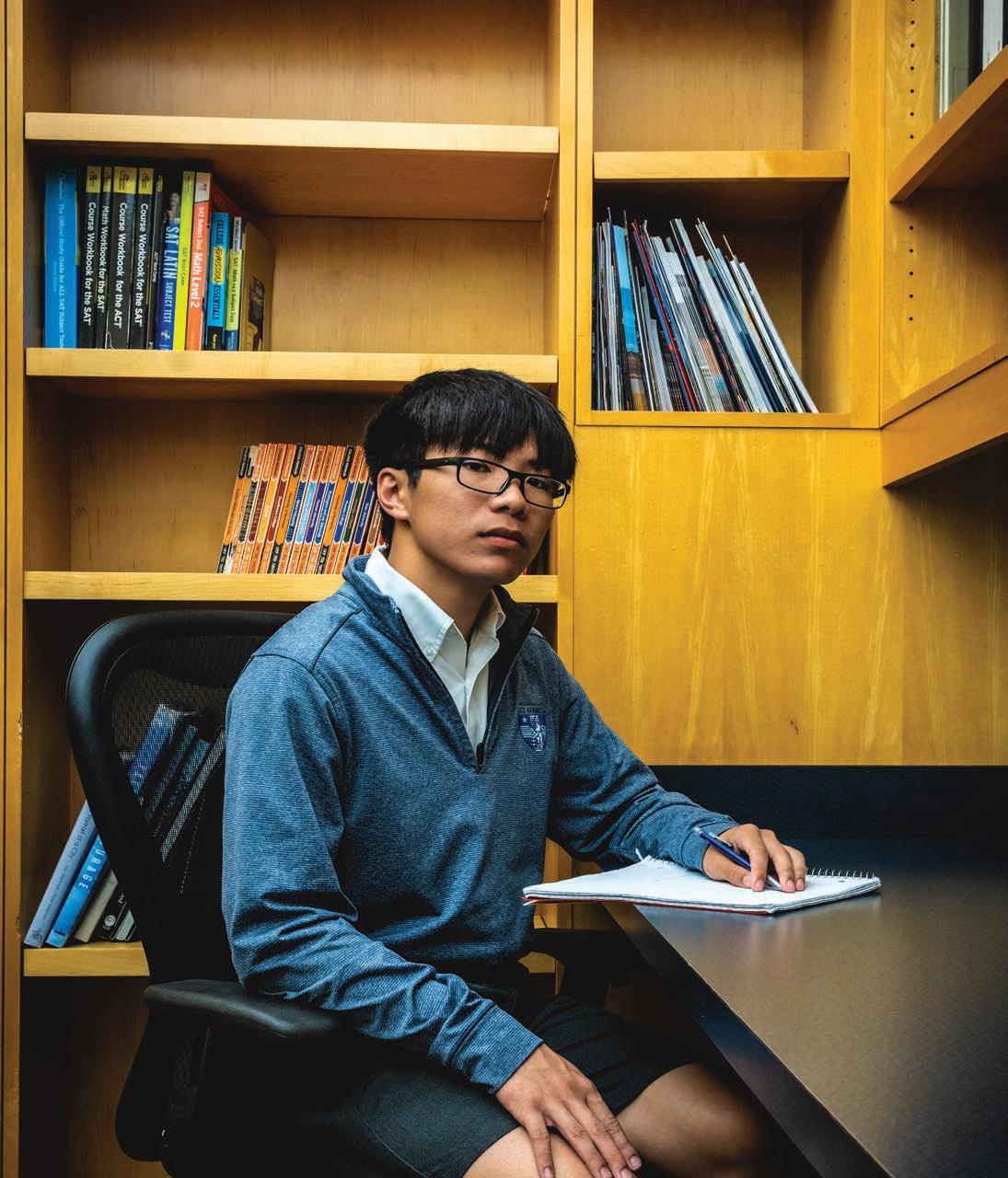
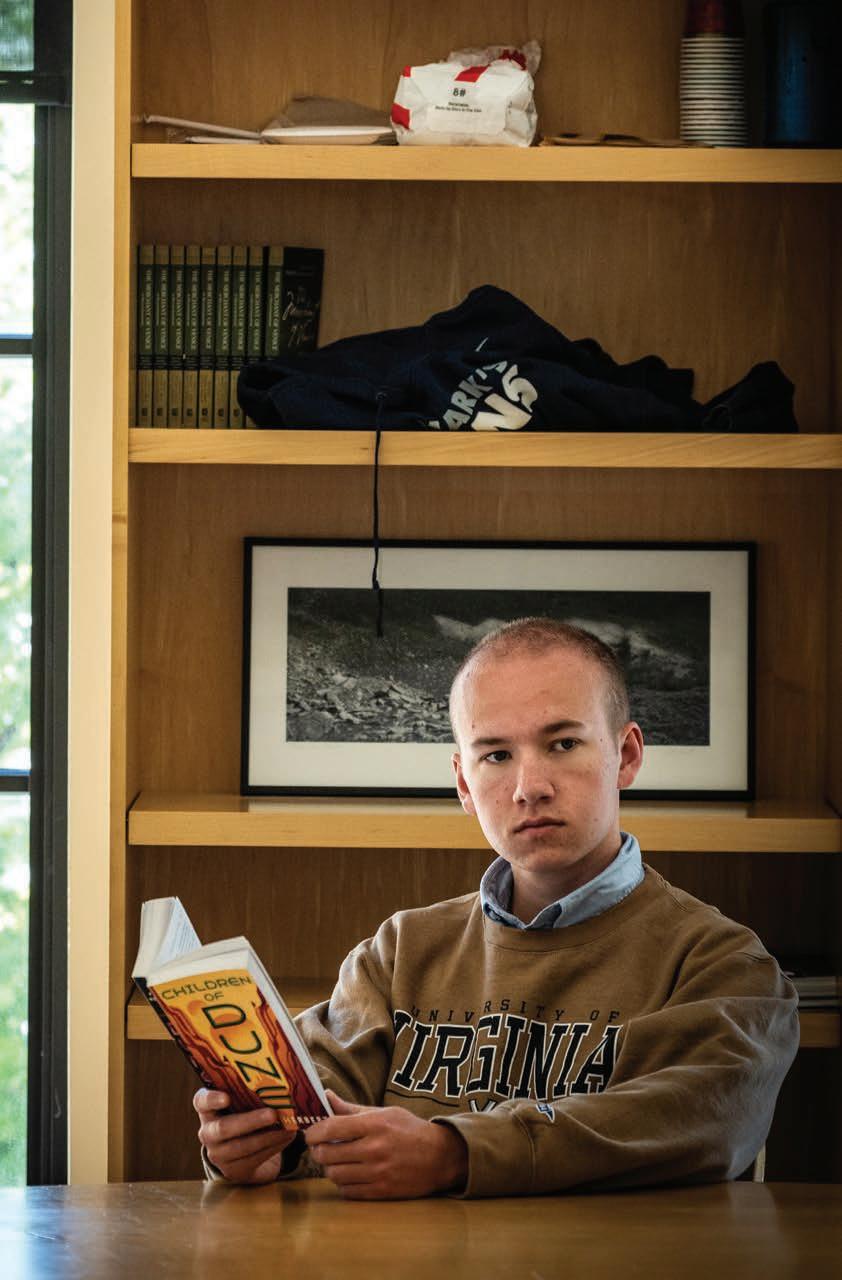
Story by Asher Babilla ’25
Senior Nate Wilson has a unique writing style. Most writers, and especially those of short stories, may go through dozens of di erent themes during the writing process.
However, Wilson instead opts for a more natural process where he allows the focus of his story to appear as he writes it.
“I don’t really try to write themes intentionally,” Wilson said. “I think if you have an idea and ask questions about ‘What if this or that happened’, then the themes kind of come out as you write it.”
When Wilson was writing his rst story for Victor M. White Teaching Chair in English David Brown’s Creative Writing class, he struggled to nd a subject.
“Mr. Brown said, ‘Don’t go into it knowing what you want to write. e story and its ending should surprise you as much as it surprises the readers when they read it’,”Wilson said. “So I went into it with an open mind.”
He came up with the concept behind “Spring Cleaning,” a story about a perfectionist father obsessed with the annual event – and his tragic descent into derangement.
“My dad isn’t a perfectionist,” Wilson said. “It was kind of blown up just for this story, but one time he was going through spring cleaning, which I don’t like. It was kind of funny and kind of awkward showing him the story because I was afraid he was going to think I wanted him to die or I hated him, even though I don’t.”
Although Wilson’s real father isn’t a neat freak like the man featured in the story, Wilson found the topic interesting, so he stuck with it and developed his story.
And, clearly, Wilson wasn’t the only one who found the premise interesting, as he won the ction award in the
Literary Festival’s writing competition.
Each year, students submit stories that they deem are worthy of recognition, and the stories are then judged by the Literary Festival’s special guests.
Wilson never intended to submit the story, but once he corrected it with Mr. Brown’s helpful feedback, he decided that it was worthy of submission.
And although he struggled with nding a topic initially, he created, found, and latched on to the idea of “Spring Cleaning.”
For Wilson, the writing process was easy once he got to work. e words just started owing, allowing Wilson both to meet his page count and to write a fantastic story.
“I just kind of sat down and wrote what I felt was good to write,” Wilson said. “I think that’s important, to not try to mimic anything or anybody when you’re writing something. I tried to put some internal dialogue, but I didn’t have much of that in mind going into it.”
As the story progresses, Wilson’s uncommon theme becomes one of loss, as the father in the story drives himself to the point of death trying to x a part of his ctional lawn. For Wilson, however, the weaving of these two themes made his writing process easy.
“I didn’t go into the story with an attitude of ‘perfectionism is bad’,” Wilson said. “I was kind of like ‘What if this guy had a really obsessive father and he ruined his lawn?’ It’s really nice to write like that because at the end of it, without even meaning to, you’ve stumbled upon a theme.”
Wilson’s short story, Spring Cleaning, is featured on page 102.
Story by William Kozoman ’26
DawsonYao knows a thing or two about writing.
He’s been a journalist for the last four years. He’s excelled in English classes. And earlier this year, he won the Non ction prize for the LitFest Writing Contest, representing his journey through writing and his growth as a person.
Yao’s story ended up being about his interview with athletic equipment manager Ron Turner Sr. about Steve “Hollywood” Walker, a cherished member of the St. Mark’s community who passed away last April. Yao did this coverage in the May 2023 edition of the ReMarker but didn’t expect to write about this interview again.
“It originally wasn’t going to be about Hollywood,” Yao said. “It was going to be about seeing people cry; I think that was my original angle for this story.”
But as he thought about his experiences in seeing such a raw emotion, he couldn’t shake the interview he had with Turner, who was very close to Hollywood. e experience left an indelible and immediate impact on him, even though it happened just last May.
“At the start, I was very nervous; I had never talked to this guy,” Yao said. “But as soon as I asked the rst question, it was like the oodgates started opening. Obviously, he didn’t start crying immediately, but he just got really, really, really quiet. He started talking really thoughtfully. I think the interview lasted for like ninety minutes or something, and in the middle, he just started breaking down. at experience transformed my point of view as a journalist and as a person.”
Along with serving as the source of this experience, Yao’s history in journalism has had an important impact on his writing style, ultimately helping to shape how he wrote the story that he ended up submitting for the
“In journalism, the writing style is very di erent,” Yao said. “I’ve grown with it, and it’s that style, where you’re using a lot of powerful moments and powerful quotes to help guide your story. And I think that’s something I really did try to implement. It’s that kind of style of writing that I imposed onto the story.”
Yao originally created the work in his creative writing class. English teacher David Brown, who both teaches the class and sponsors the LitFest, encouraged his students to submit their work to the writing competition as a chance to gain recognition and a prize for themselves. Yao quickly took him up on this o er. As the deadline for the competition approached, Yao turned in his story and began waiting patiently for the winners to be announced. en, in the December copy of the ReMarker - the same publication that had so a ected his writing - he was announced as a winner of the competition. Re ecting on his piece, Yao thought about what made the story so unique to him.
“It’s just the rst thing I wanted to write about. It was like the rst was the freshest thing on my mind,” Yao said. “At the start of the year, I talked a good amount about Hollywood, and about that experience, how that changed me. at’s why I chose to write about it. To see that rst person cry in front of you, it’s just a totally di erent experience. You’re not just getting a fact or like a random quote from some random source. You’re actually interacting. Once you’ve had that really emotional conversation, then the story just writes itself. But yeah, that’s how my point of view changed, just seeing and realizing the e ect of what I was doing and how I could improve my story.”
138 Yao’s short story, When the Best Response is Silence, is featured on page 12.
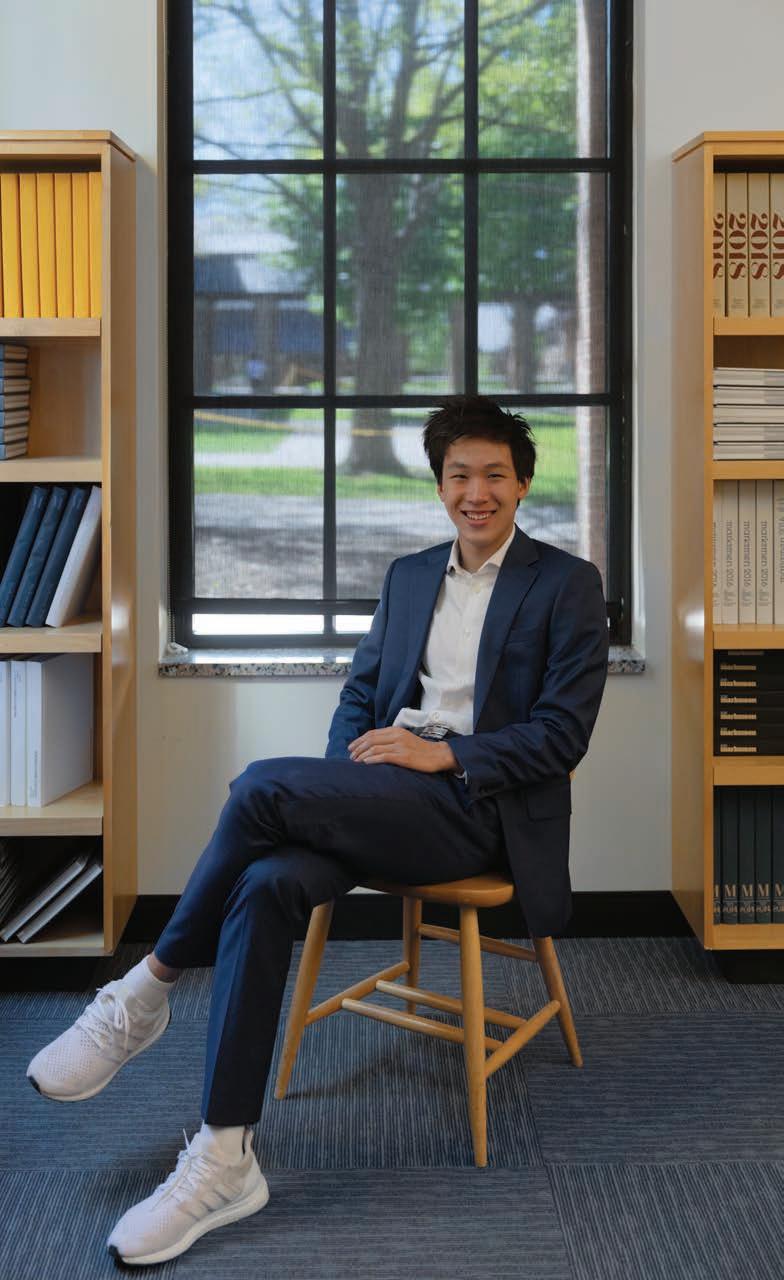
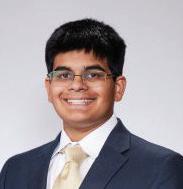
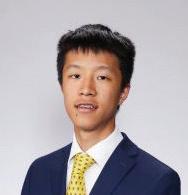


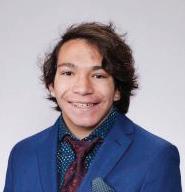
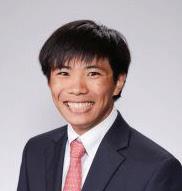
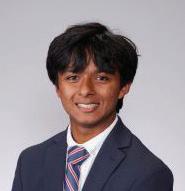
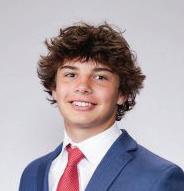
Special anks to: David Brown, Rachel Muldez, Kate Wood, Jenny Dial Creech, James Barragan, St. Mark’s Security and Sta , and David Dini

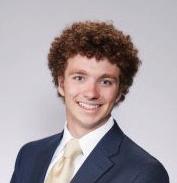


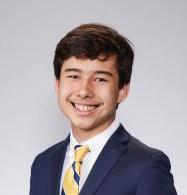
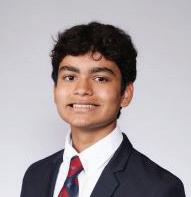
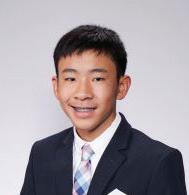
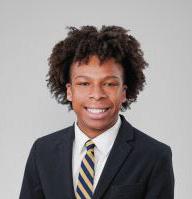
If anything, this year’s magazine is a chimera. Its allimportant soul–the concept–was shaped by Neil and Aidan. Its body–the individual spreads, containing the creations of our student community, were the work of individual designers. And its many faces–they’re given by Aidan’s cover, Carson’s section dividers, and Akul’s photos.
To the limping beast that was the magazine, aid was rendered by Noah and Mrs. Creech (despite not formally being part of the club). en, Neil and I wrapped it all up in some nal bandages, trying to correct the inconsistencies inherent in this mythical enigma. roughout this process, Mrs. Schwartz and Dr. Brozovich have supported us, guarding us against critical errors and settling prolonged debates. I’m very lucky to have them.
I’m also very grateful for my parents, who faced all the frustrations of people who raise kids–they su ered patiently and nobly. e last two years have been especially tough on them.
For all these people, I’m grateful.
Last but not least… I want to thank YOU, the reader, for stopping by. I hope that the imperfect body of this magazine conveys to you an immortal soul, one arising from a love for what’s beautiful and true. Without you, all of our e orts would be in vain. ank you for appreciating (and submitting!) these works which re ect on the entire St. Mark’s community–students (past & present), teachers, administrators, and parents. If nothing else, I hope this magazine delights you.
I’mnot sure where I’d be in right now without e Marque. is publication has been a common, steady presence in my life for three whole years.
And, although I worked on and helped edit the MiniMarque (the Middle School counterpart of this magazine) for two years, I couldn’t have ever predicted the e ects this publication would have on me.
Everything I’ve learned in design, publications, literature, and photography all commence in this moment. It truly was a fantastic journey.
But, this message - and this magazine - are not all about me. I couldn’t have done it without the help of those around me.
My sta , especially Tiger, Akul, and Aidan. Your respective contributions in the editing, photographic, and visual art portions of the magazine are essential.
Our advisors, Mrs. Schwartz and Dr. Brozovich. rough every pizza order or piece of advice, you both kept us on track and focused on the nal goal. Also, the design experience of Mrs. Jenny Creech was essential in re ning our magazine.
ose who came before me - Ekansh Tambe, who helped begin my Marque journey. Morgan Chow, the steady voice of a design master. Noah Cathey, an expert in his own right and a publications a cionado. Your steady guidance has been a blessing for which I’m truly grateful.
My parents and brother, for accomodating the especially di cult schedule that the Marque demands. I love you guys, and the sacri ces you’ve made to accomodate my needs throughout this vaunted junior year and the creation of this magazine have been so, so helpful.
Over the course of this year, this publication went on a massive journey. We changed layouts, fonts, font sizes, and so much more. Our rst spread and its nal iteration are almost unrecognizably di erent from one another.
And, although it was a lot of work, I wouldn’t have had it any other way. Regardless of what my future with e Marque looks like, I’m forever grateful.
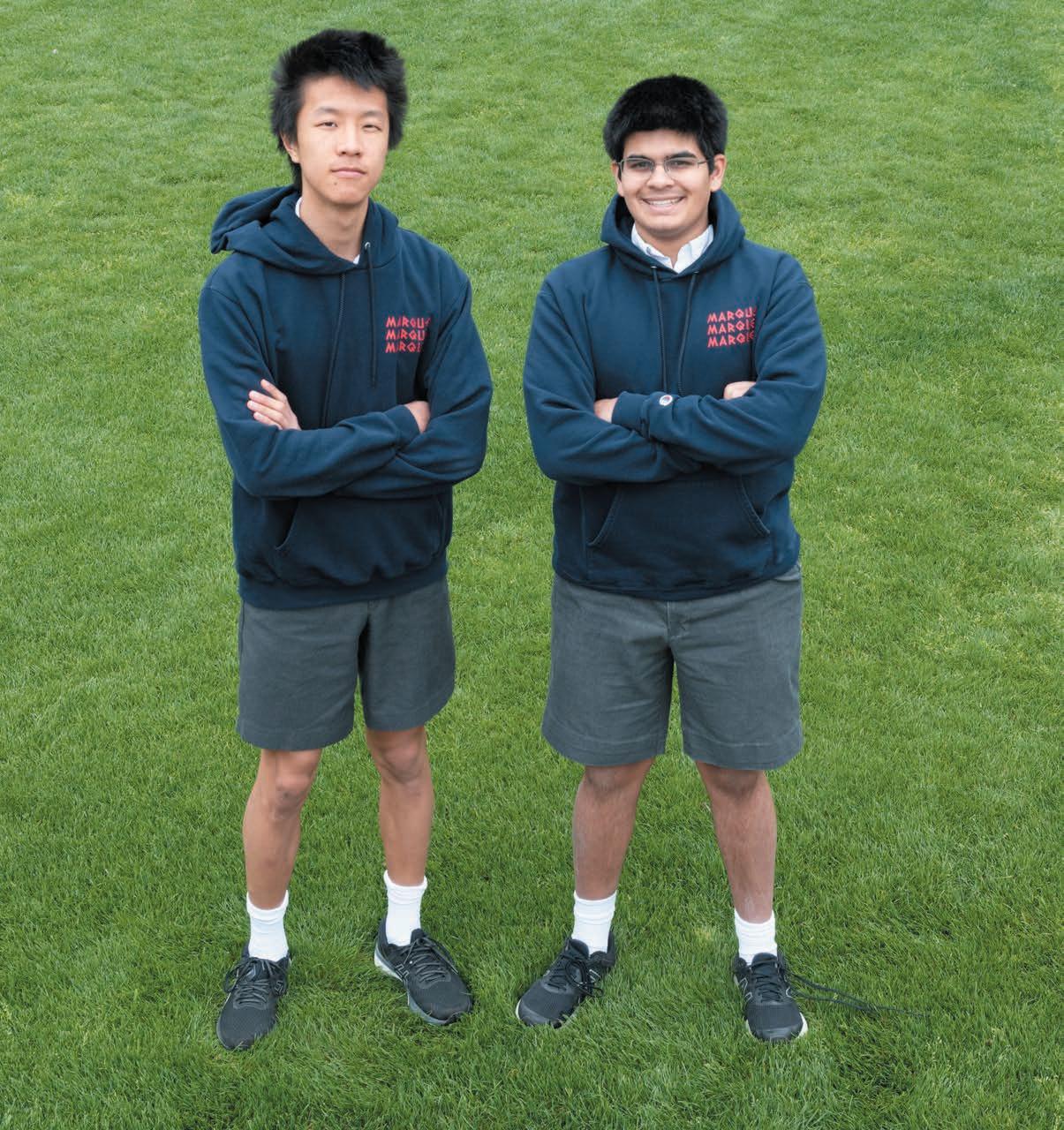






e 62nd version of the Marque was published on May 6, 2024. Issue _____ of 500
Established in 1962, e Marque serves as the collection of the literary and artistic pieces created by Upper School students to summarize the academic year’s artistic expression.
e Marque is an after-school extracurricular activity that works independently from the St. Mark’s journalism program. All written and visual content is welcomed and considered for publication. roughout the year, literary works and artistic pieces are submitted by our 419-person Upper School student body and selected for publication by our sta members. 450 copies are produced and distributed to Upper School students and faculty. is publication is submitted annually for evaluation to the Columbia Scholastic Press Association (CSPA) and the National Scholastic Press Association (NSPA).
e Marque is printed by J. Culley Imaging. e cover is 130# Polar Bear White Velvet Cover, printed 4/4. Text is 80# Mohawk Options Text PC 100. Binding is PUR glue perfect binding. e sta used Adobe Indesign, Photoshop, and Illustrator CC 2024. Typefaces include: Peskia Variable for titles; Altivo for bylines, credits, folios, and pull quotes; Warnock for body text. e theme was selected by the Editors-In-Chief and the Creative Director.
St. Mark’s School of Texas 10600 Preston Road Dallas, TX 75230
Care of Lynne Schwartz
Phone: 214-346-8126
Fax: 214-346-8002
SchwartzL@smtexas.org


